Tom's Hardware Verdict
The Toughpower PF1 750W achieves a high overall performance score and it is highly efficient, while its average noise output is low at 27 dBA.
Pros
- +
Full power at 47 degrees Celsius
- +
High overall performance
- +
Efficient
- +
Higher than 70% efficiency with 2% load
- +
Quiet operation
- +
Long enough hold-up time
- +
Low inrush current
- +
Sufficient number of connectors
- +
Fully modular
Cons
- -
Power Factor readings are not so high
- -
Transient response at +12V could be better
- -
No MOV in the transient filter
Why you can trust Tom's Hardware
The Thermaltake Toughpower PF1 750 power supply achieves high performance in almost all areas, and on top of that, it is highly efficient. Its overall performance score is high, but it cannot threaten units like the Corsair HX750 and the popular Seasonic Focus Plus Platinum with similar capacity. Nonetheless, when it comes to efficiency, the Thermaltake offering loses only to the more expensive Seasonic Prime Platinum, having a notable difference from the Focus Plus Platinum 750 and an even larger from the Corsair HX750. With a longer hold-up time and even lower ripple on the minor rails, the PF1 750 could earn a place in our best PSU picks.
The Thermaltake Toughpower PF1 line consists of three units with capacities ranging from 650W to 850W. All are 80 PLUS Platinum certified. Cybenetics has also certified them as ETA-A (efficiency), LAMBDA-A, and LAMBDA-A- (noise output). In this review, we will take a look at the middle member of the family, the PF1 with 750W max power. Like all other PF1 models, it is fully modular and has super-compact dimensions, thanks to the 140mm depth. Lastly, it uses a hydraulic bearing fan, which can offer high airflow if required.
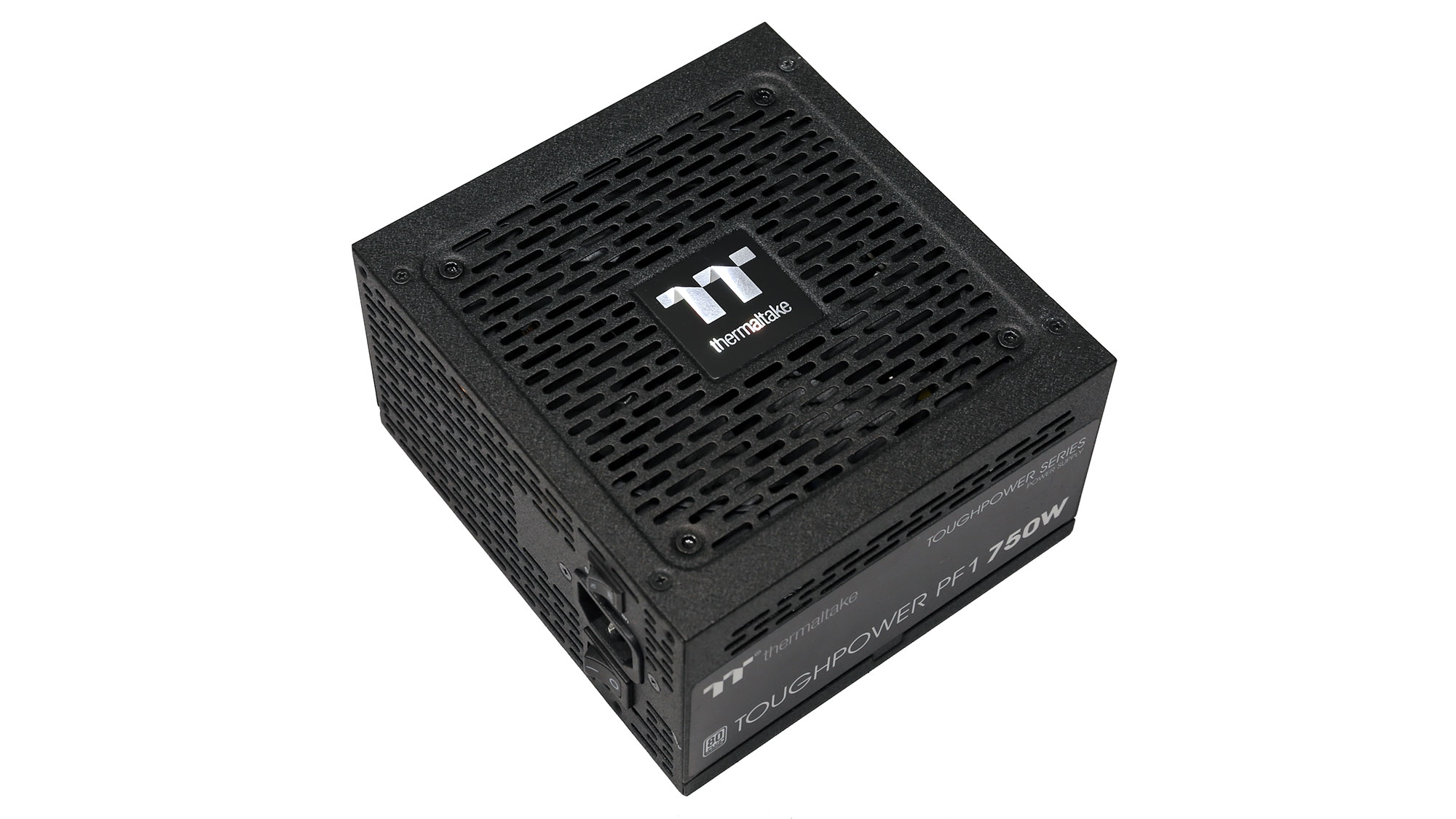
Product Photos
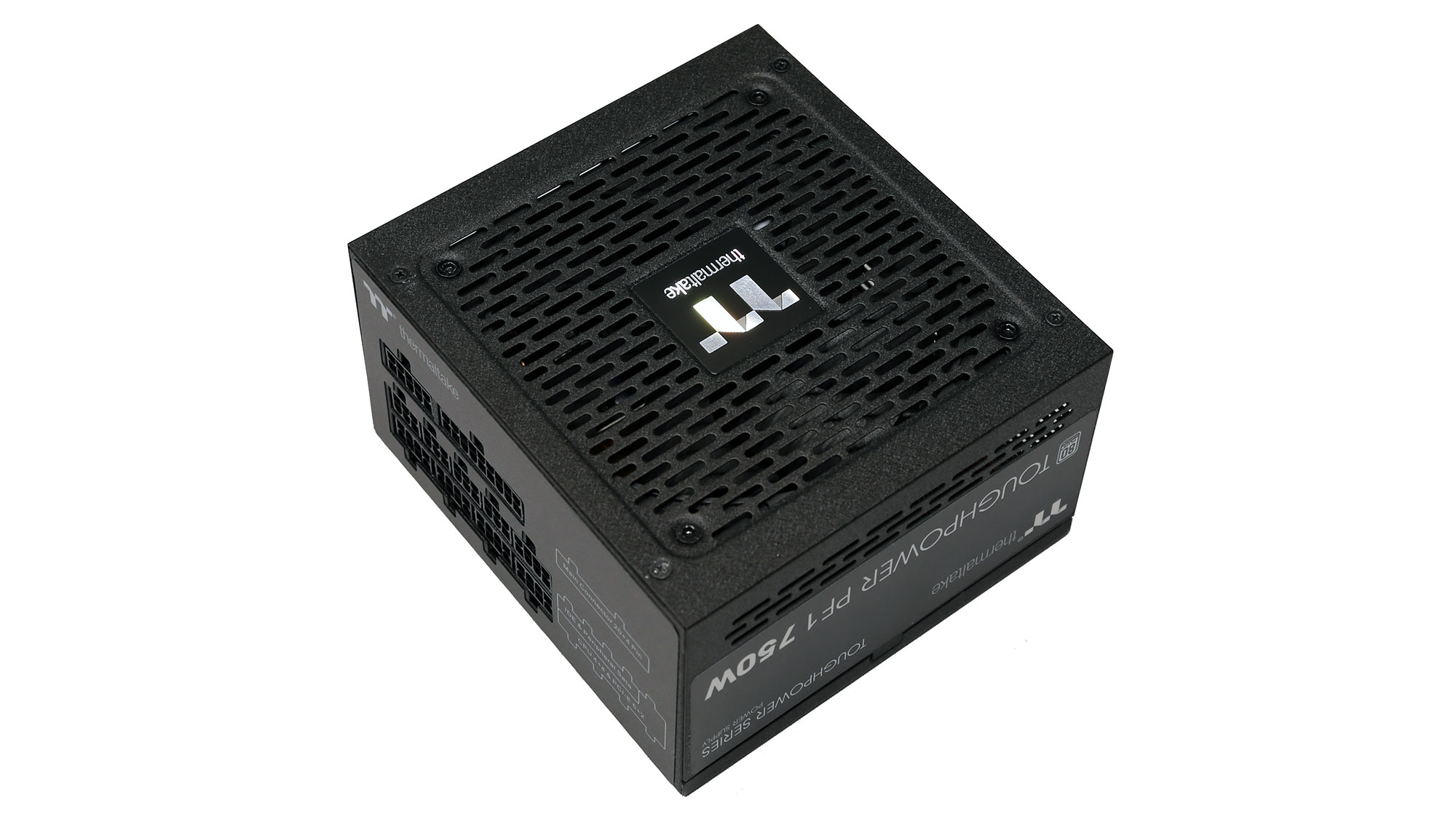
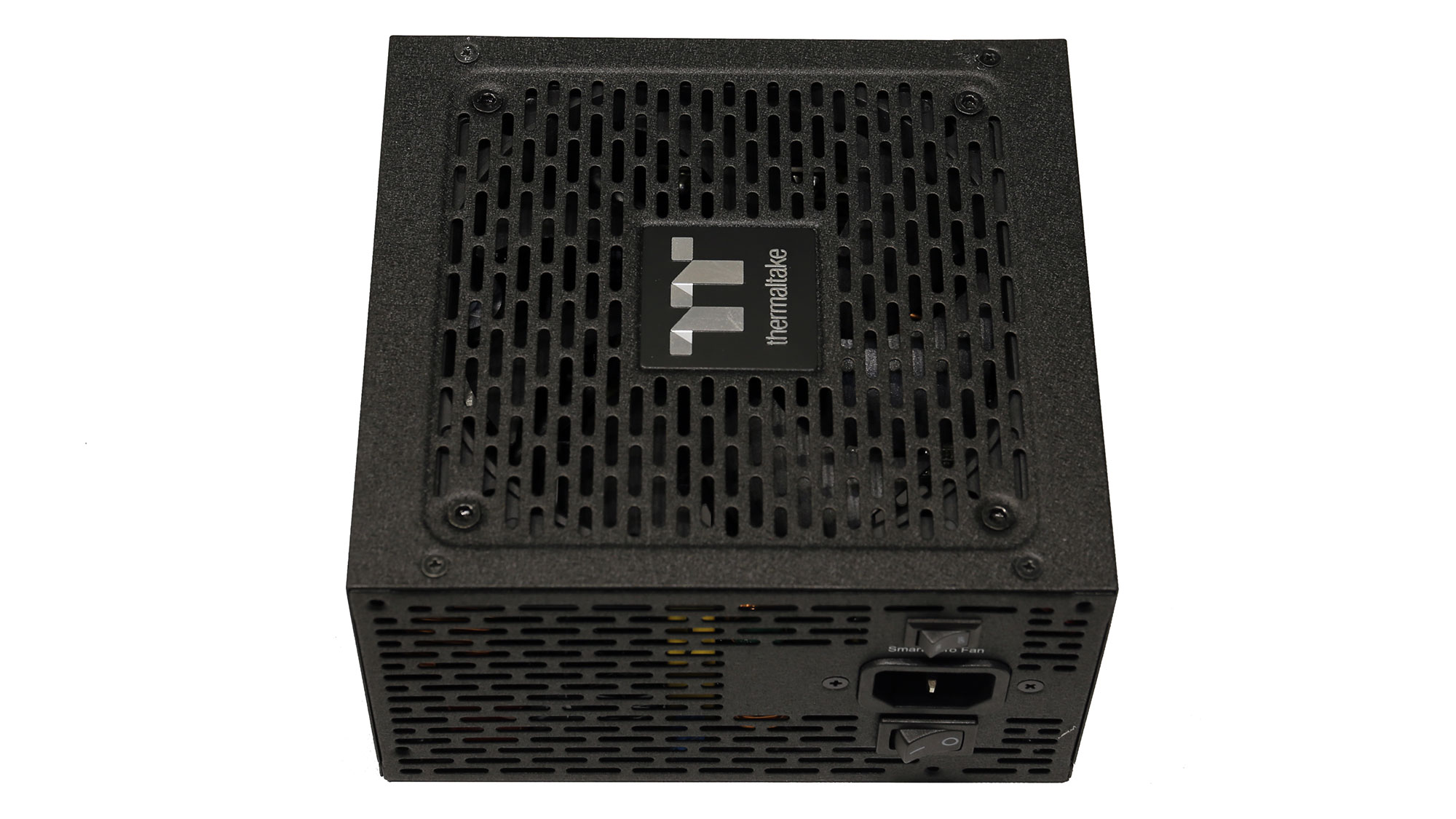
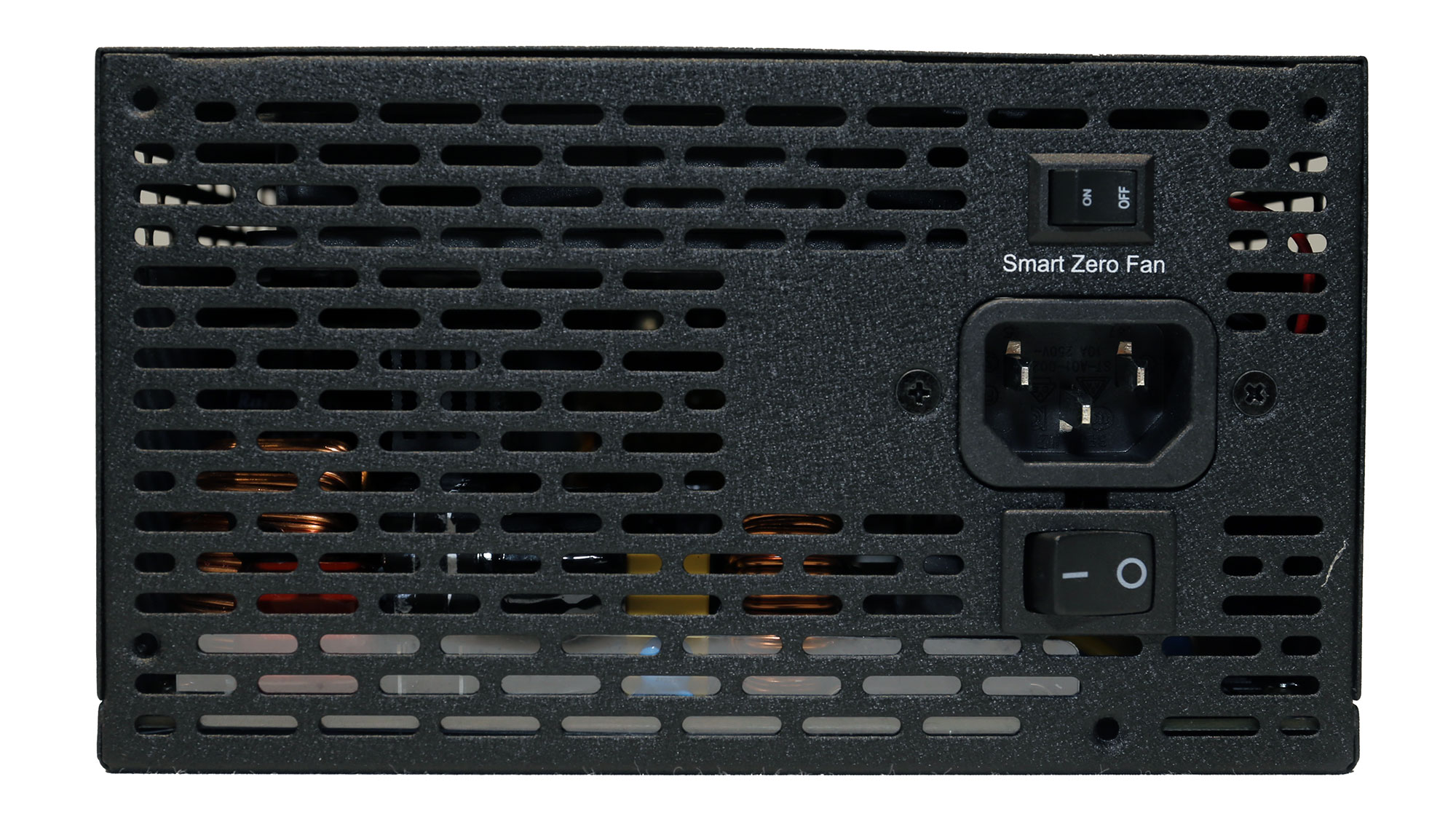
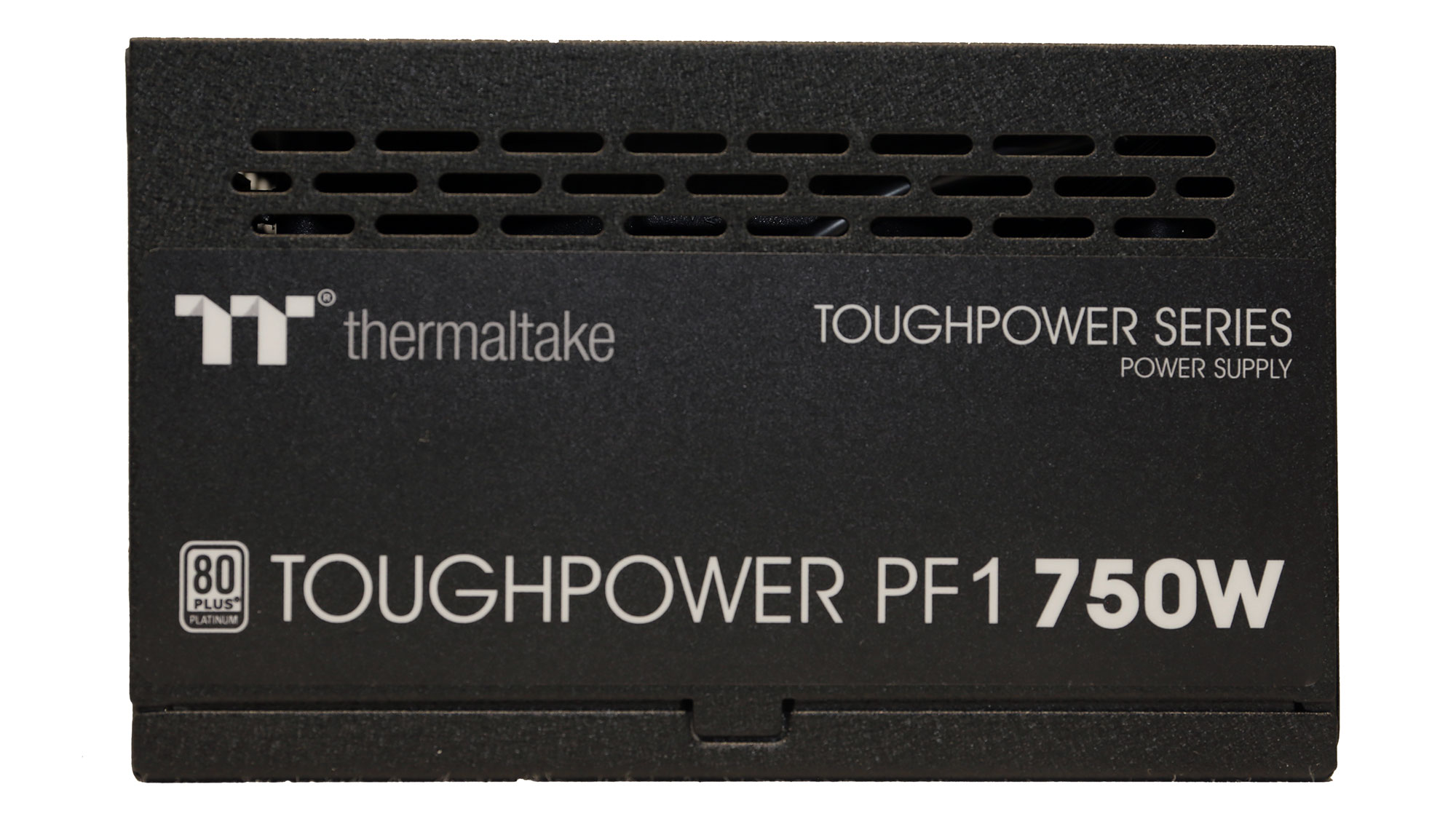
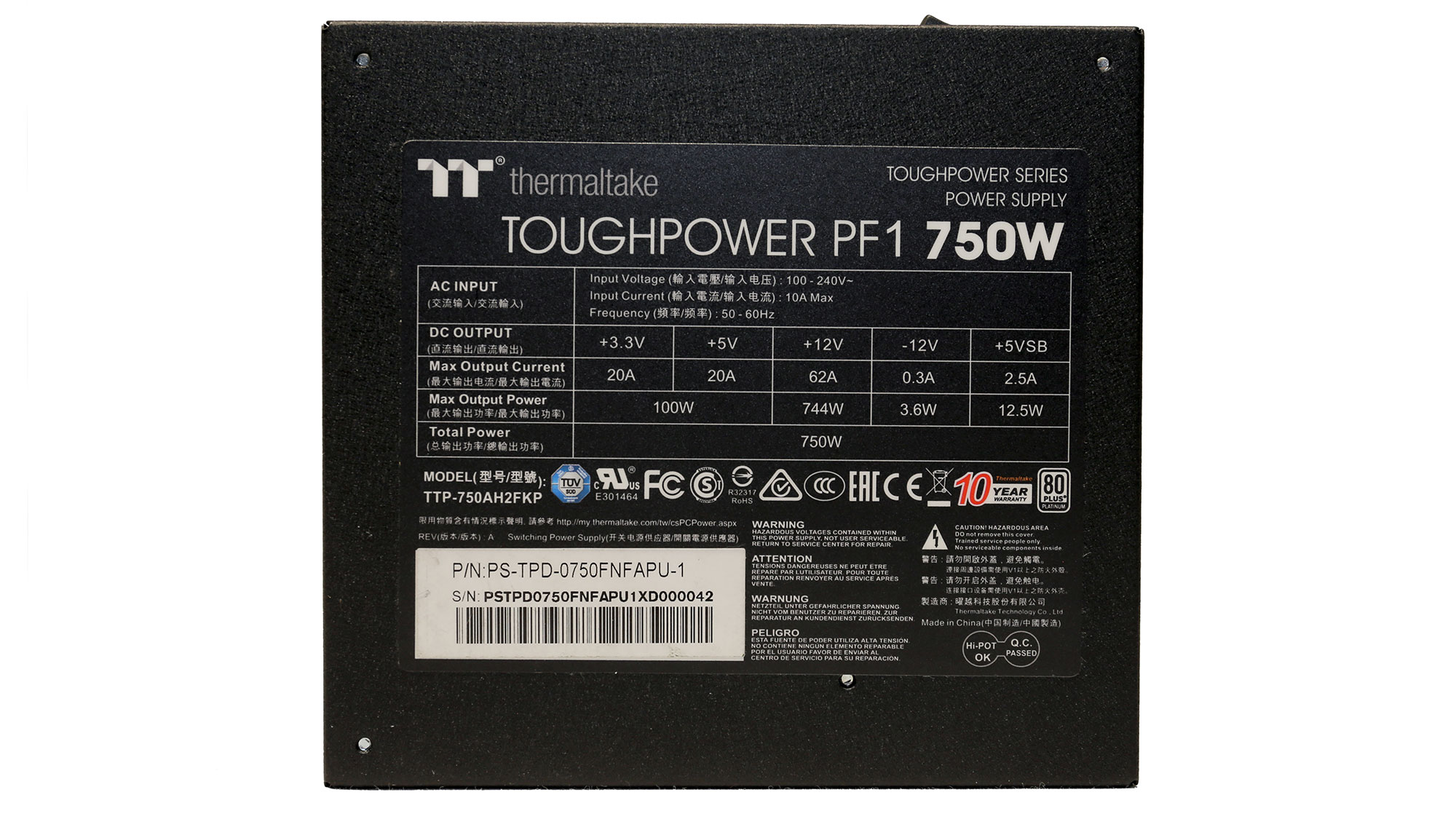
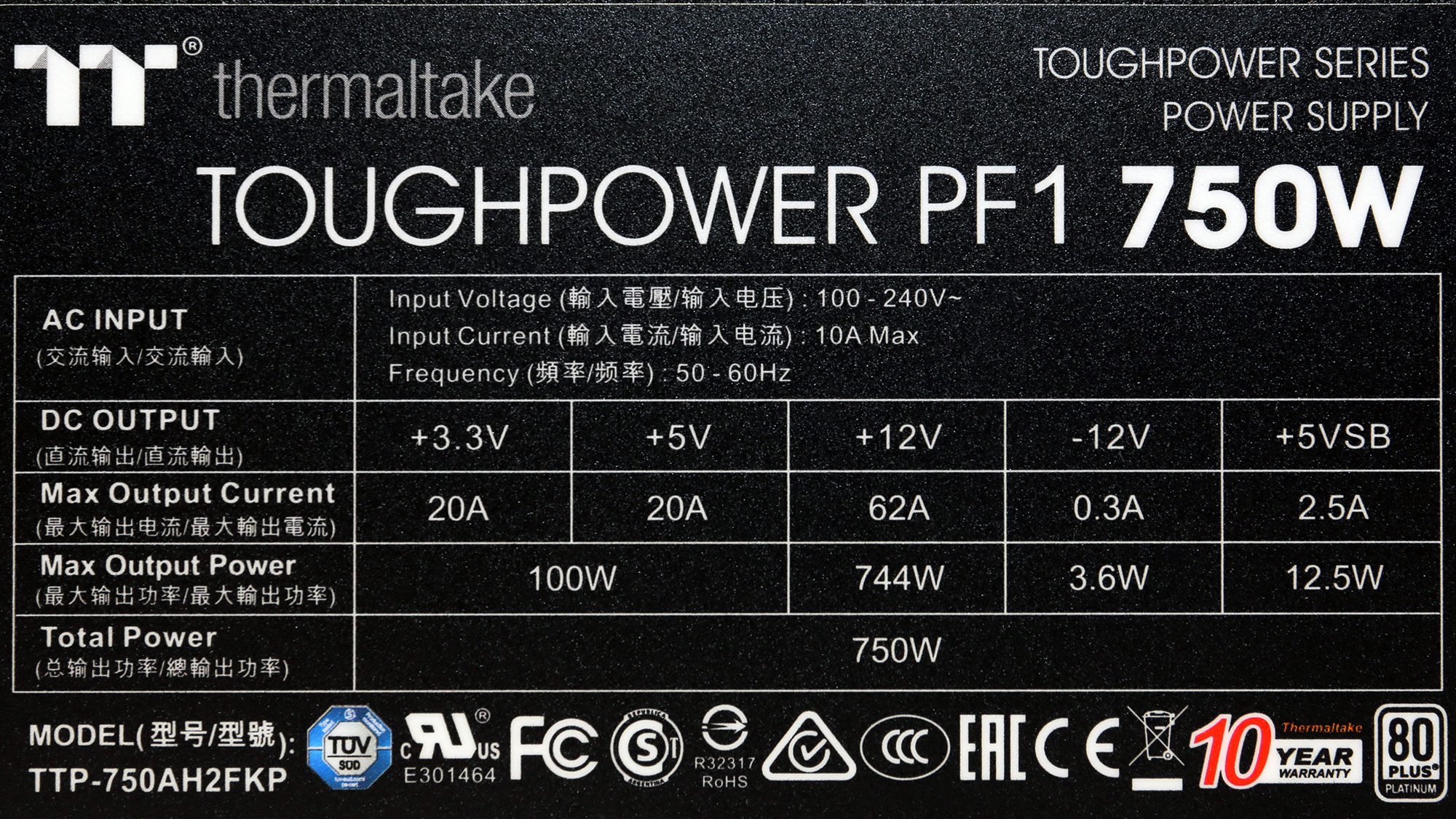
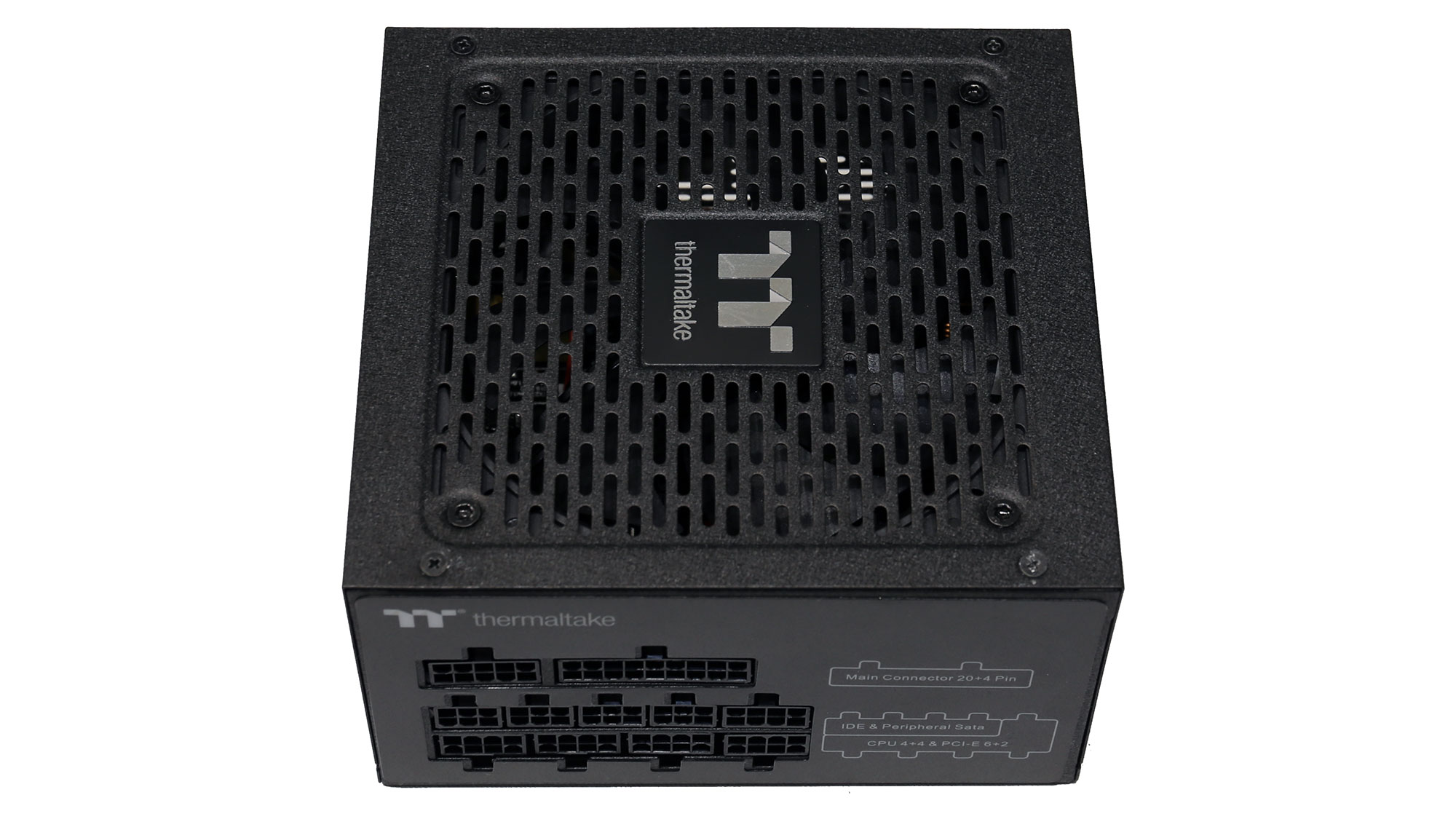
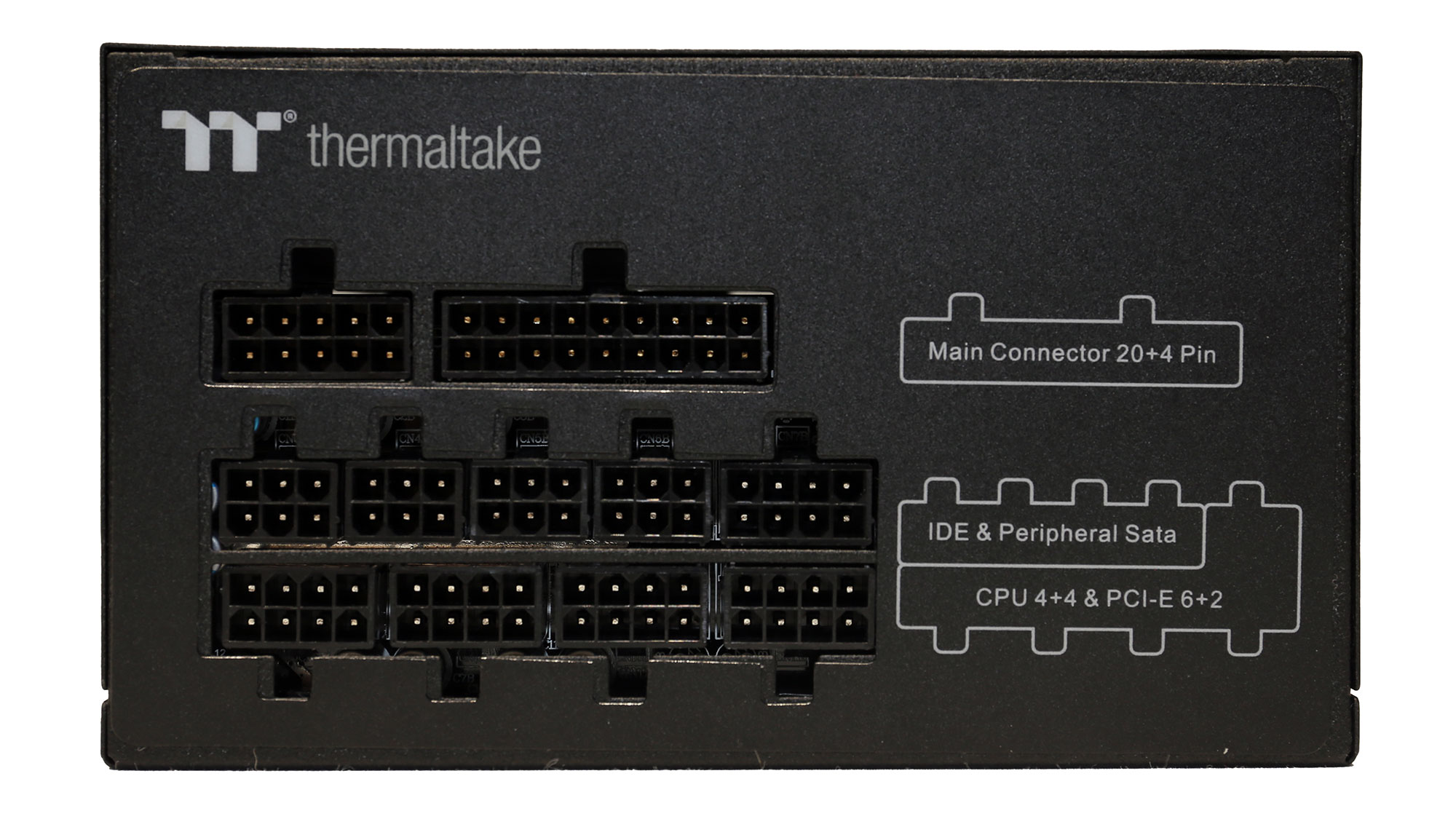
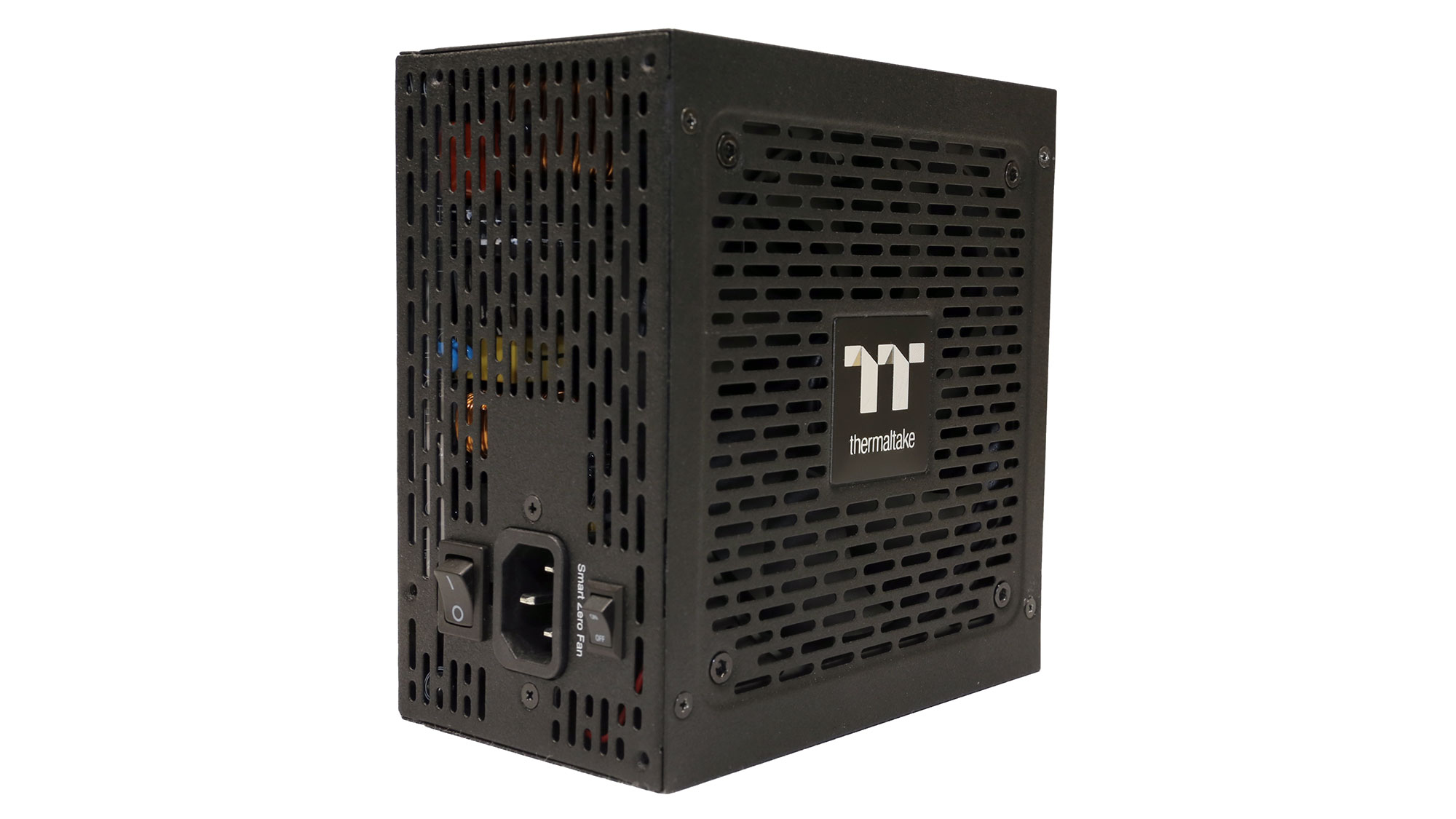
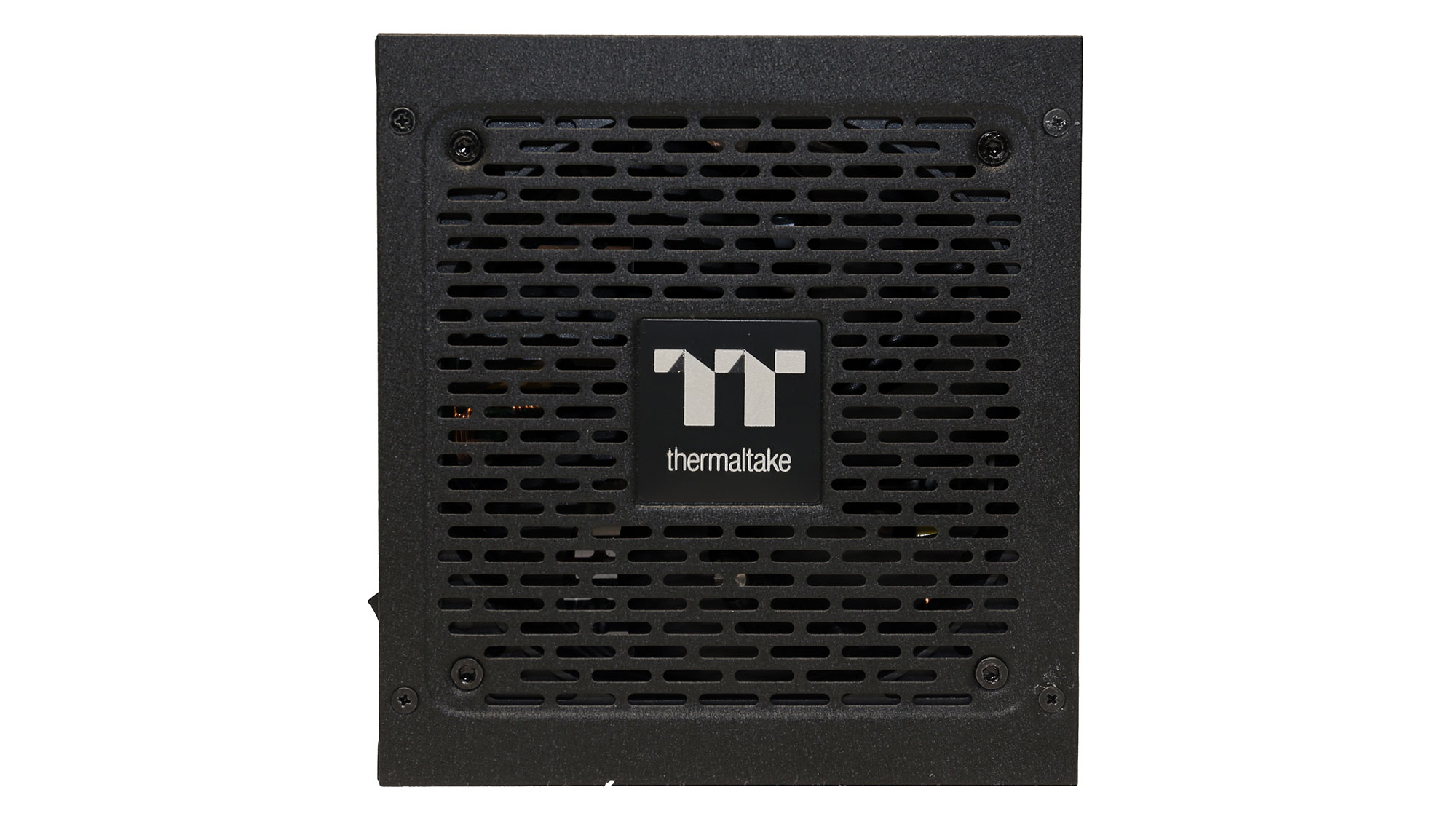
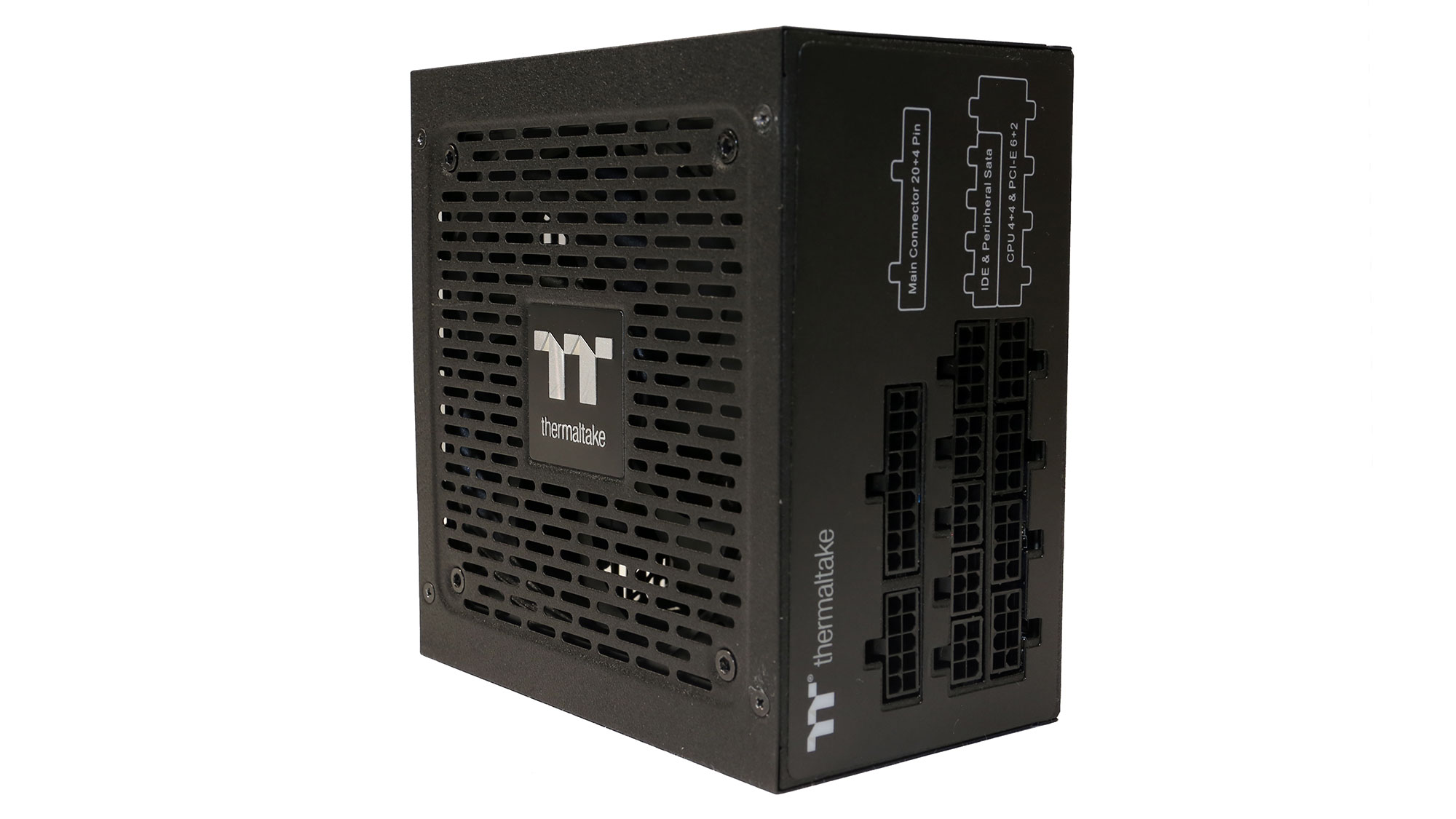
The OEM behind Thermaltake's PF1 models is HKC, which is mostly known for its affordable products. During our test sessions, we will determine whether HKC can meet the performance levels of the competition in this high-end category. It won't be easy since it has to face strong competition, including the Seasonic Focus Plus Platinum, Corsair HX750, FSP HPT750M Hydro, and other products. Nonetheless, it is always nice to see new products, and new manufacturers, in this category at least, enter the game.
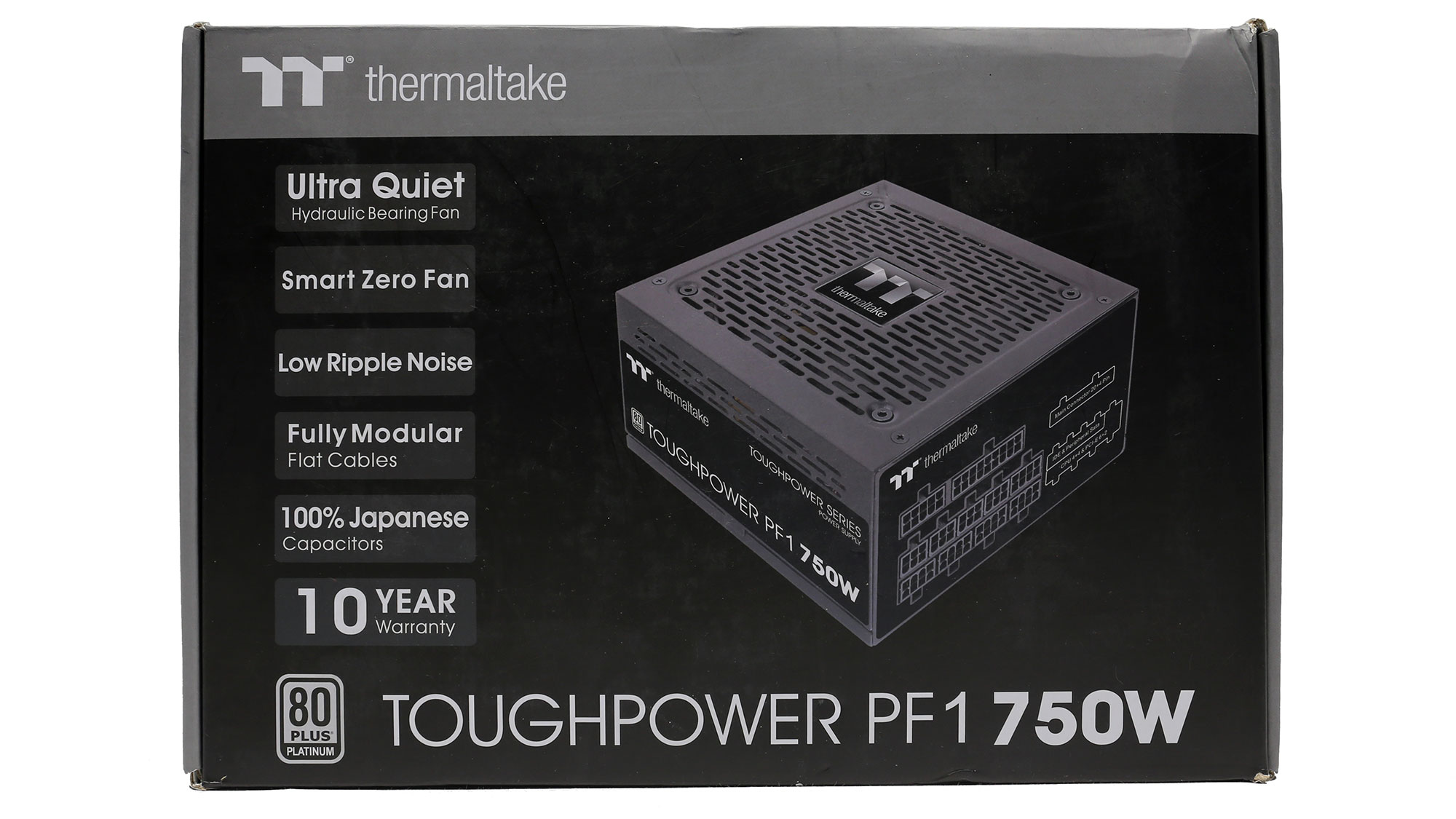
Product Photos
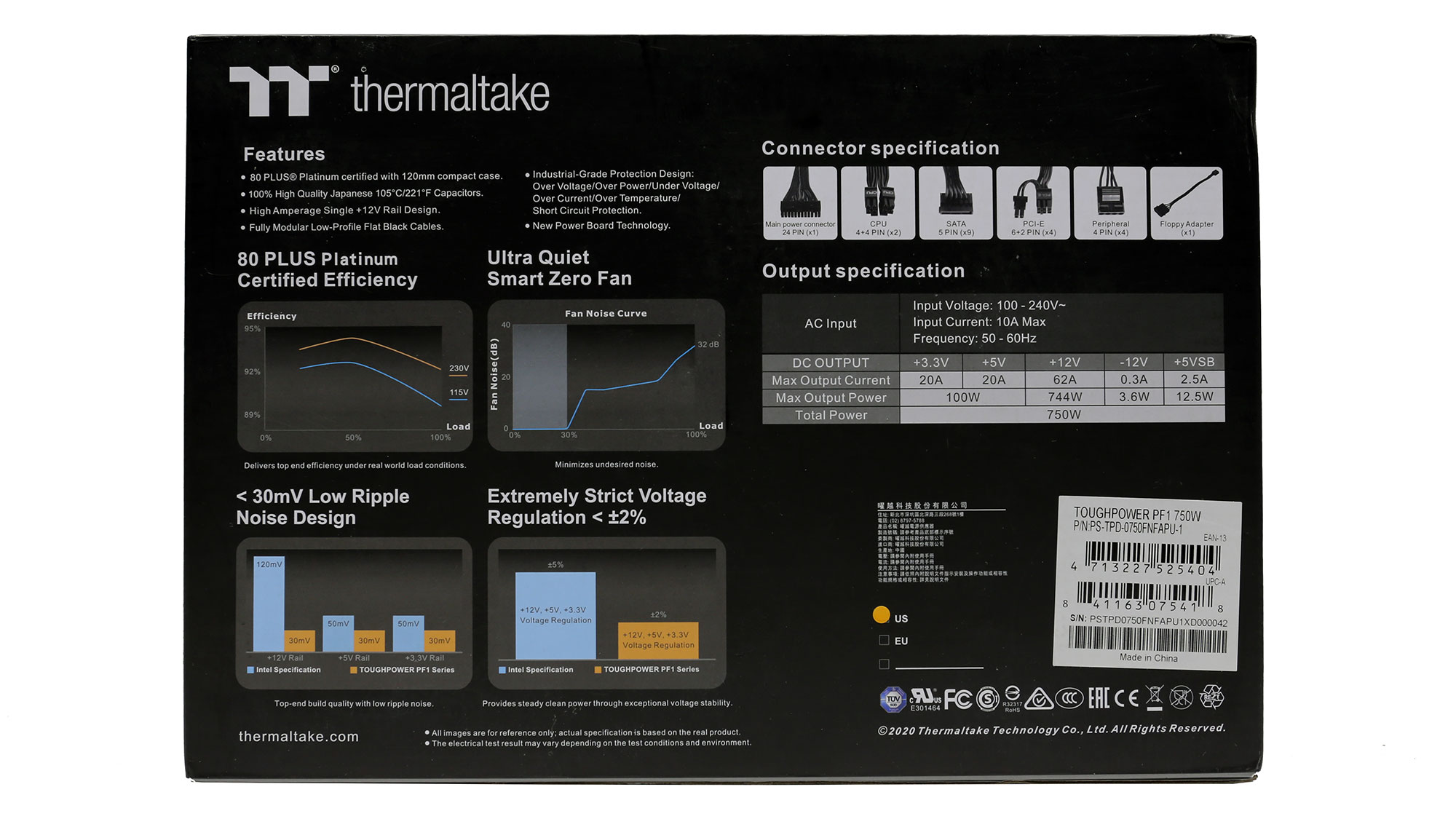
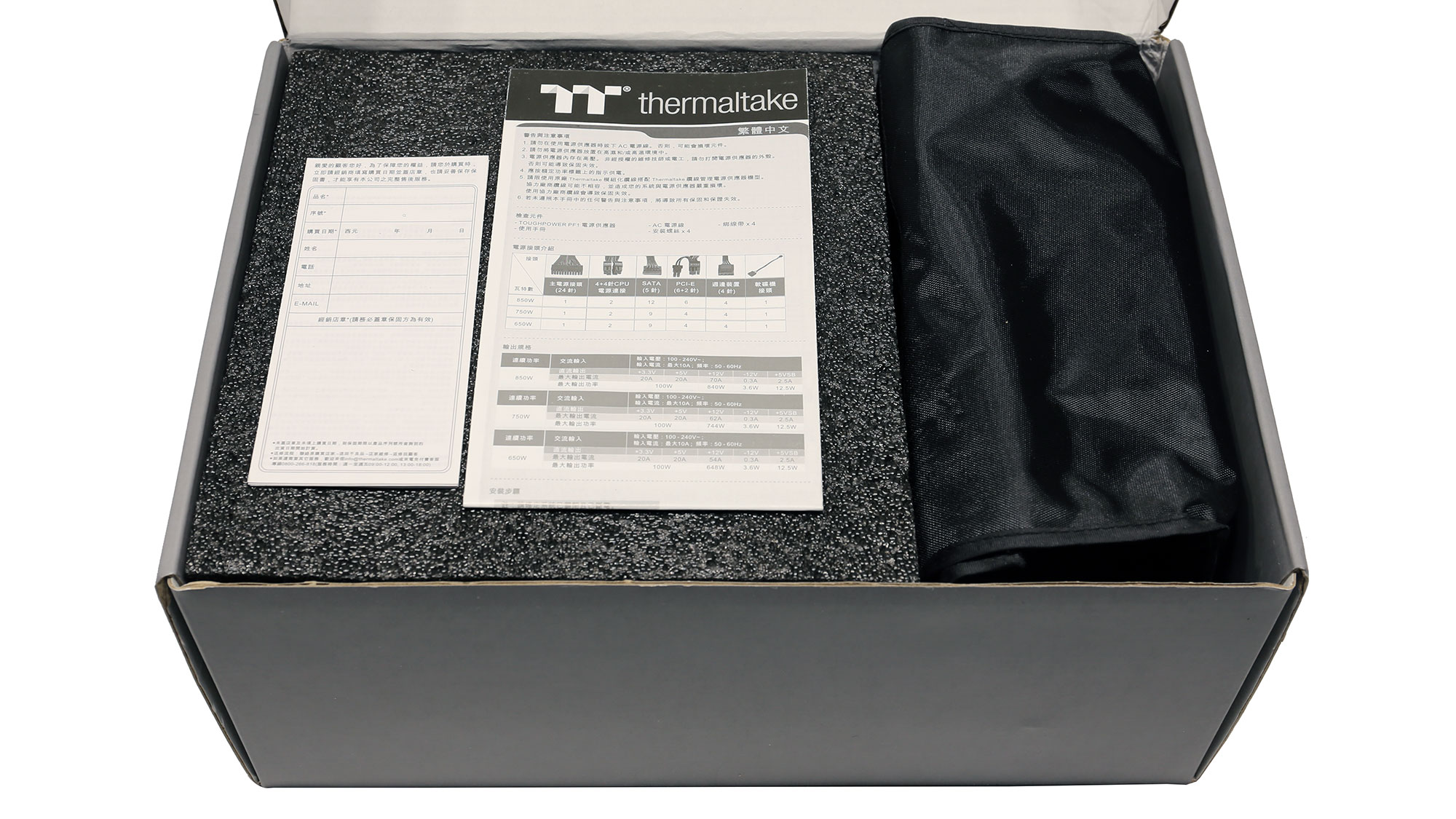
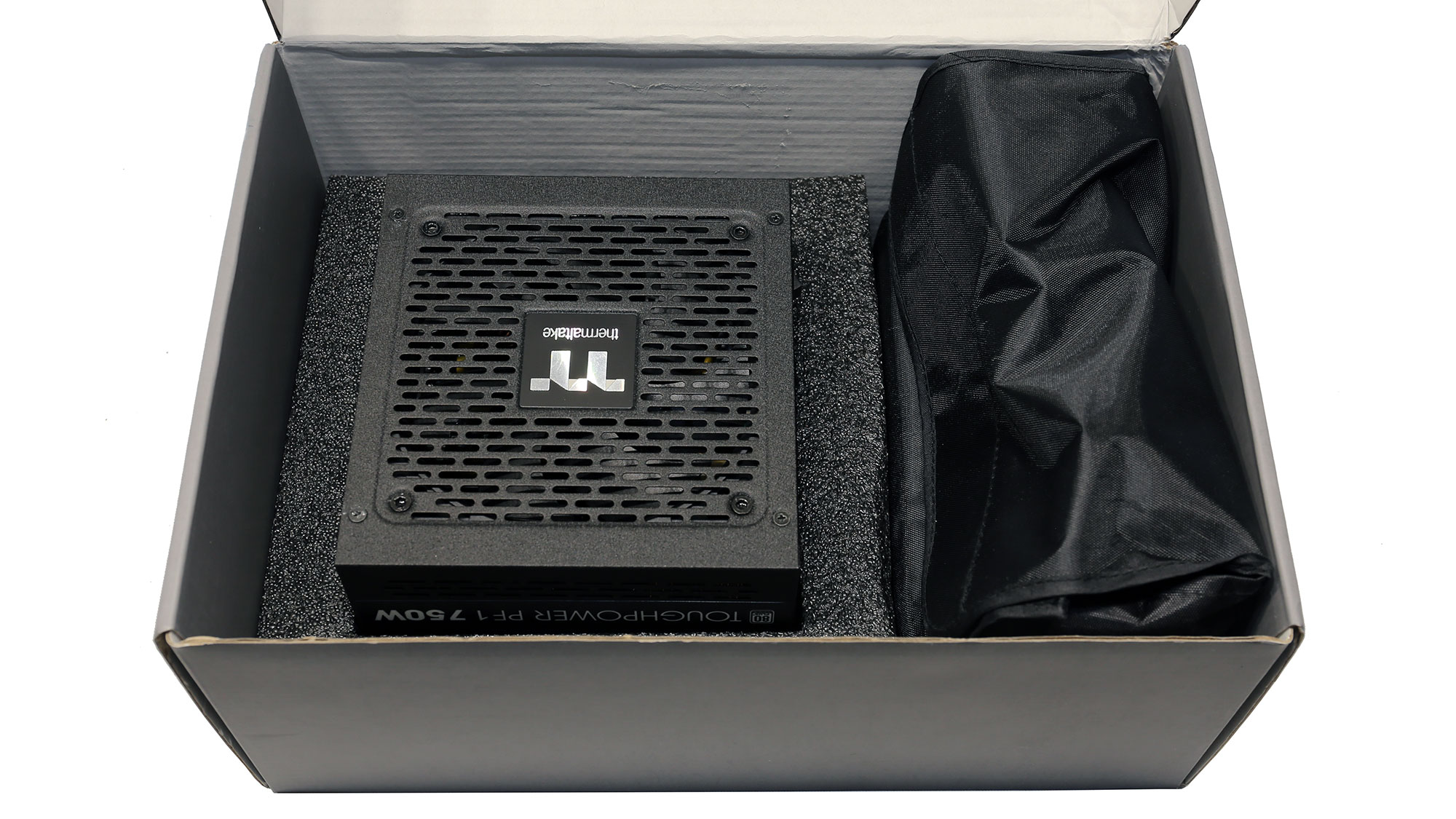
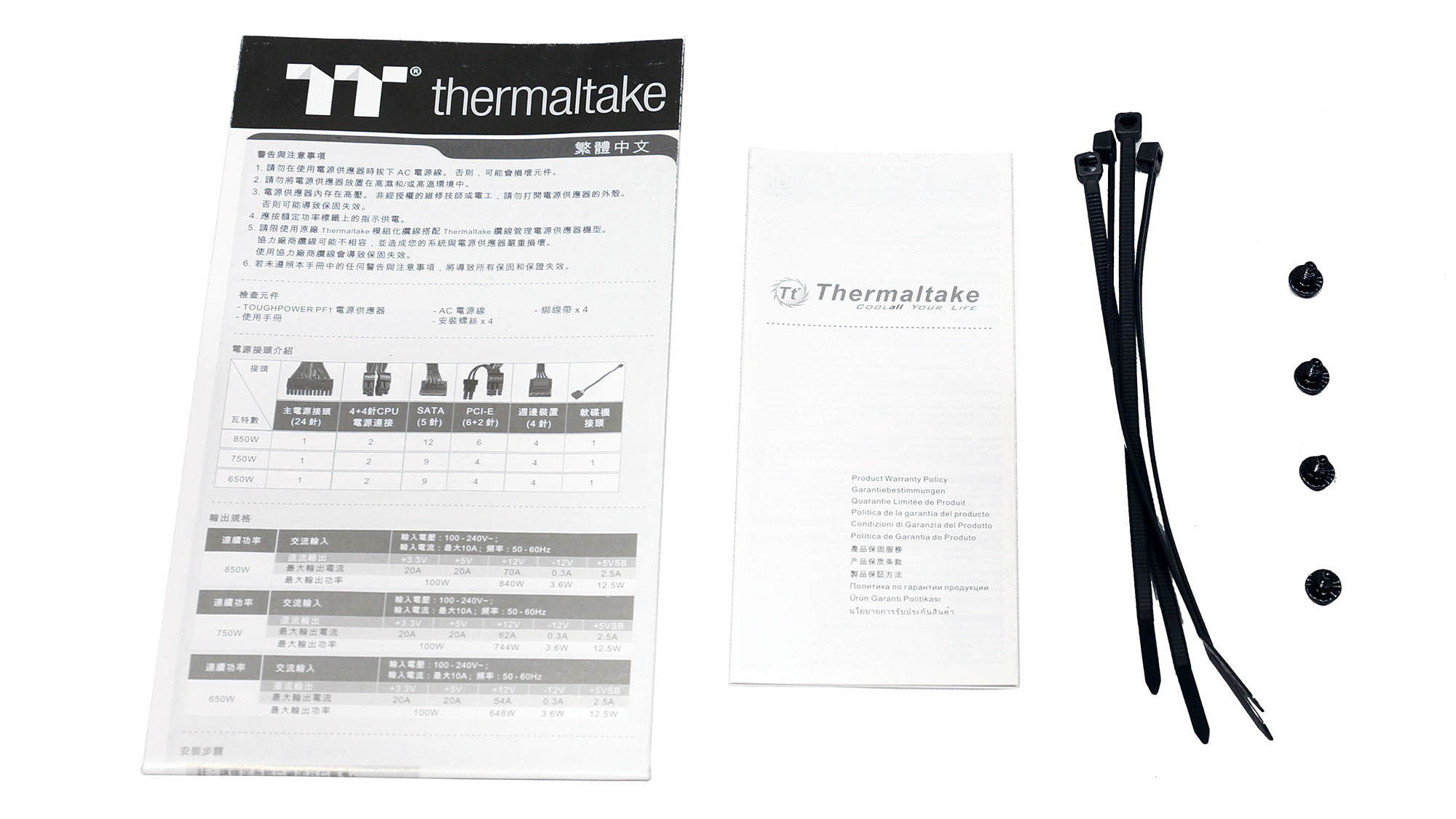
Specifications
|
Manufacturer (OEM) |
HKC |
|
Max. DC Output |
750W |
|
Efficiency |
80 PLUS Platinum, ETA-A (88-91%) |
|
Noise |
LAMBDA-A- (25-30 dB[A]) |
|
Modular |
✓ (Fully) |
|
Intel C6/C7 Power State Support |
✓ |
|
Operating Temperature (Continuous Full Load) |
0 - 50°C |
|
Over Voltage Protection |
✓ |
|
Under Voltage Protection |
✓ |
|
Over Power Protection |
✓ |
|
Over Current (+12V) Protection |
✓ |
|
Over Temperature Protection | ✓ |
|
Short Circuit Protection | ✓ |
|
Surge Protection |
✓ |
|
Inrush Current Protection |
✓ |
|
Fan Failure Protection |
✗ |
|
No Load Operation |
✓ |
|
Cooling | 120mm Hydraulic Bearing Fan [TT-1225(XW12025MS)] |
|
Semi-Passive Operation |
✓ (selectable) |
|
Dimensions (W x H x D) |
150 x 85 x 140mm |
|
Weight |
1.24 kg (2.73 lb) |
|
Form Factor |
ATX12V v2.4, EPS 2.92 |
|
Warranty |
10 Years |
Power Specifications
| Rail | 3.3V | 5V | 12V | 5VSB | -12V | |
|---|---|---|---|---|---|---|
| Max. Power | Amps | 20 | 20 | 62 | 2.5 | 0.3 |
| Watts | 100 | 744 | 12.5 | 3.6 | ||
| Total Max. Power (W) | 750 |
Cables & Connectors
| Modular Cables | Cable Count | Connector Count (Total) | Gauge | In Cable Capacitors |
|---|---|---|---|---|
| ATX connector 20+4 pin (600mm) | 1 | 1 | 16-18AWG | No |
| 4+4 pin EPS12V (650mm) | 2 | 2 | 16AWG | No |
| 6+2 pin PCIe (500mm+150mm) | 2 | 4 | 16-18AWG | No |
| SATA (480mm+150mm+150mm) | 3 | 9 | 18AWG | No |
| 4-pin Molex (480mm+150mm+150mm+150mm) | 1 | 4 | 18AWG | No |
| FDD Adapter (+100mm) | 1 | 1 | 22AWG | No |
| AC Power Cord (1400mm) - C13 coupler | 1 | 1 | 18AWG | - |
As expected, the PSU has enough connectors to deliver its full power effortlessly. The two EPS connectors, on dedicated cables, ensure compatibility with all high-end mainboards, and you also have four PCIe to power a pair of energy-hungry GPUs. With the release of Nvidia's RTX 3080, there is no need for SLI anymore, which is not even supported in this product, so that most users won't utilize the second pair of PCIe connectors.
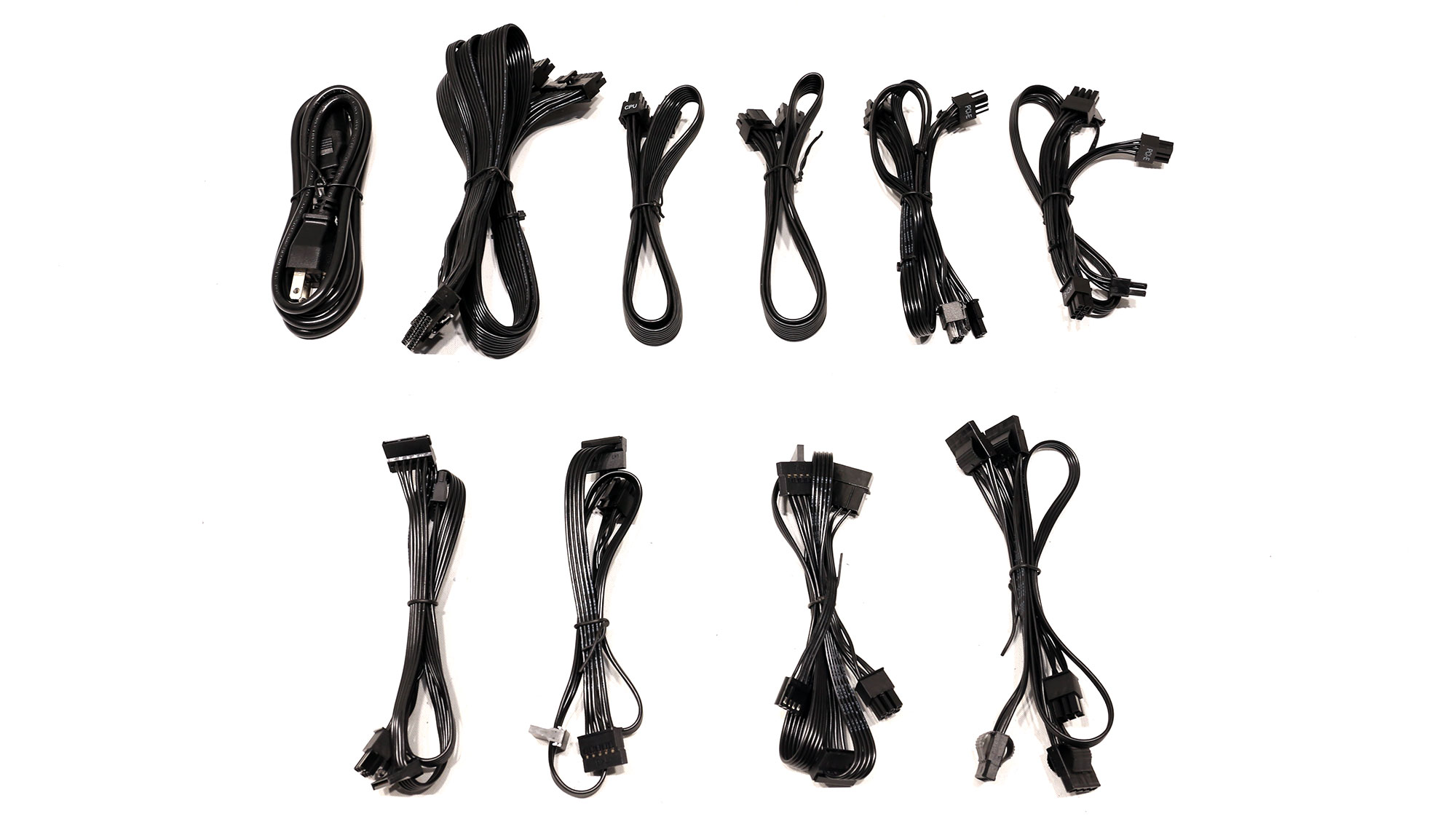
Cable Photos
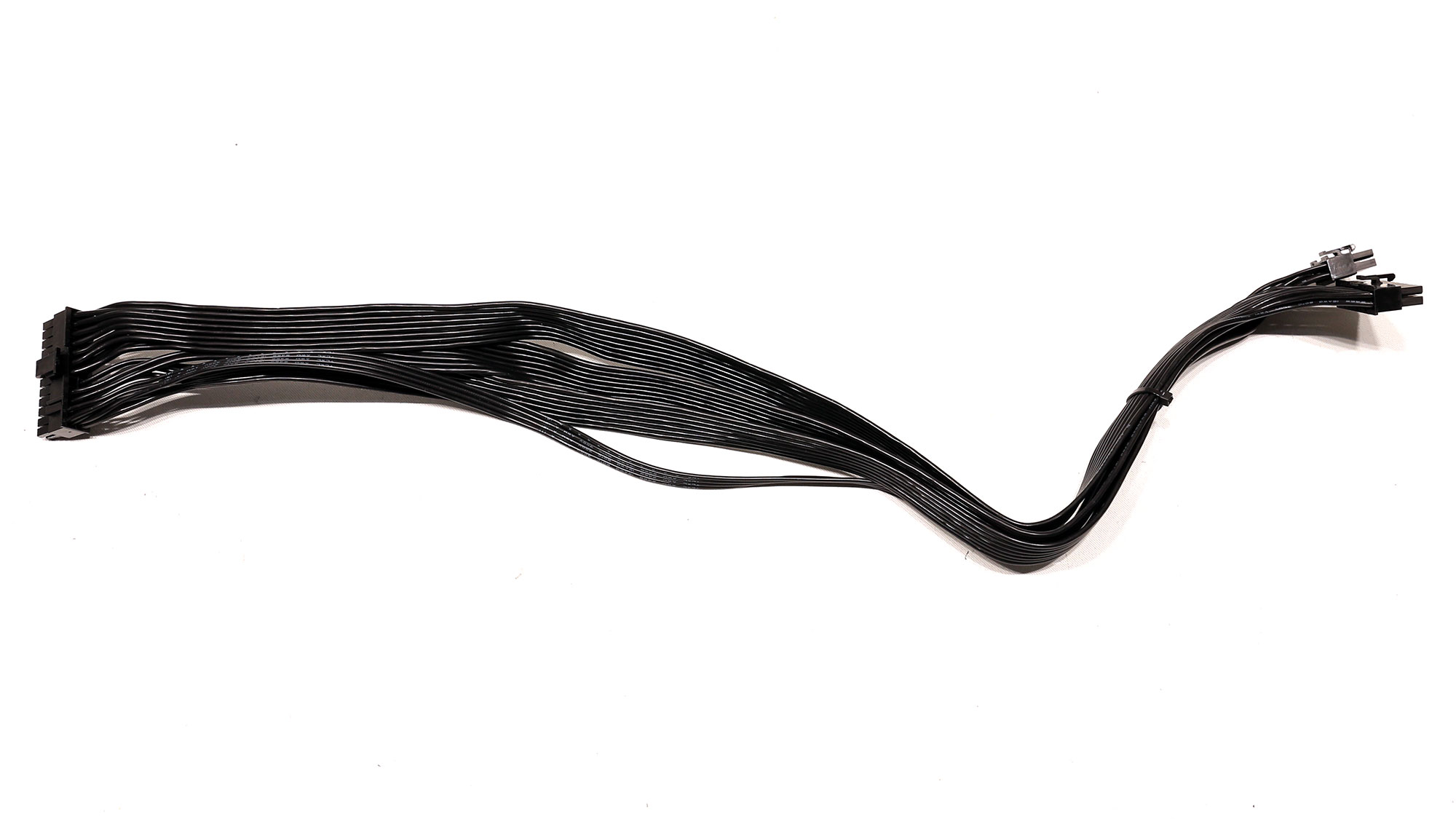
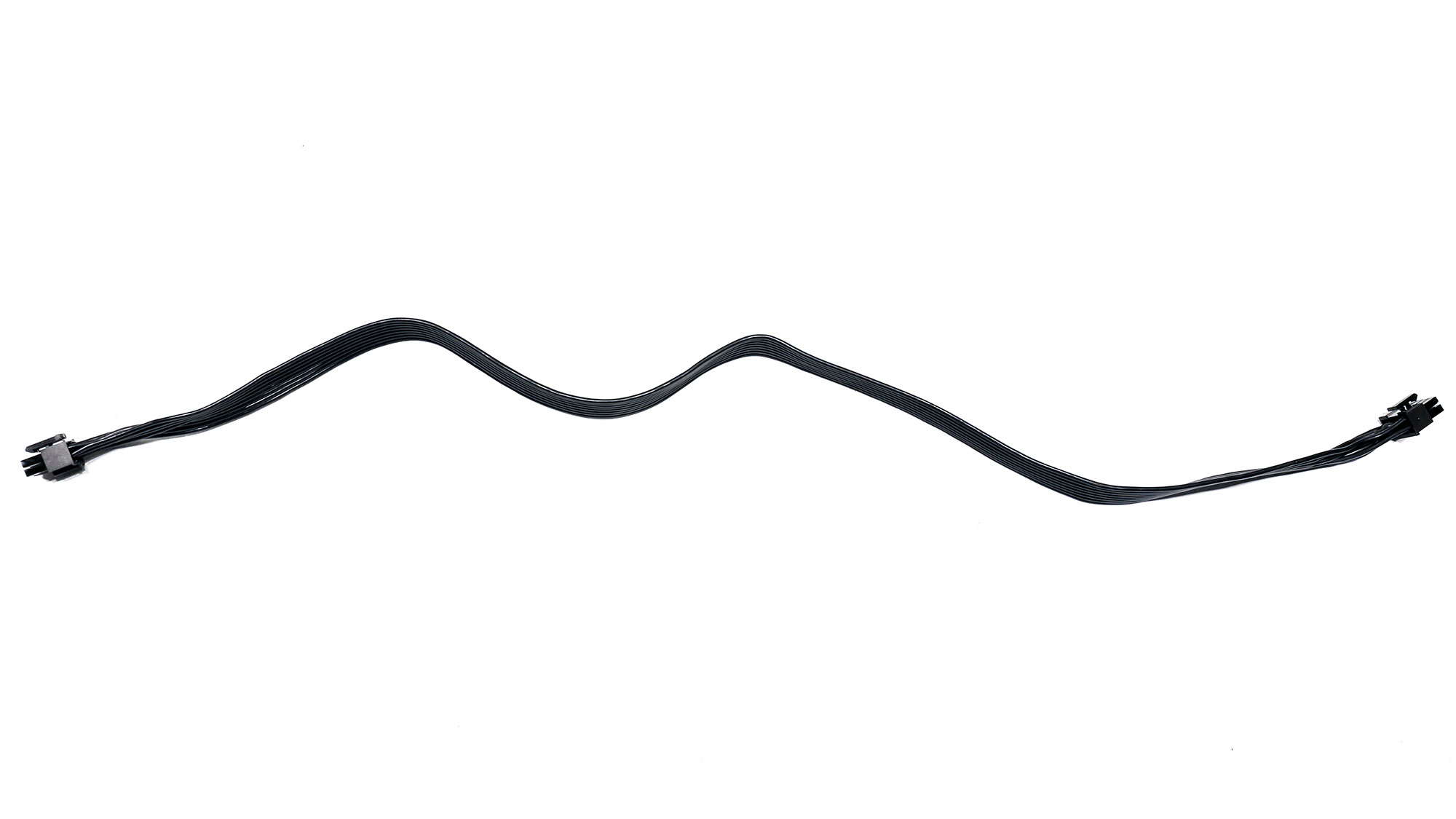
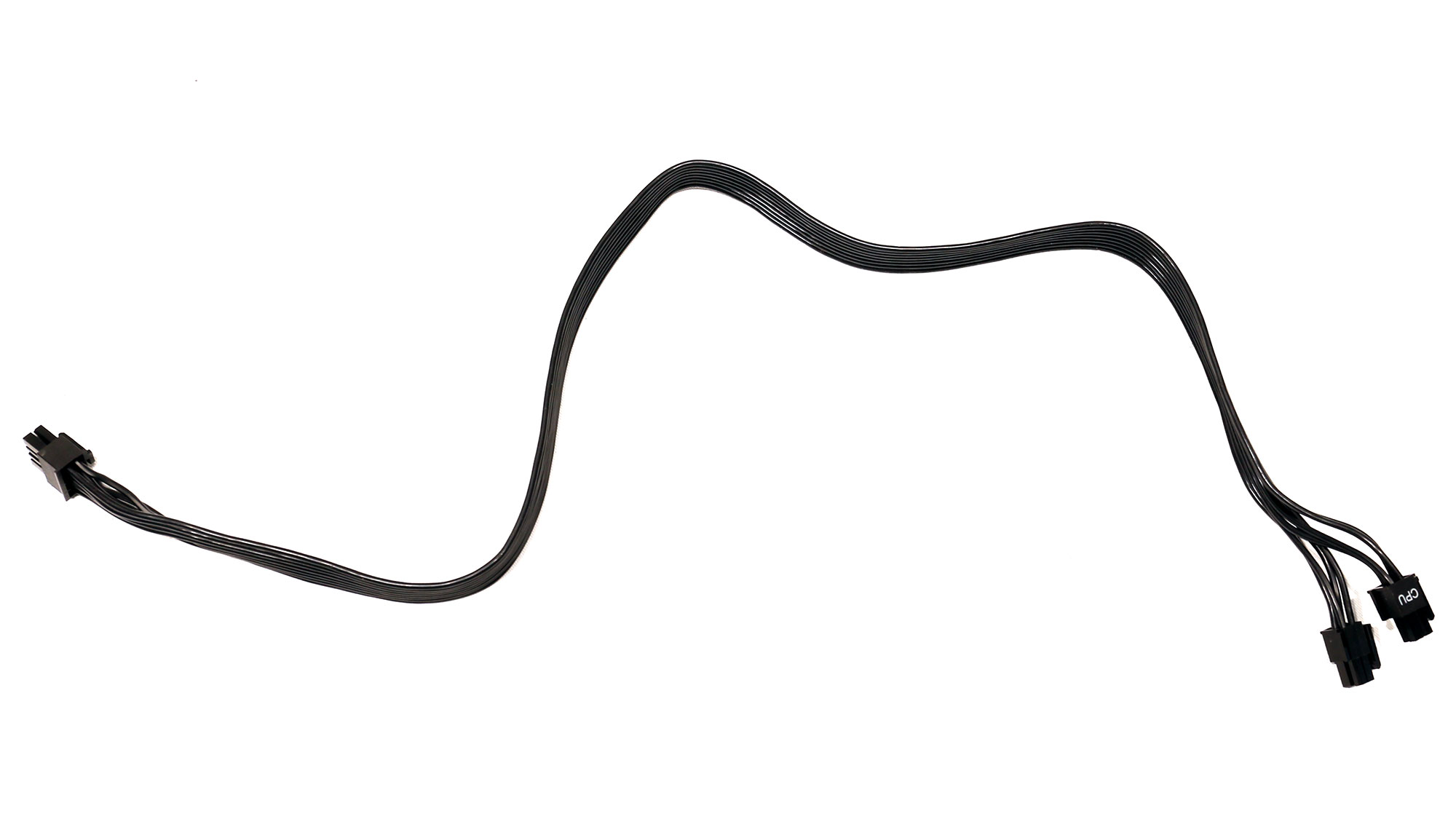
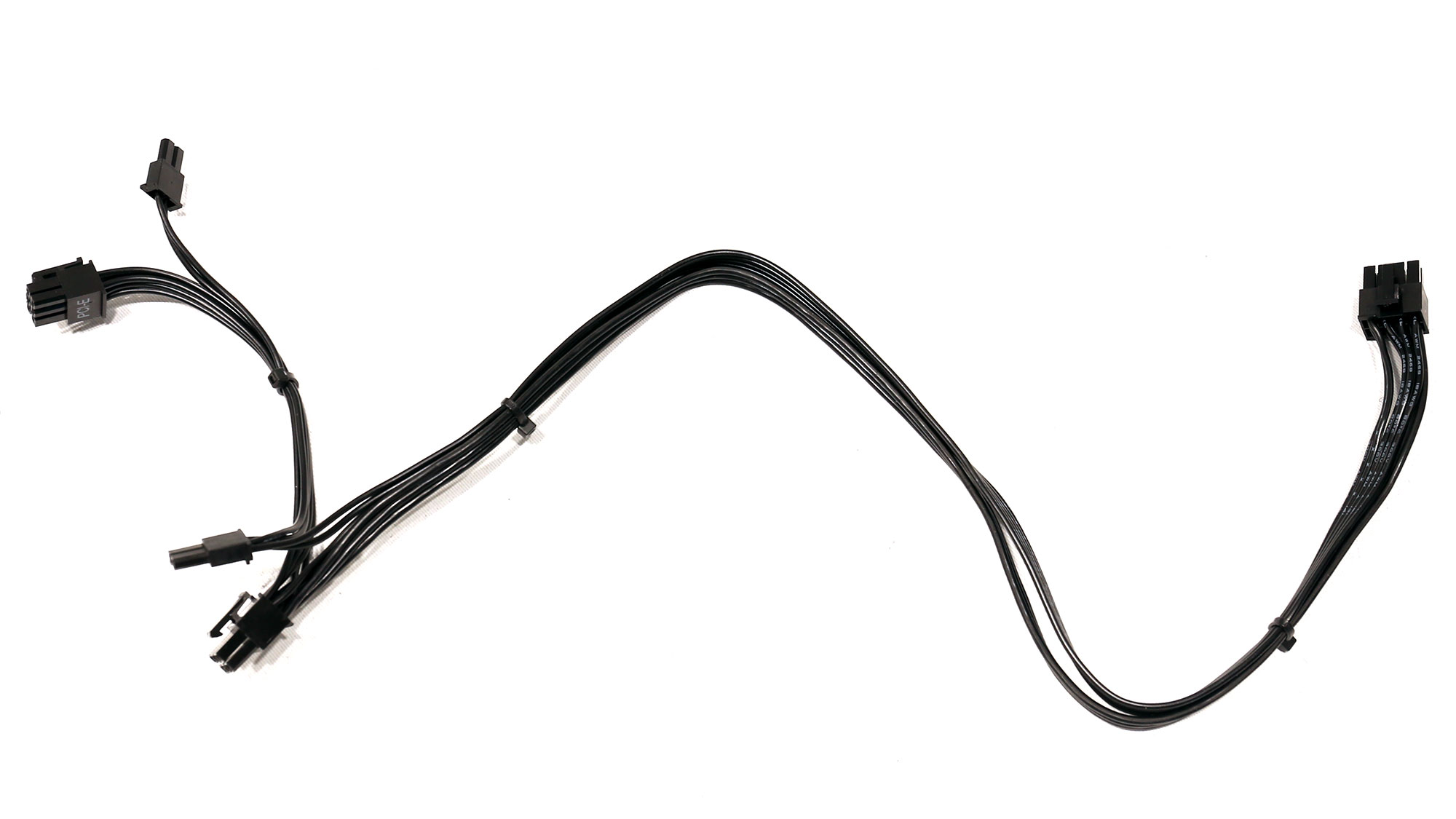
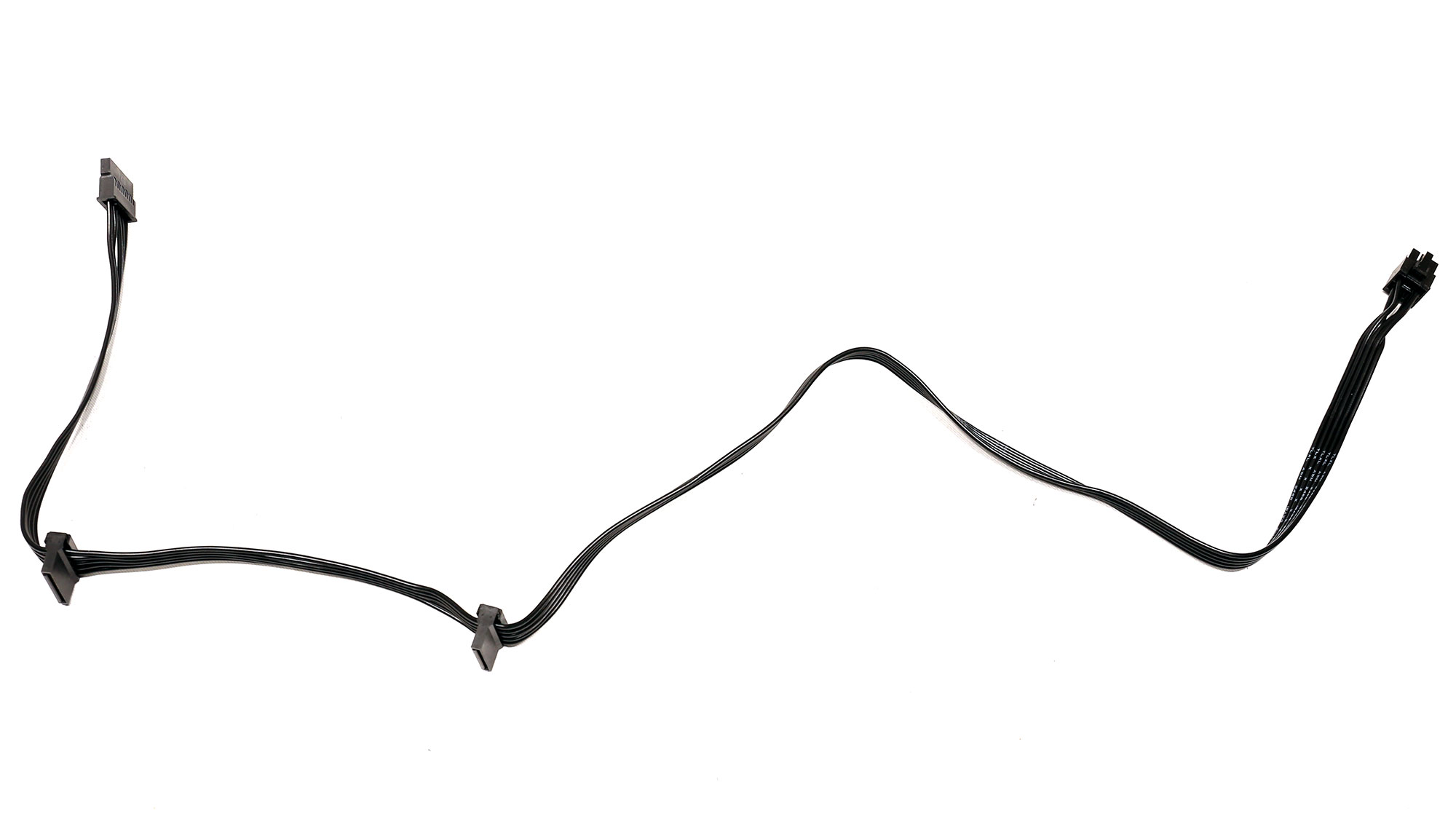
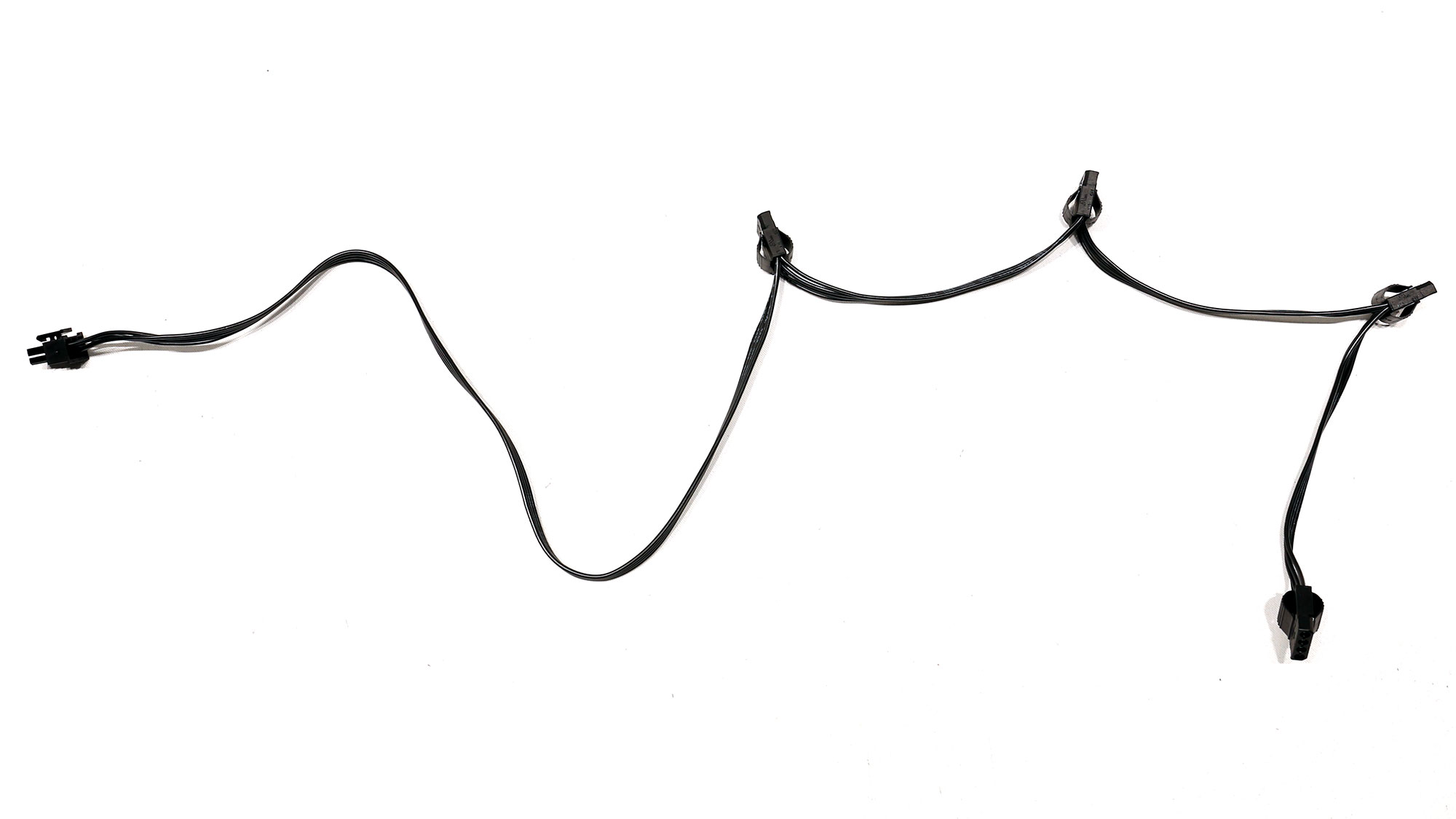
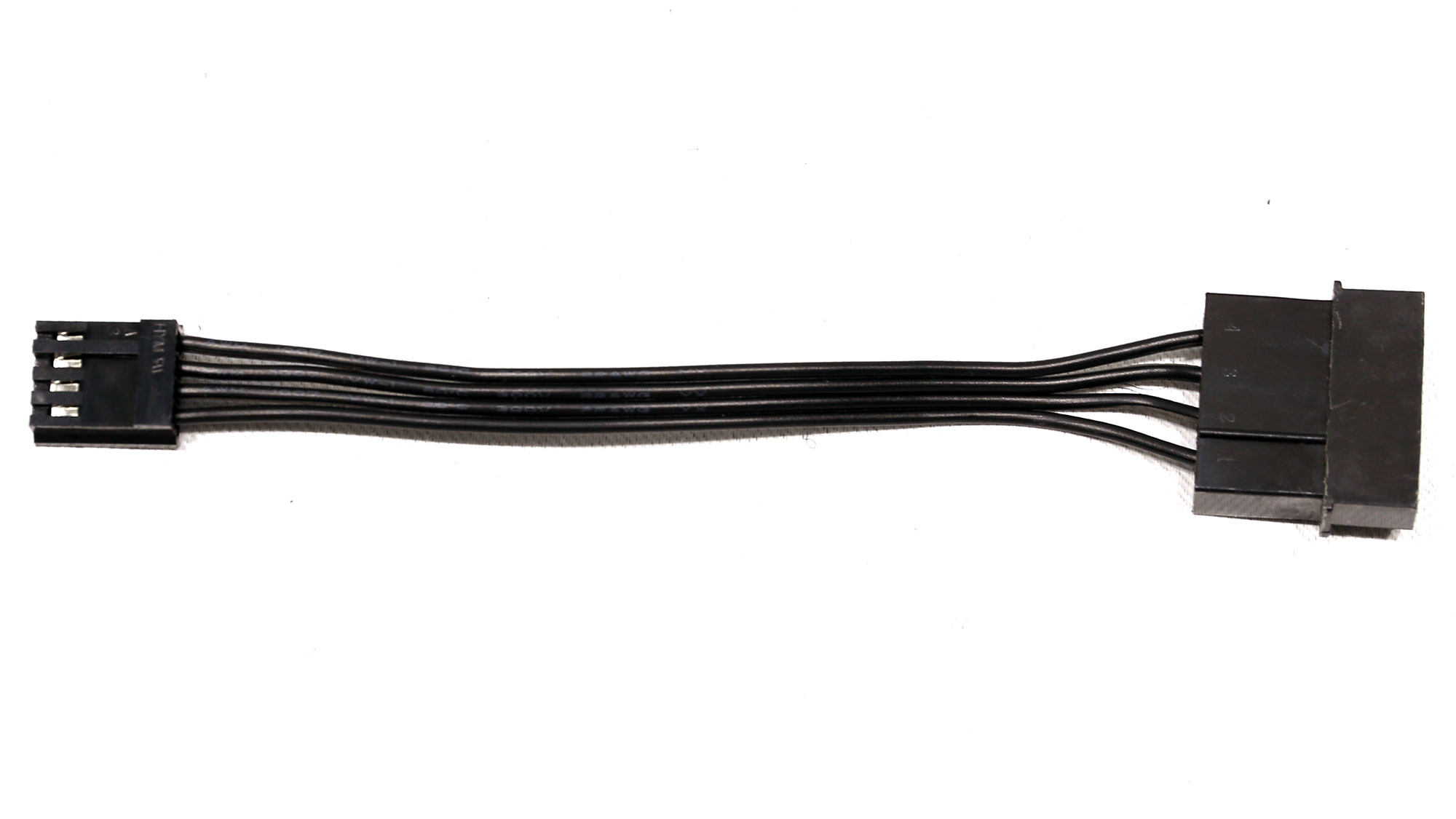
The number of peripheral connectors is adequate, and the distance between them is long enough, at 150mm. Finally, there are no in-cable caps, which can make cable routing hard.
Component Analysis
We strongly encourage you to have a look at our PSUs 101 article, which provides valuable information about PSUs and their operation, allowing you to better understand the components we're about to discuss.
| General Data | - |
| Manufacturer (OEM) | HKC |
| PCB Type | Double Sided |
| Primary Side | - |
| Transient Filter | 6x Y caps, 2x X caps, 2x CM chokes |
| Inrush Protection | NTC Thermistor 2.5D-15 (2.5Ohm) & Relay |
| Bridge Rectifier(s) | 2x GBU1506L (600V, 15A @ 100°C) |
| APFC MOSFETs | 2x NCE Power NCE65TF130F (650V, 18A @ 100°C, Rds(on): 0.13Ohm) |
| APFC Boost Diode | 1x Global Power Technology G3S06510H (650V, 10A @ 120°C) |
| Bulk Cap(s) | 2x Rubycon (420V, 330uF each or 660uF combined, 2,000h @ 105°C, MXH) |
| Main Switchers | 2x NCE Power NCE65TF130F (650V, 18A @ 100°C, Rds(on): 0.13Ohm) |
| APFC Controller | Champion CM6500UNX |
| Resonant Controller | Champion CM6901X |
| Topology |
Primary side: APFC, Half-Bridge & LLC converter Secondary side: Synchronous Rectification & DC-DC converters |
| Secondary Side | - |
| +12V MOSFETs | 6x Advanced Power AP4N1R8CMT-A (45V, 32A @ 70°C, Rds(on): 1.8mOhm) |
| 5V & 3.3V | DC-DC Converters: 4x Advanced Power AP4024GEMT (30V, 20.9A @ 70°C, Rds(on): 4.5mOhm) PWM Controllers: 2x ANPEC APW7164 |
| Filtering Capacitors |
Electrolytic: 1x Nippon Chemi-Con (4-10,000h @ 105°C, KY), 5x Nippon Chemi-Con (1-5,000h @ 105°C, KZE) |
| Supervisor IC | Sitronix ST9S313-DAG (OVP, UVP, SCP) |
| Fan Model | Thermaltake (120mm, 12V, 0.30A, Hydraulic Bearing Fan) |
| 5VSB Circuit | - |
| Rectifier | 1x SB1045L SBR (45V, 10A) |
| Standby PWM Controller | Excelliance MOS Corporation EM8564A |
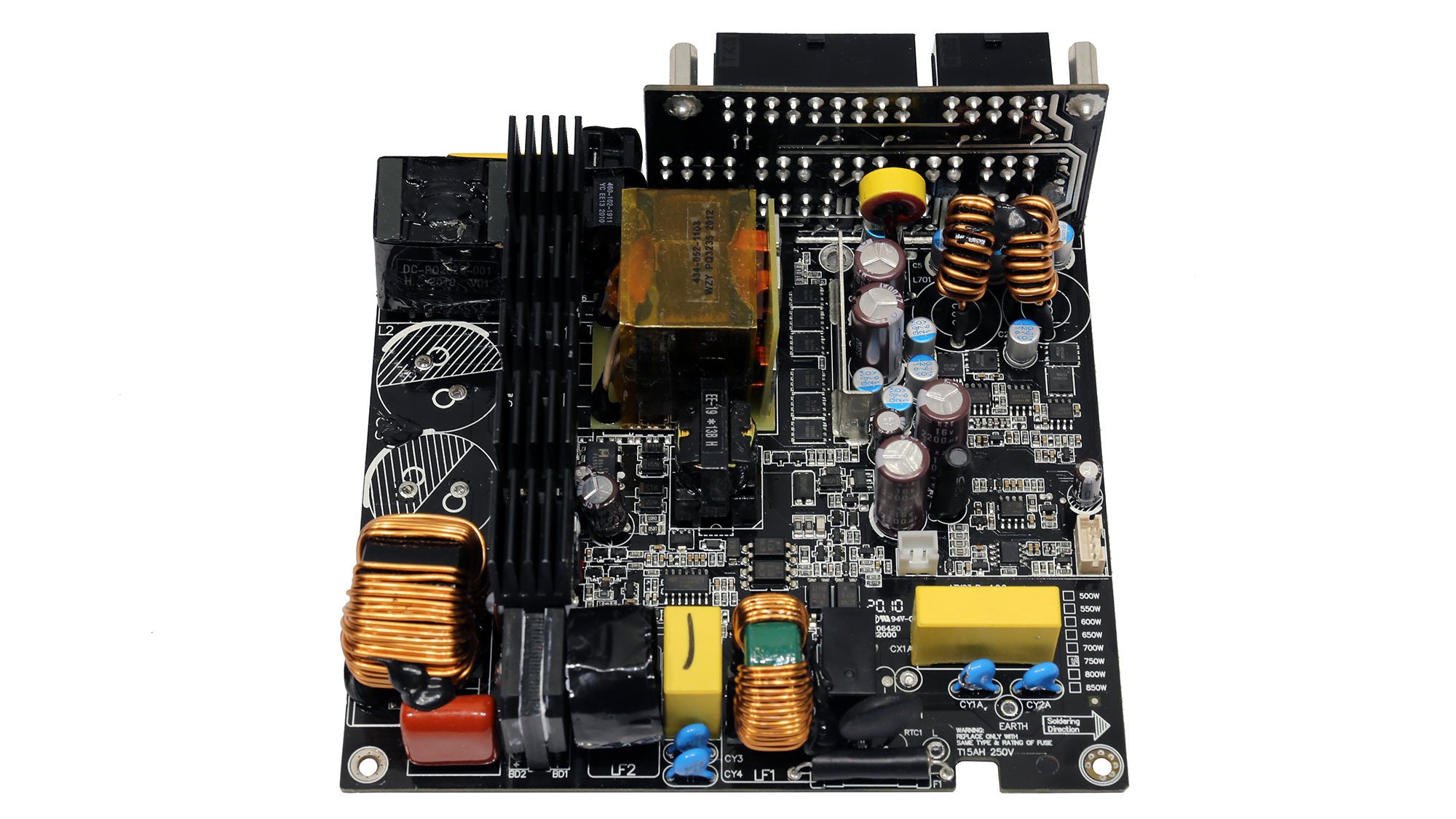
Overall Photos
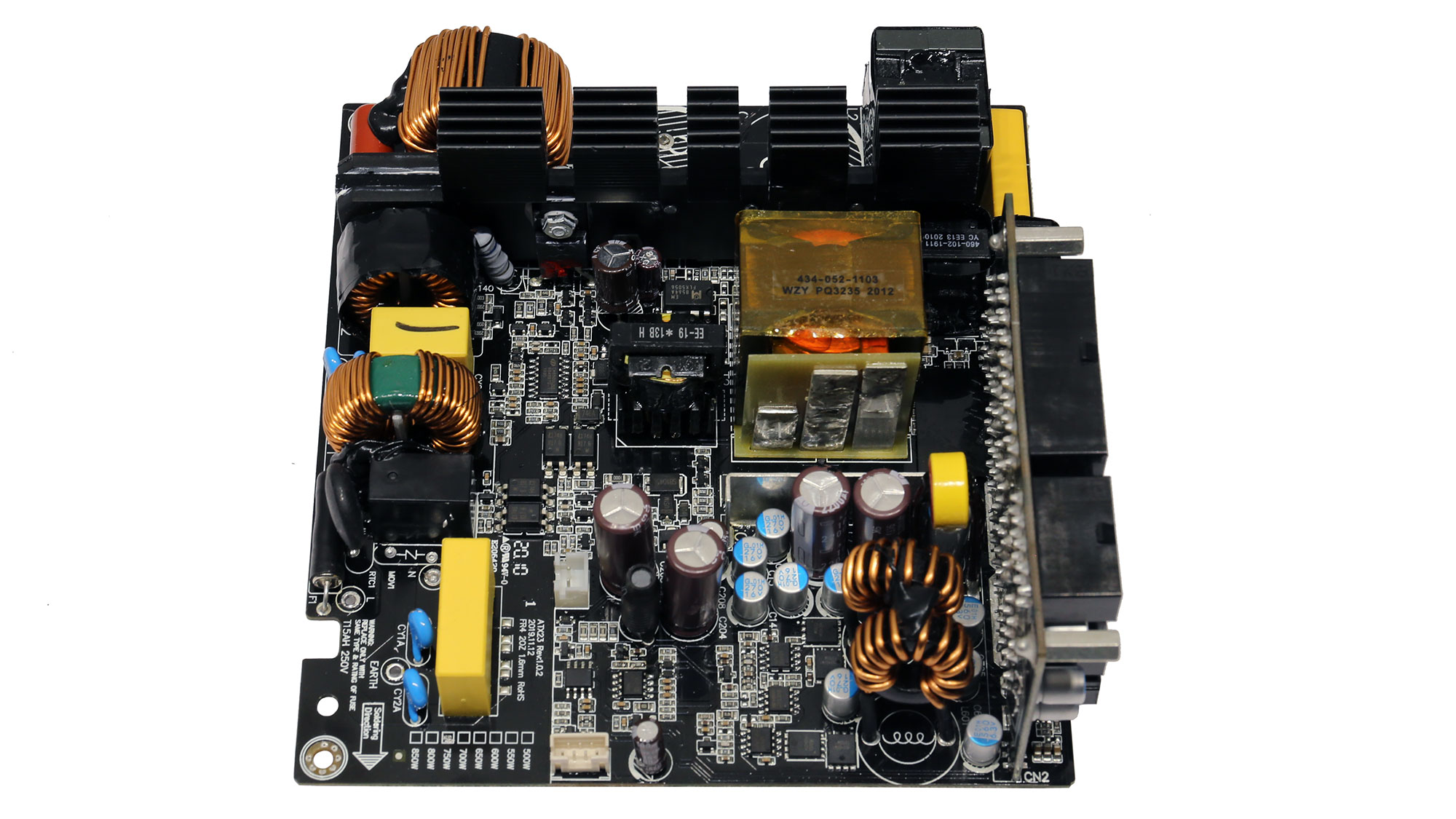
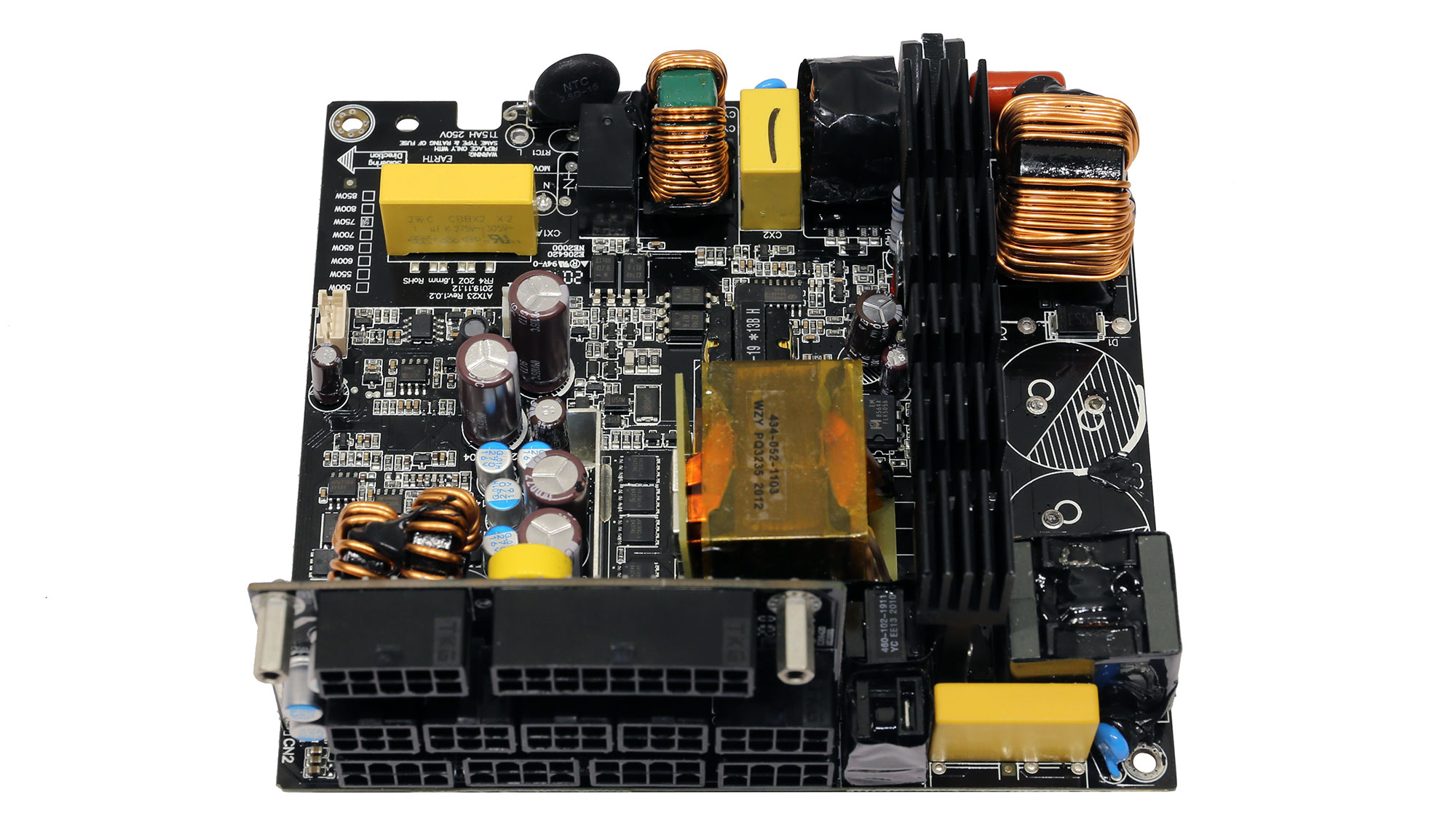
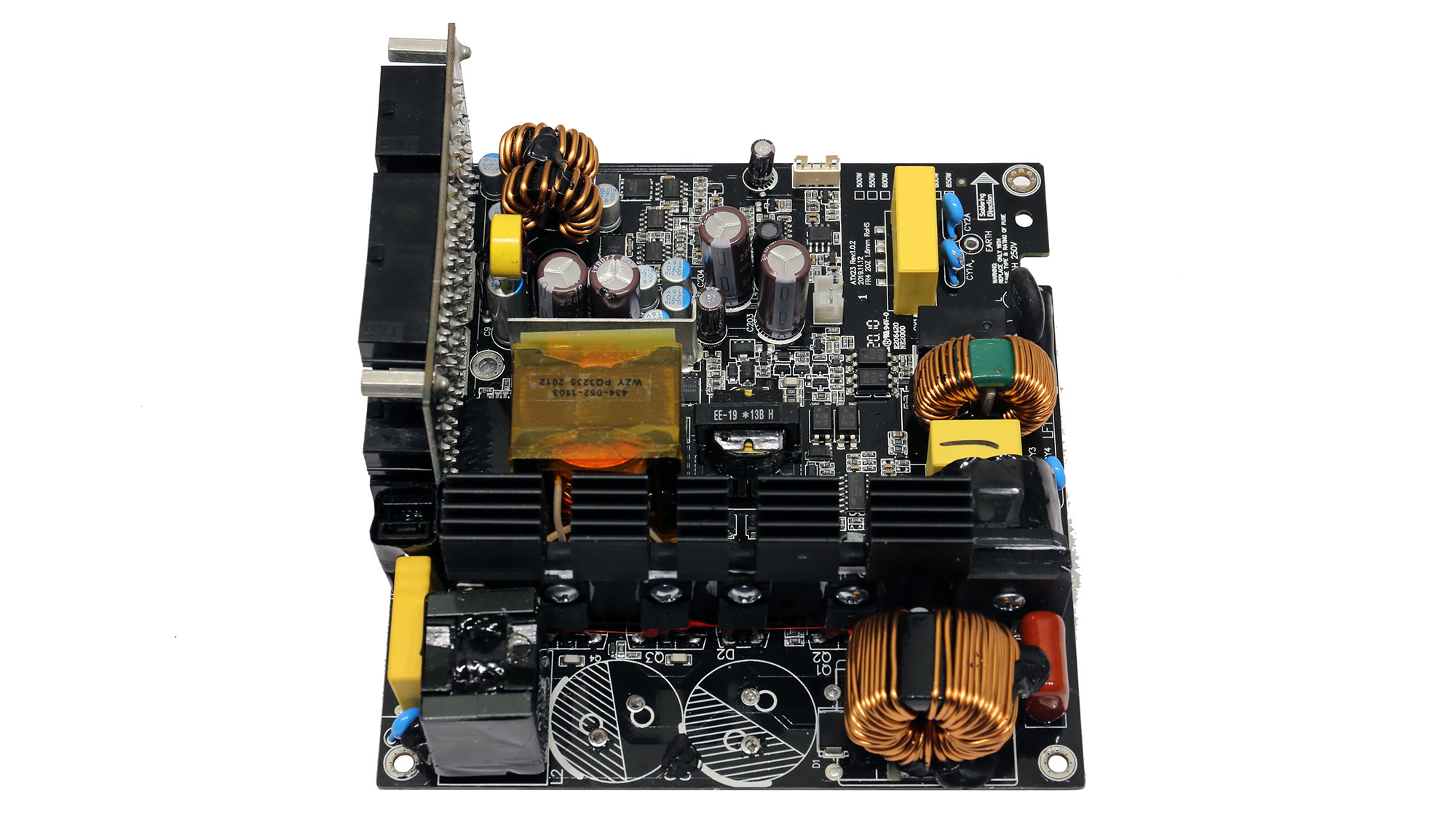
We don't often see HKC products, especially in the high-end categories. It is always interesting to see new designs. Thermaltake was smart enough to go to a less known OEM for this product line, achieving two things: lower production cost and the ability to offer something different from the competition, mostly based on Seasonic and CWT designs.
Get Tom's Hardware's best news and in-depth reviews, straight to your inbox.
Build quality is pretty good, although HKC avoided using expensive FETs (e.g., Infineon ones) on the primary side, to keep the cost low. On the contrary, it used quality filtering caps, including many polymer ones, and an HDB fan. This is why they didn't have a problem providing an extra-long, ten-year warranty to match the competition's offerings.
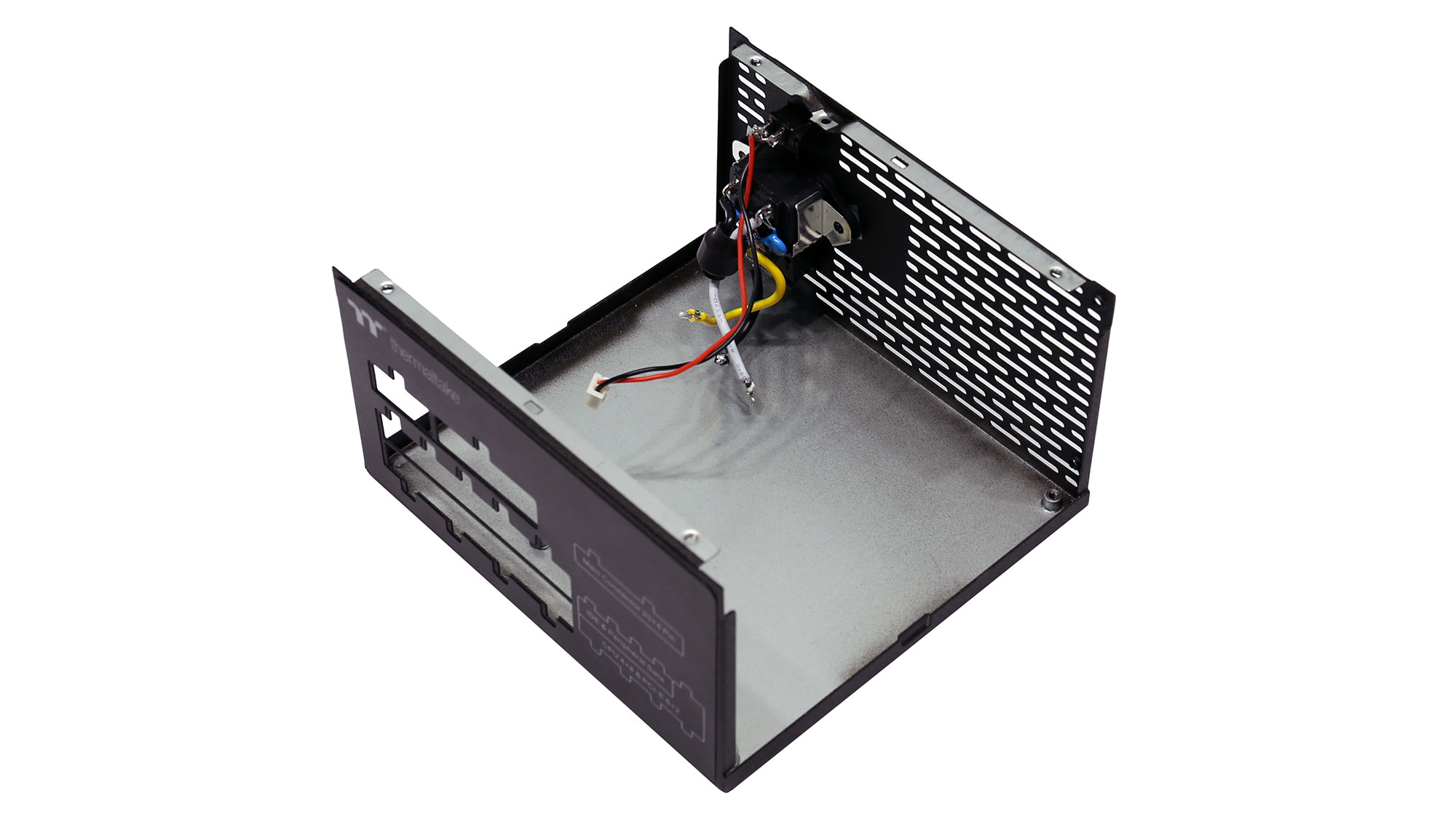
Transient filter
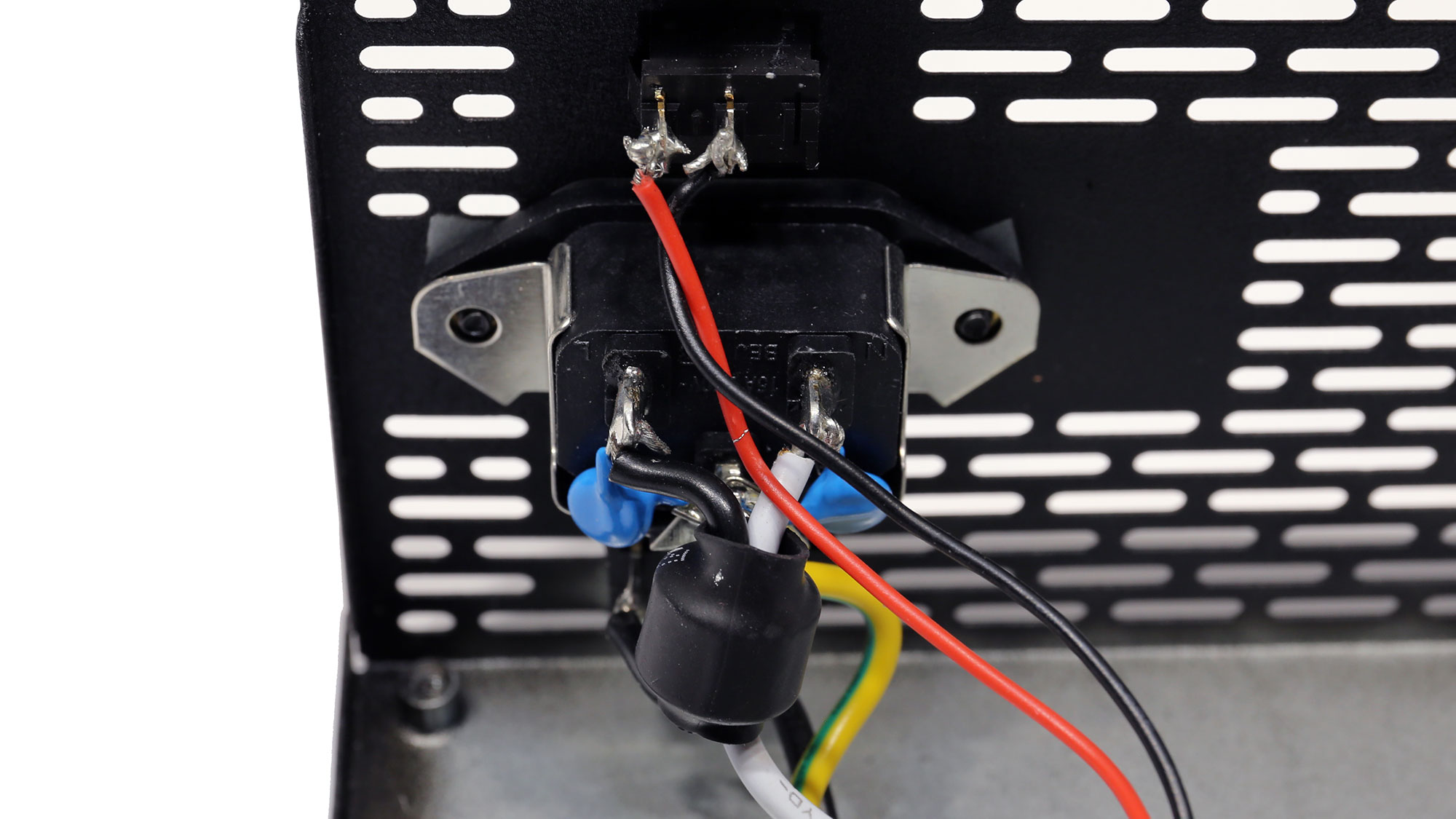
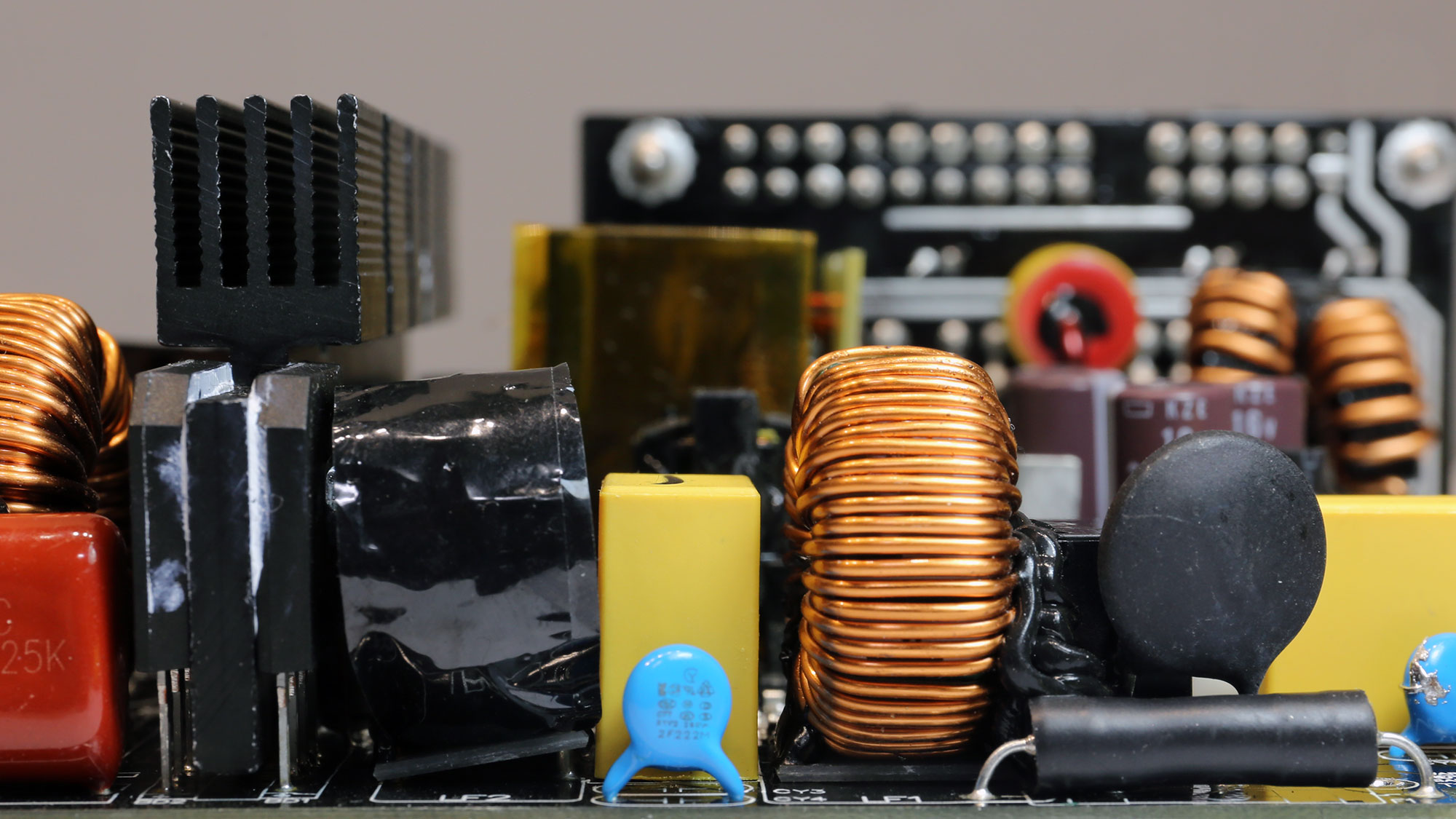
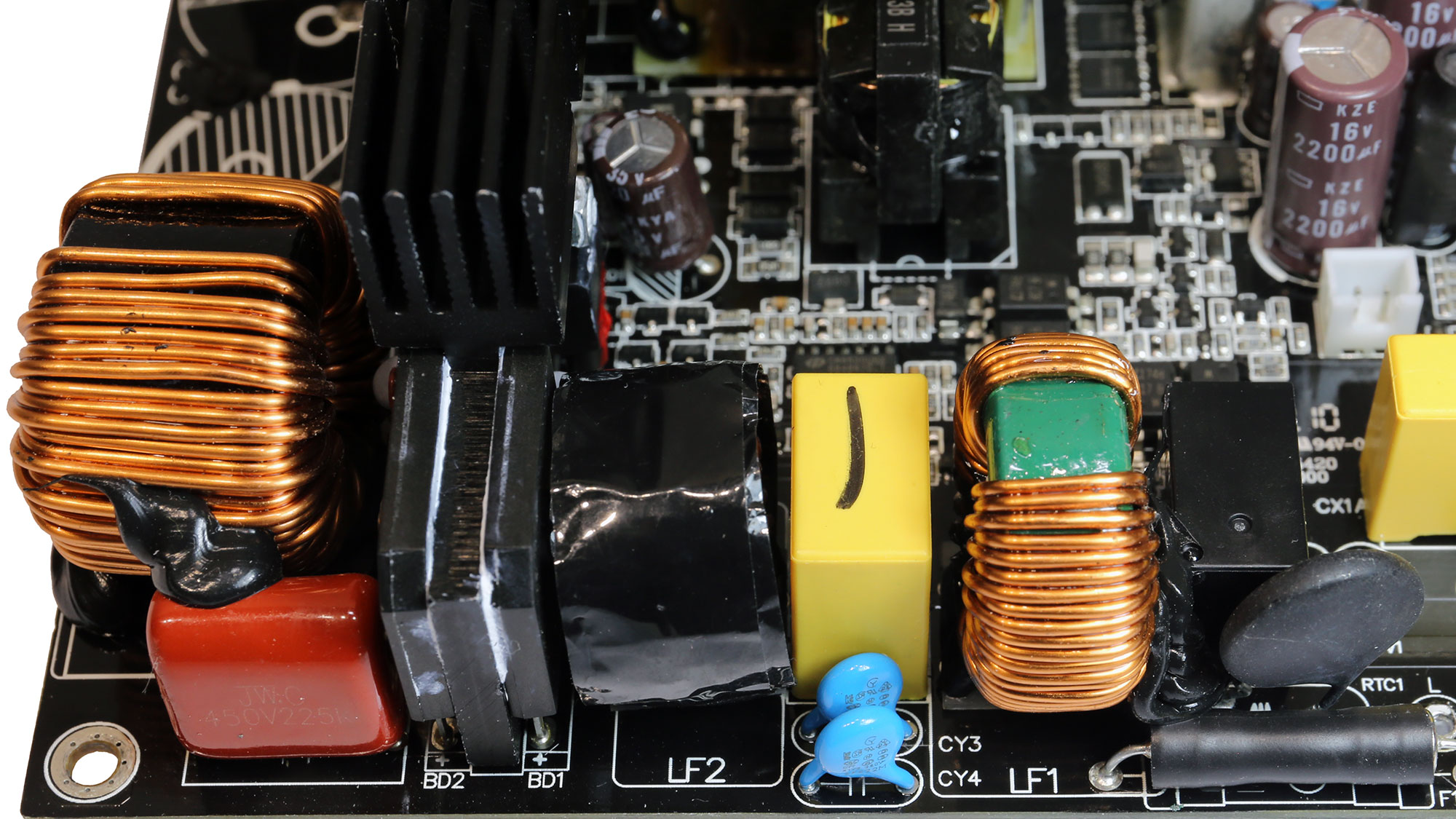
As usual, we find a two-stage transient/EMI filter. It has more than enough X and Y caps and two CM chokes, but it lacks a DM choke. It doesn't have an MOV, either, which is a great shame since this inexpensive part protects against voltage surges.
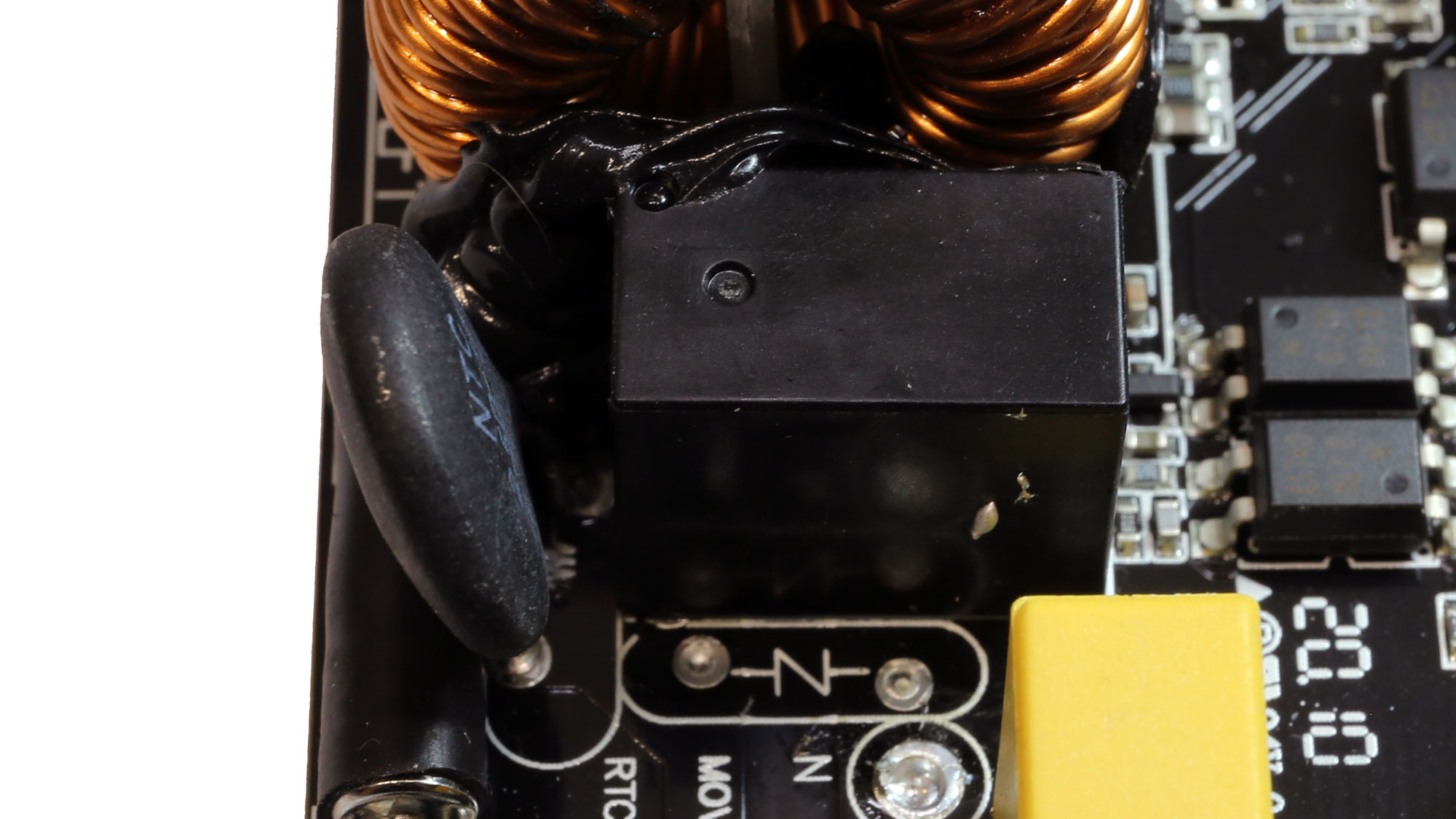
An NTC thermistor, supported by a bypass relay, suppress large inrush currents.
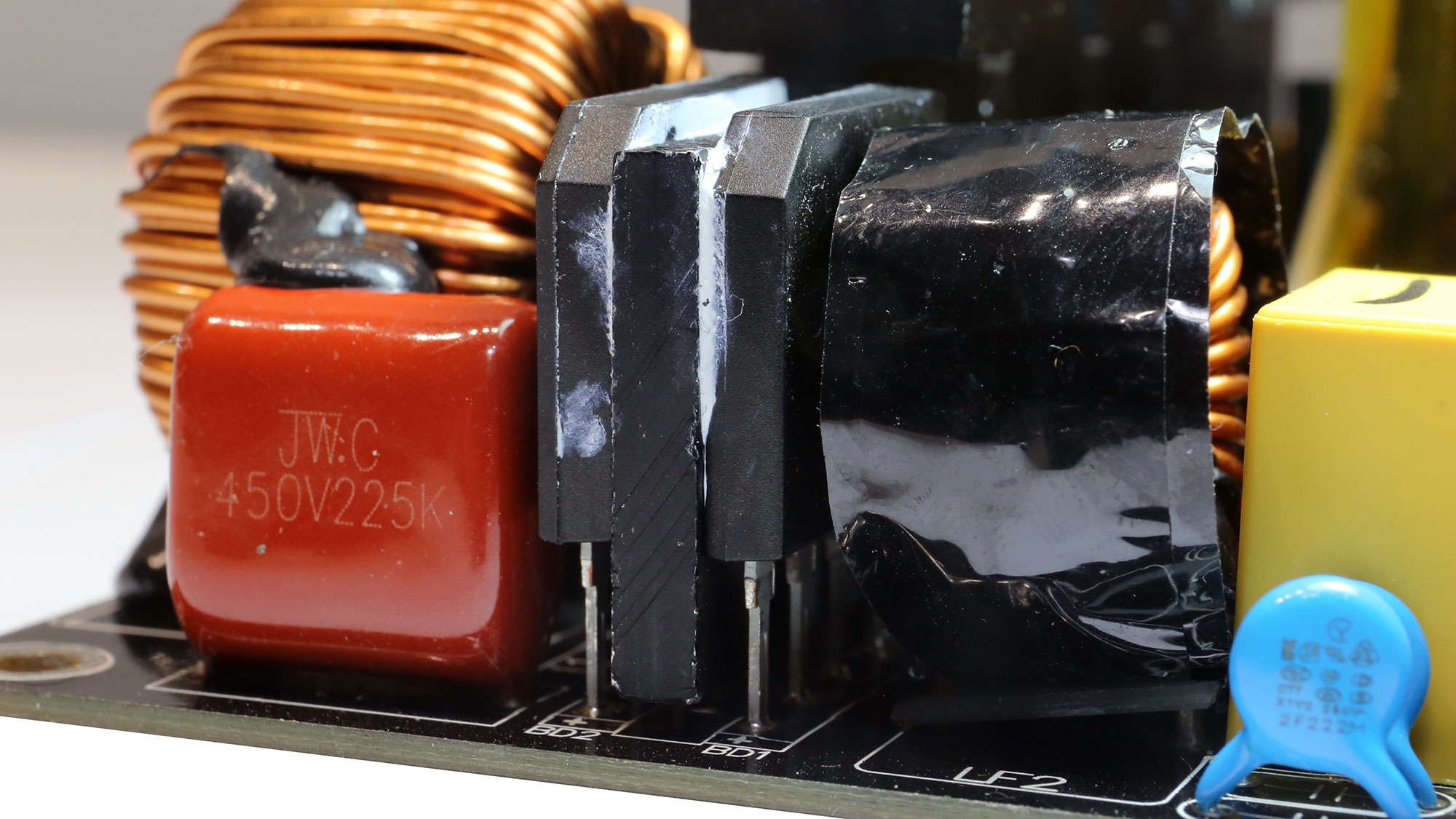
Bridge rectifiers
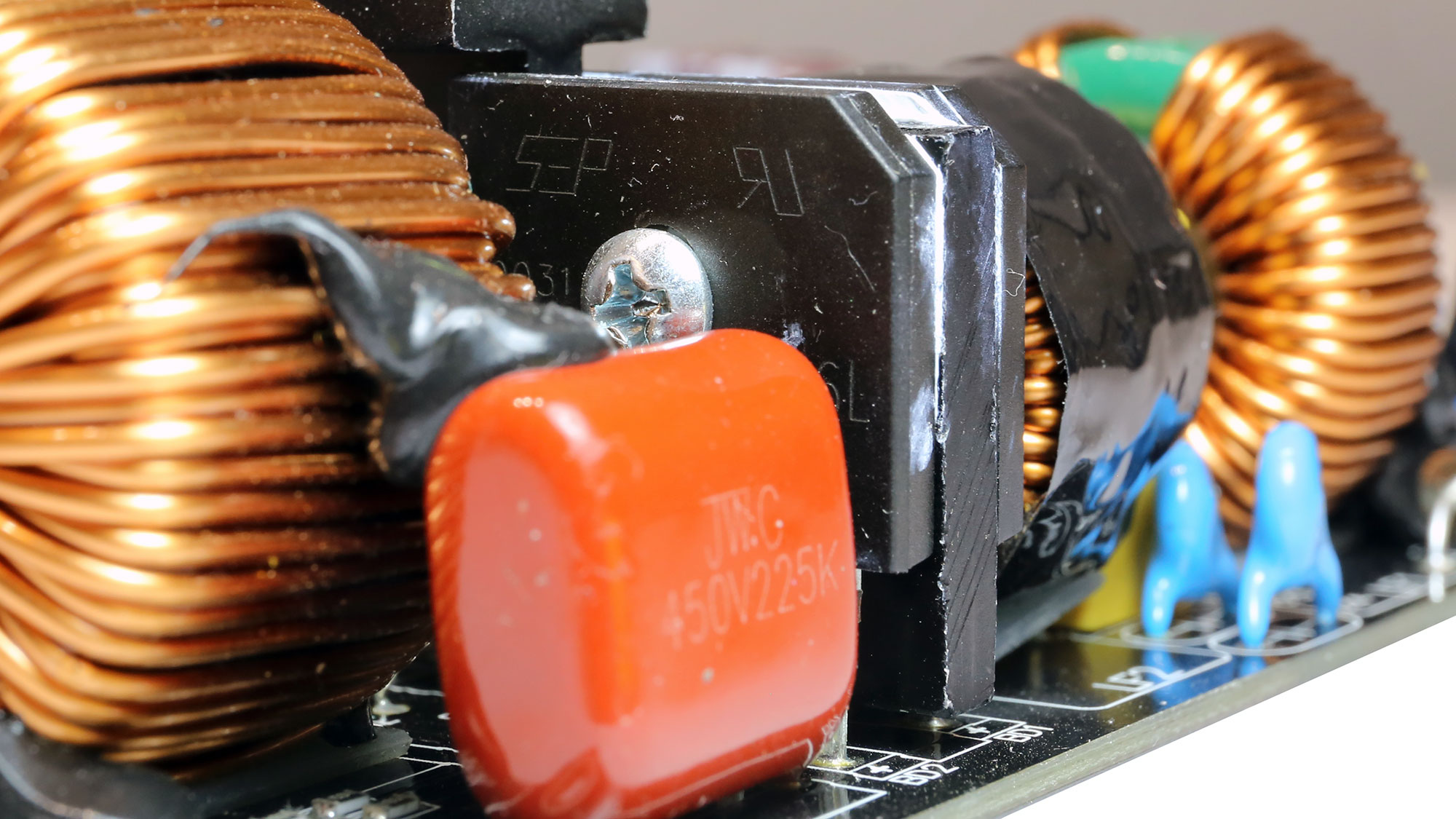
The pair of bridge rectifiers can handle up to 30A of current, so it will easily meet this PSU's requirements.
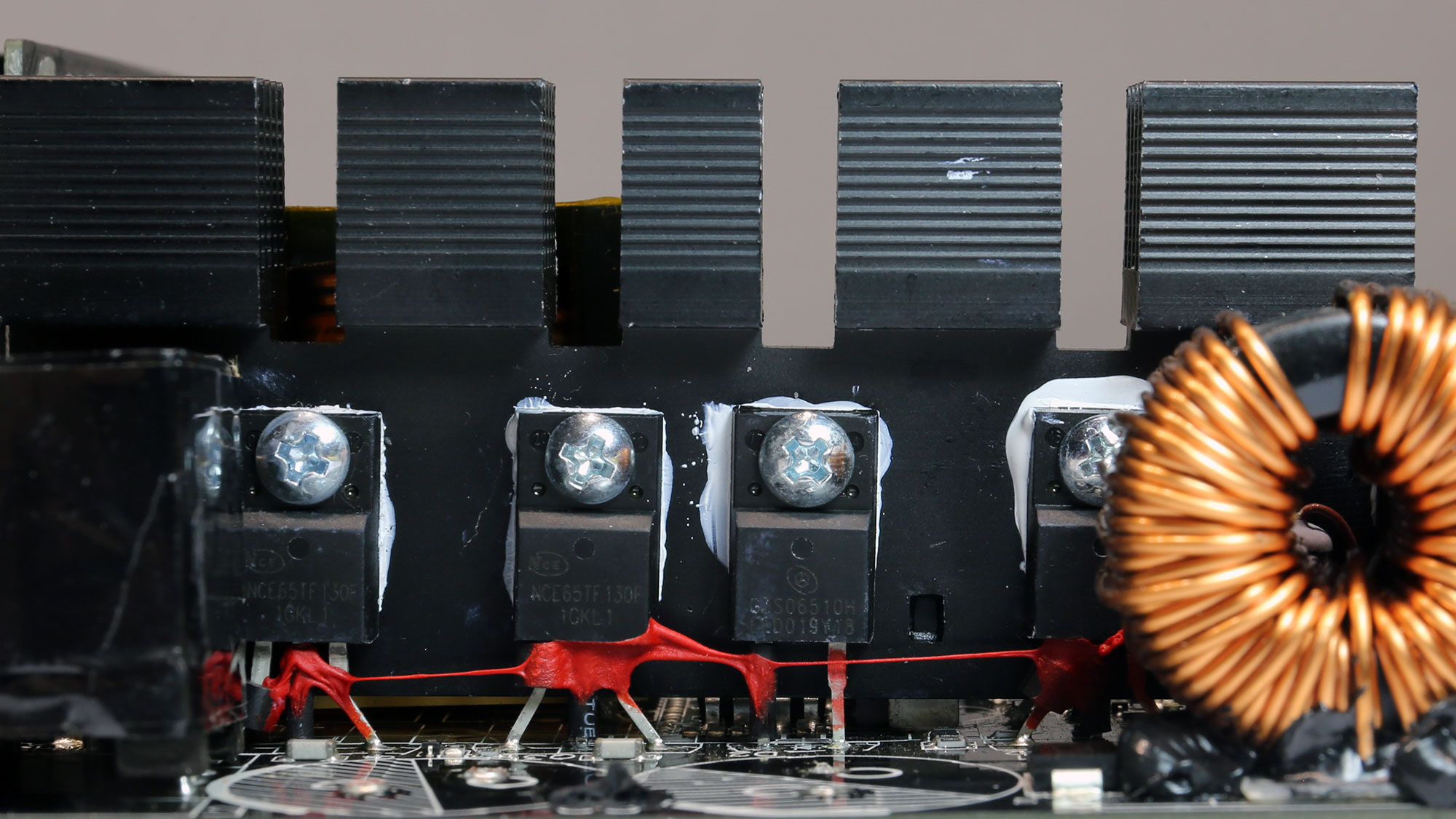
APFC converter
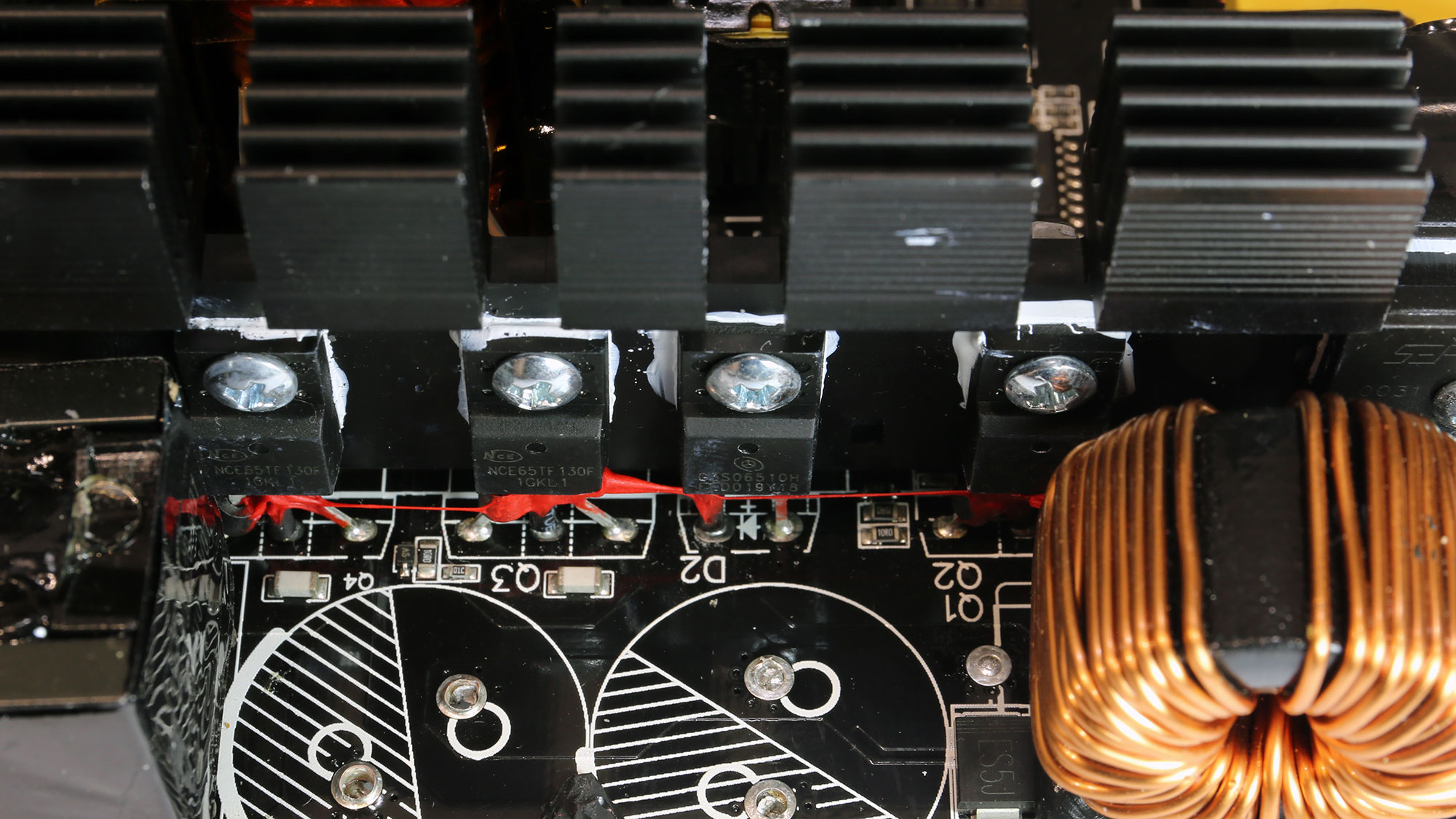
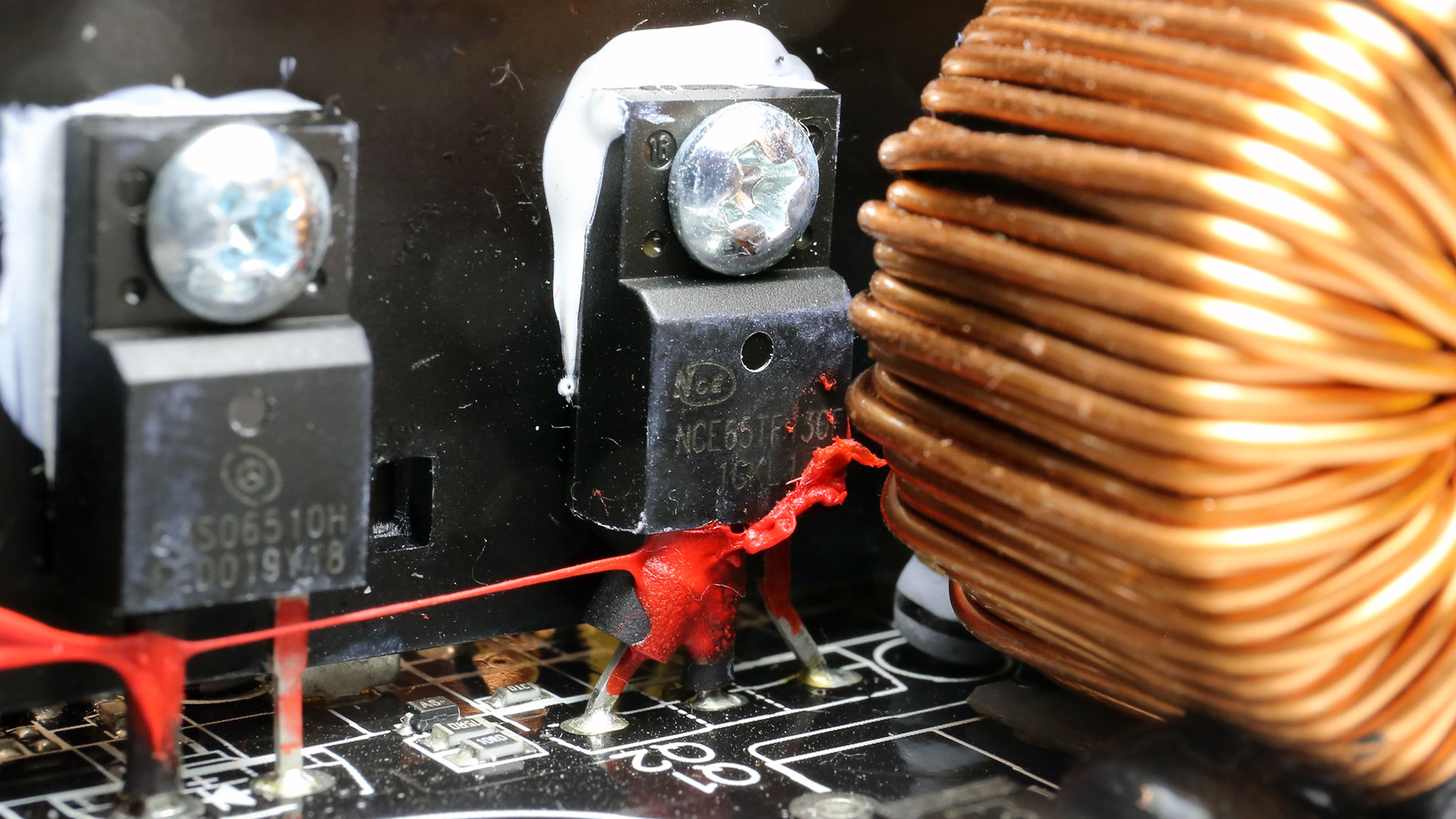
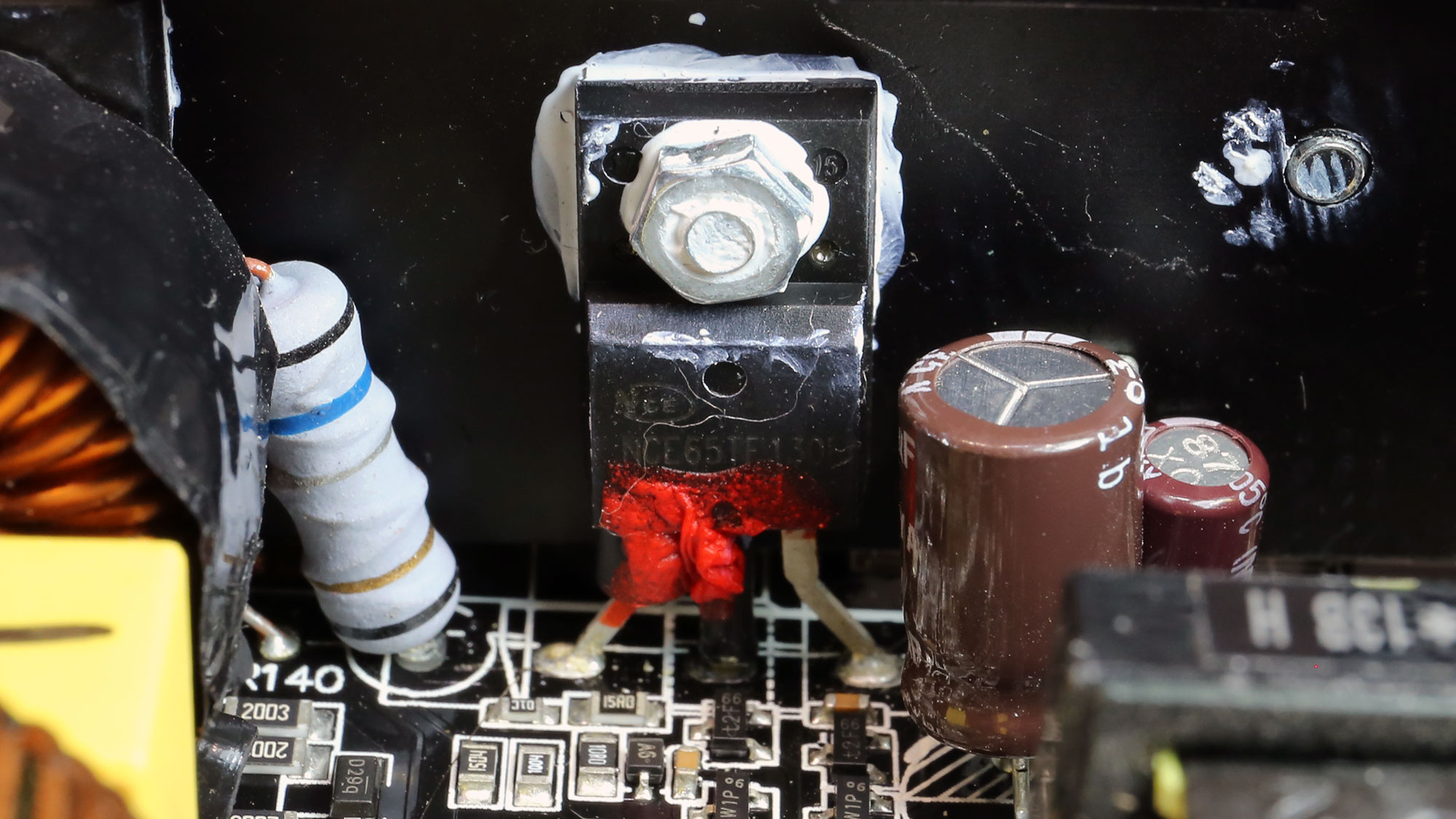
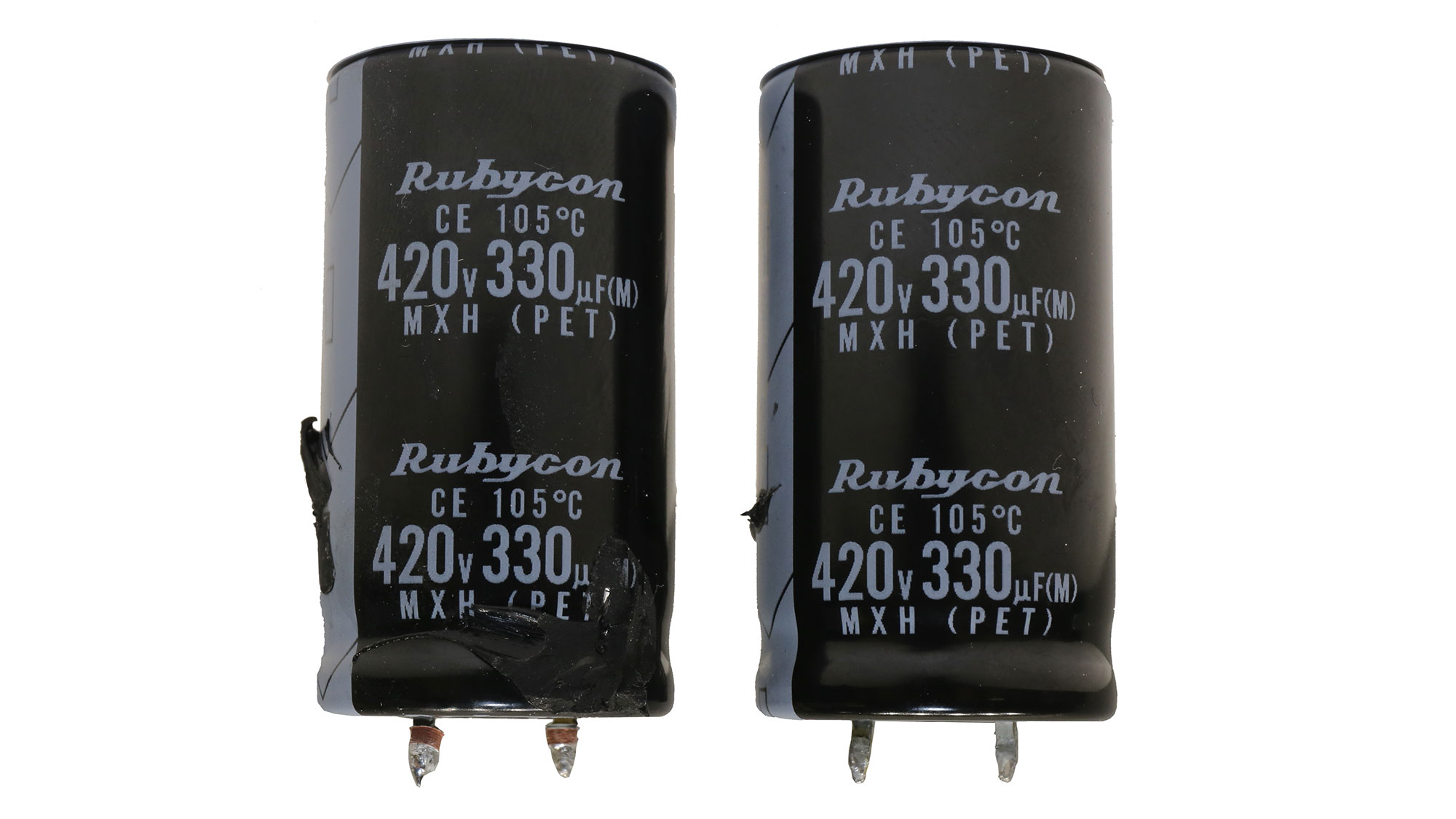
In the APFC converter, we find two NCE Power FETs and a single, powerful (10A max current output) boost diode. The bulk caps are by Rubycon, and their combined capacity reaches 660uF.
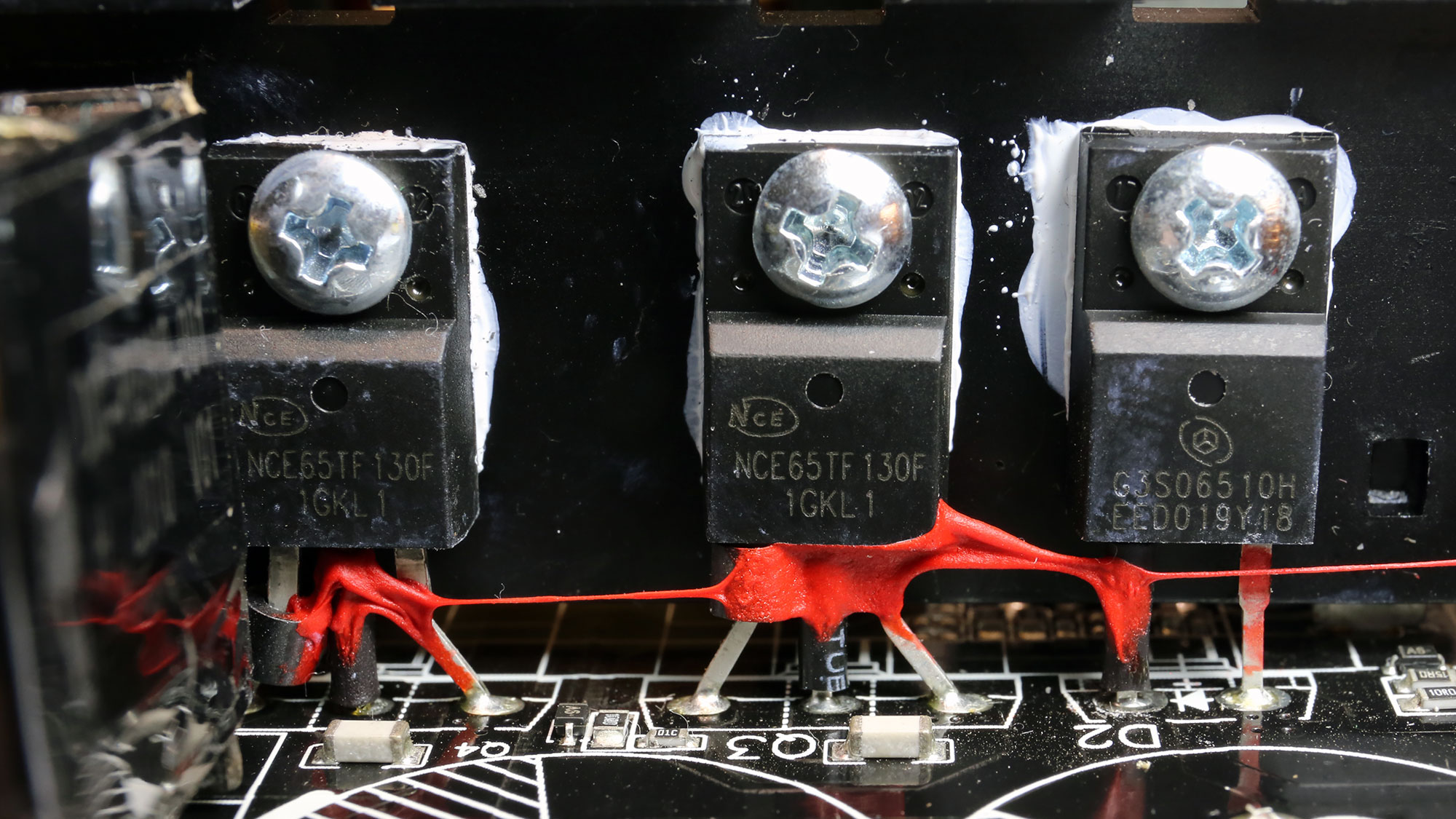
Main FETs and primary transformer
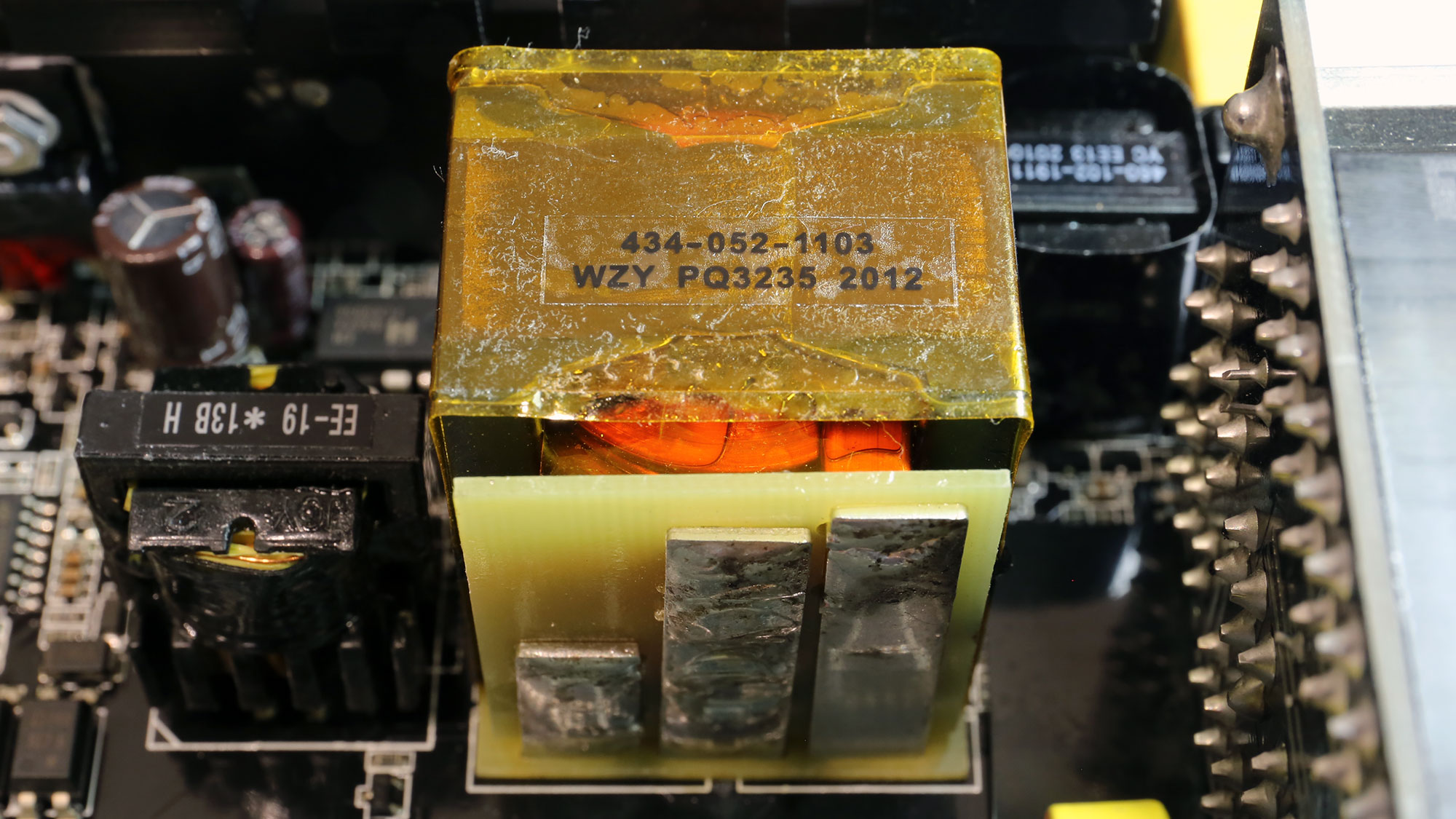
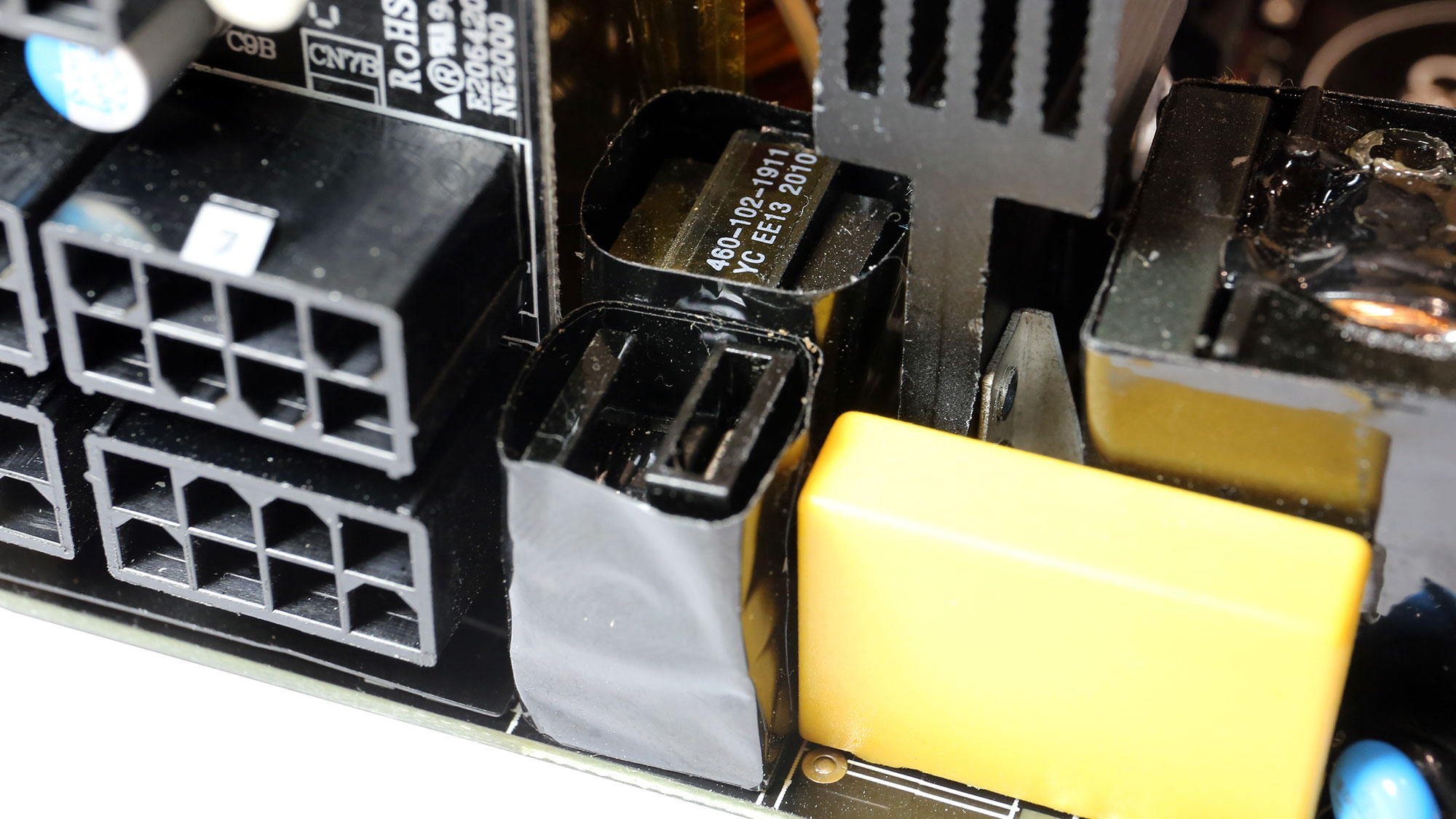
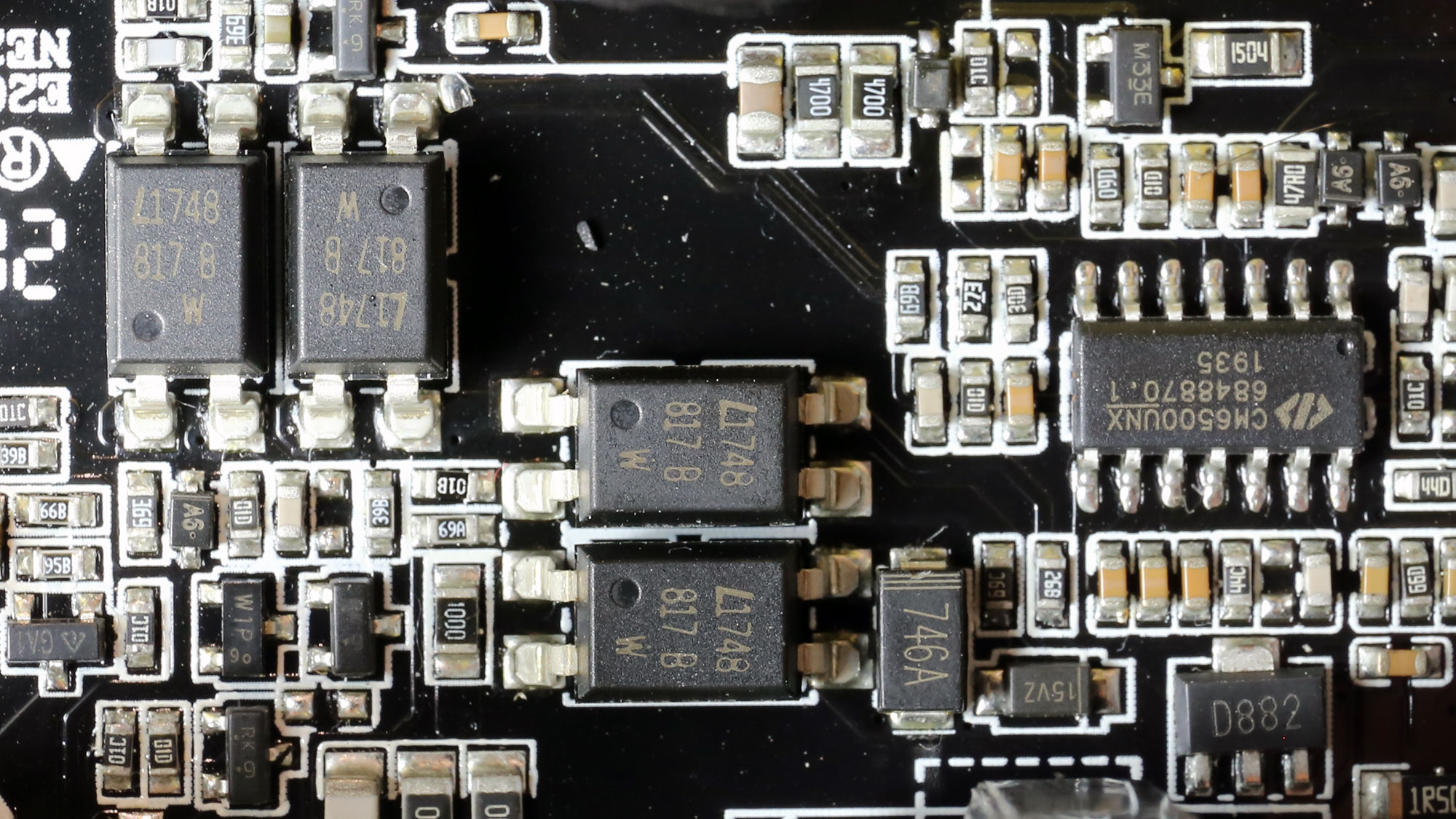
The main FETs are arranged in a half-bridge topology. An LLC resonant converter is used to boost efficiency, and its controller is a Champion CM6901X IC, which also controls the switching rate of the +12V FETs.
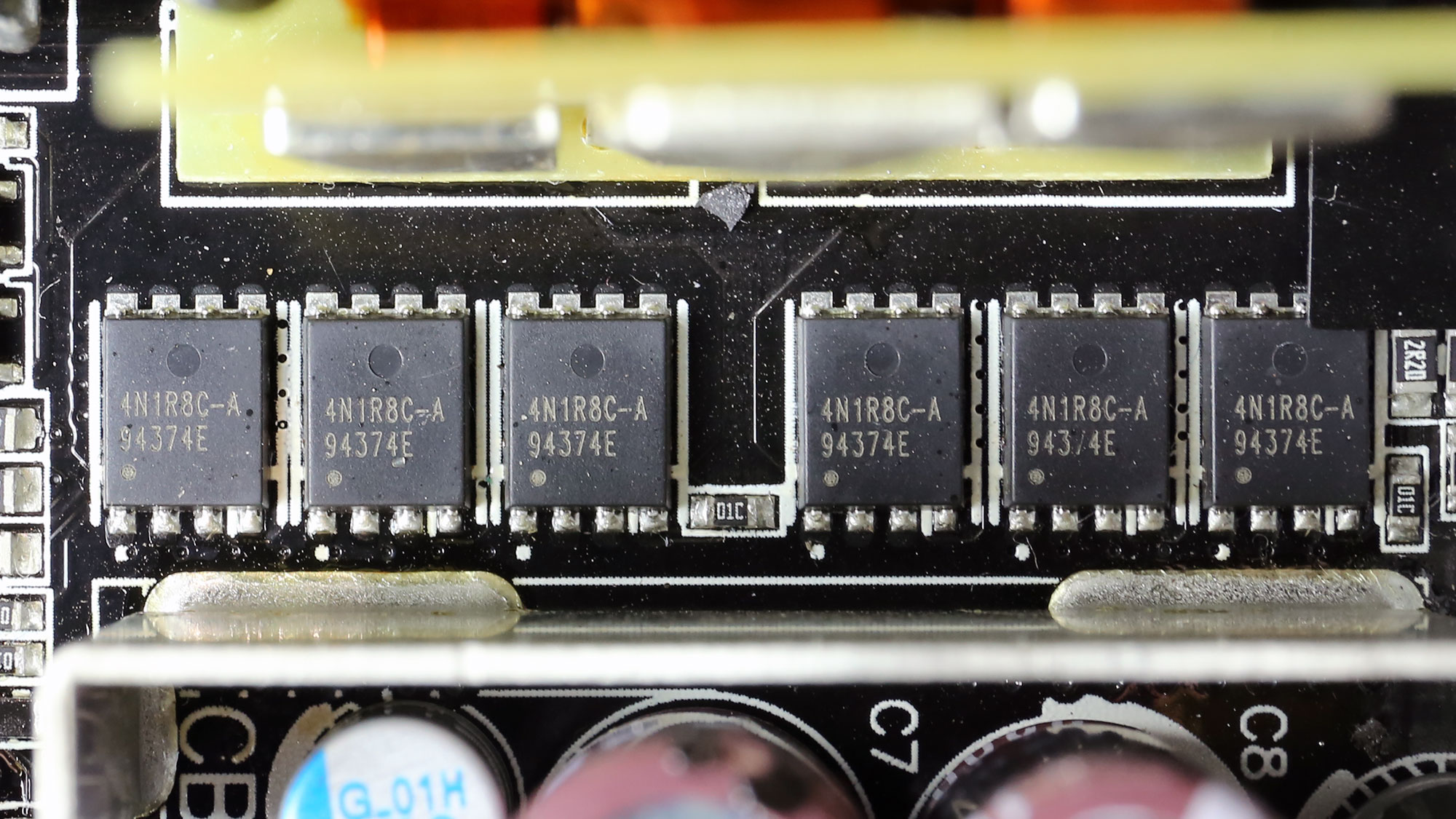
12V FETs and VRMs
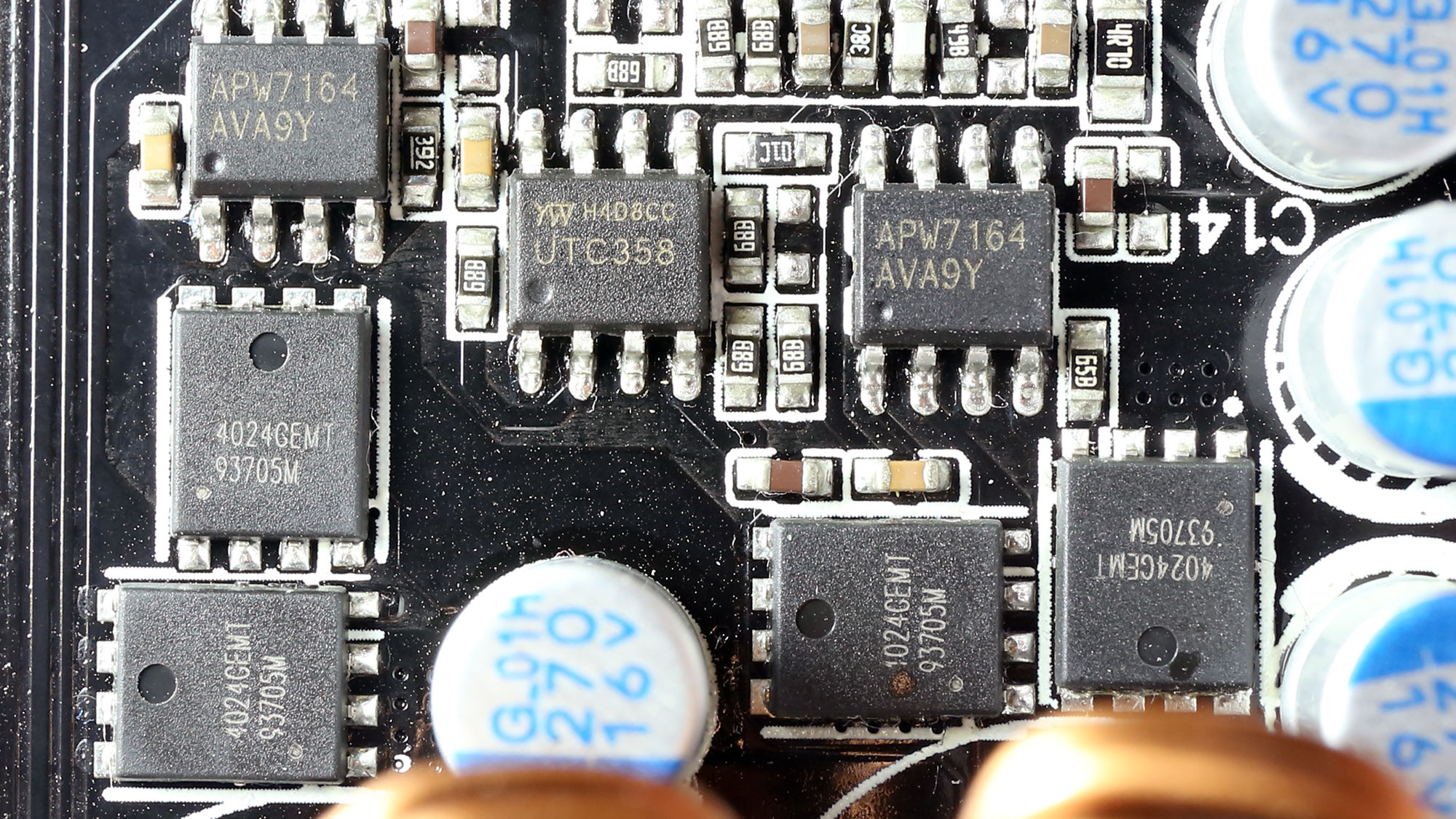
Six FETs, provided by Advanced Power Electronics, regulate the +12V rail, while the minor rails are generated through a pair of DC-DC converters. The latter use four FETs in total and two Anpec PWM controllers.
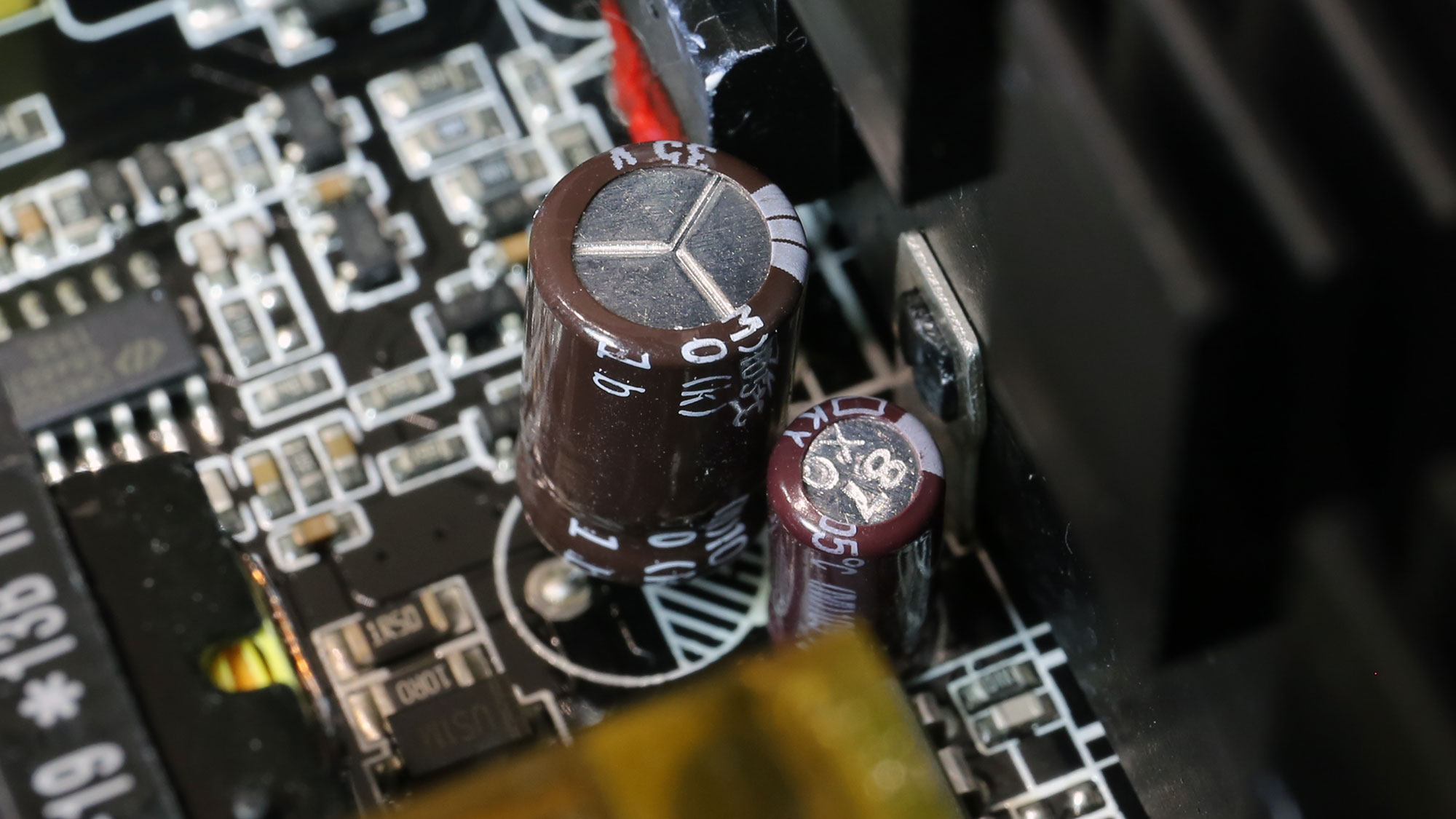
Filtering caps
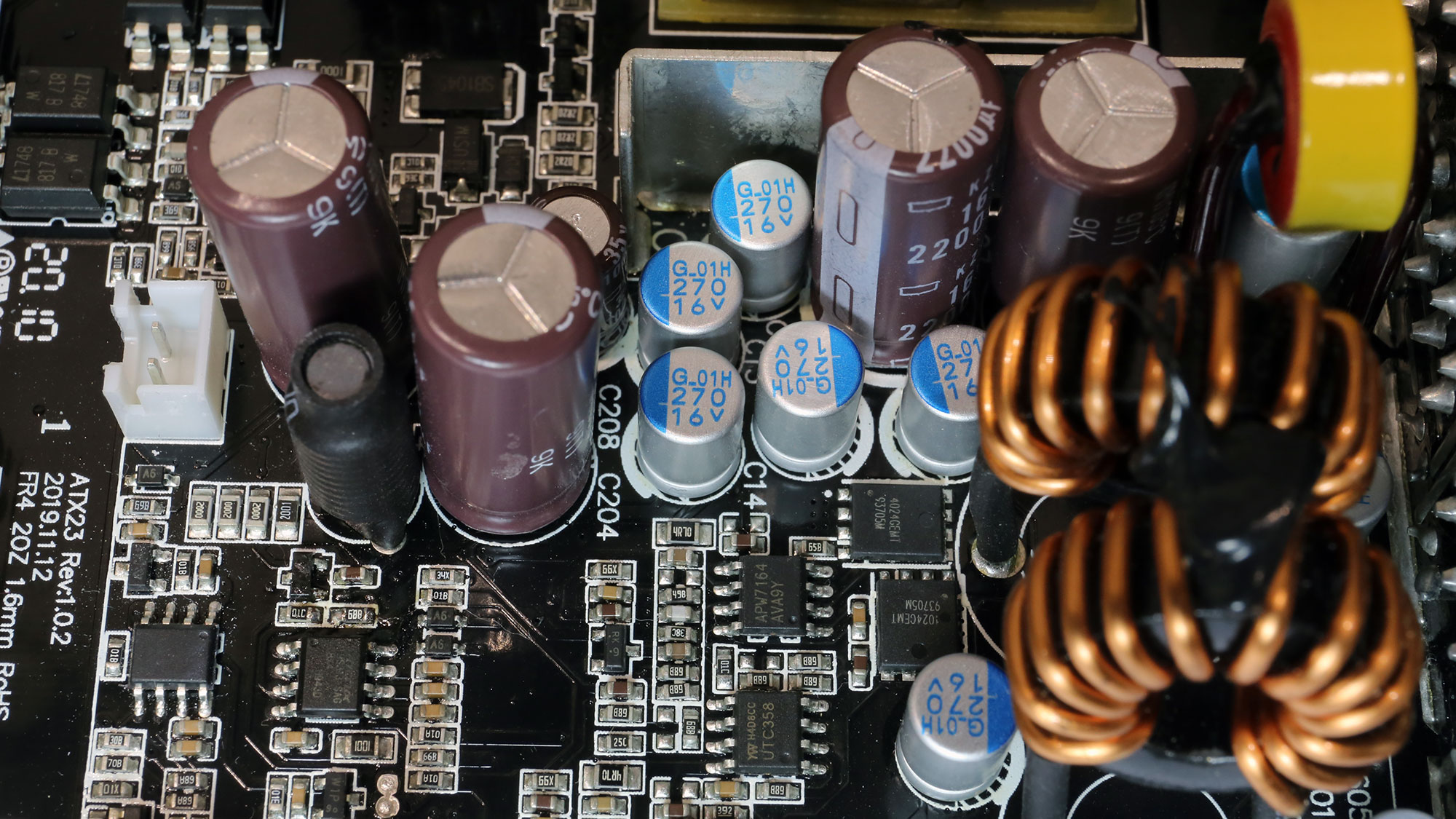
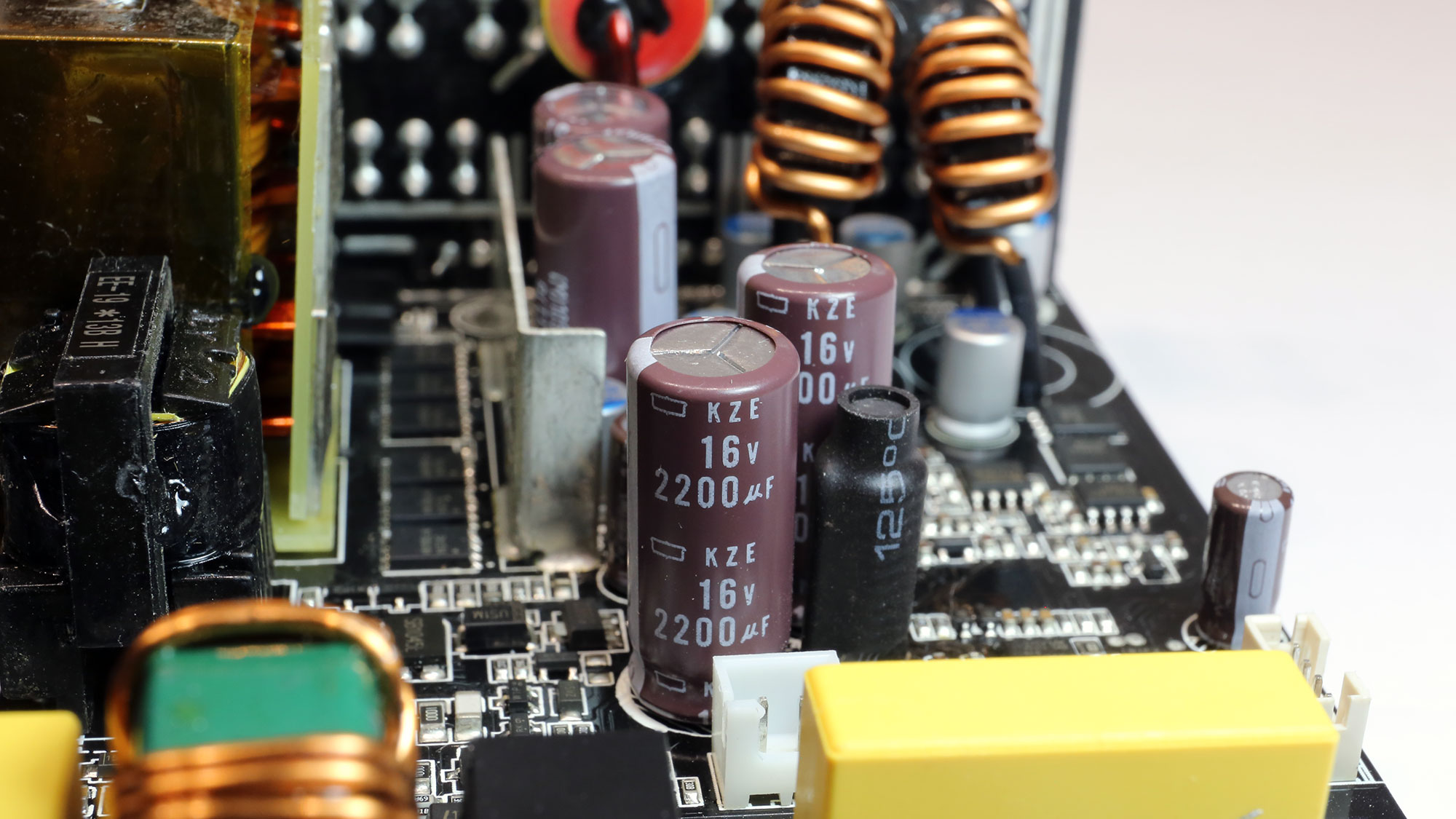
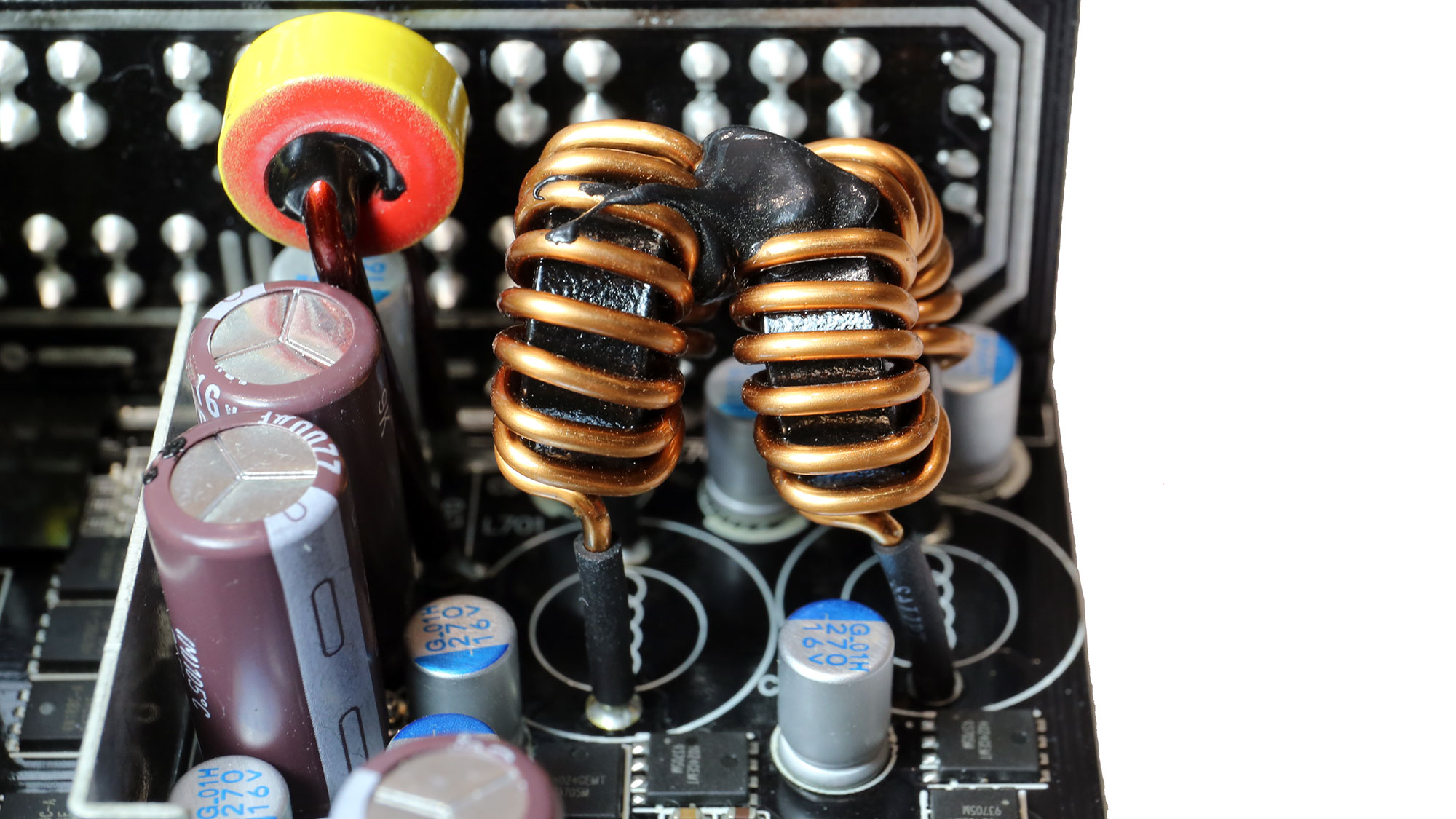
The filtering capacitors are of good quality, and besides electrolytic caps, HKC also used a large number of polymer caps, which are tolerant to high operating temperatures.
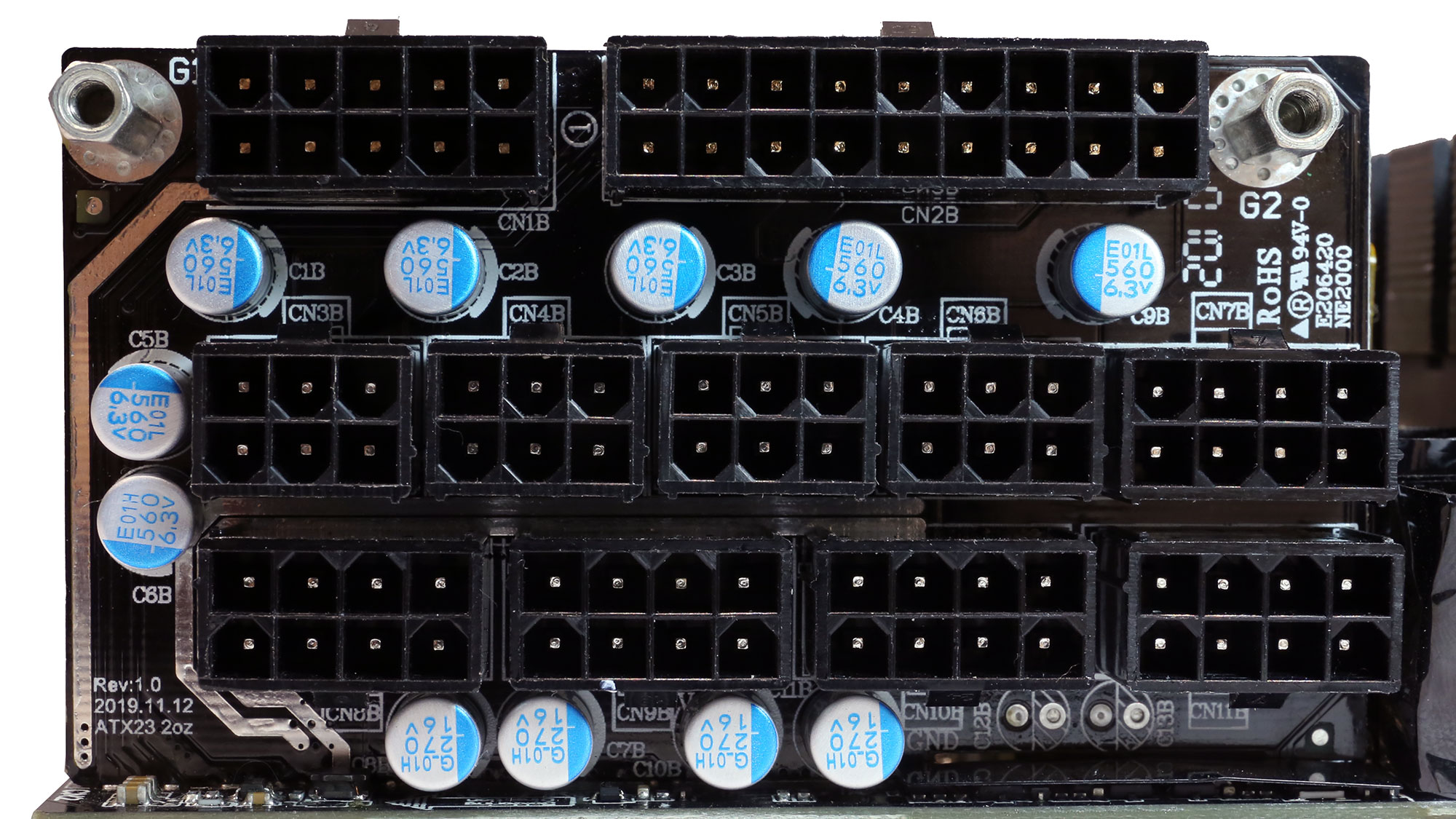
At the face of the modular board, we find eleven polymer caps, forming an additional ripple filtering layer.
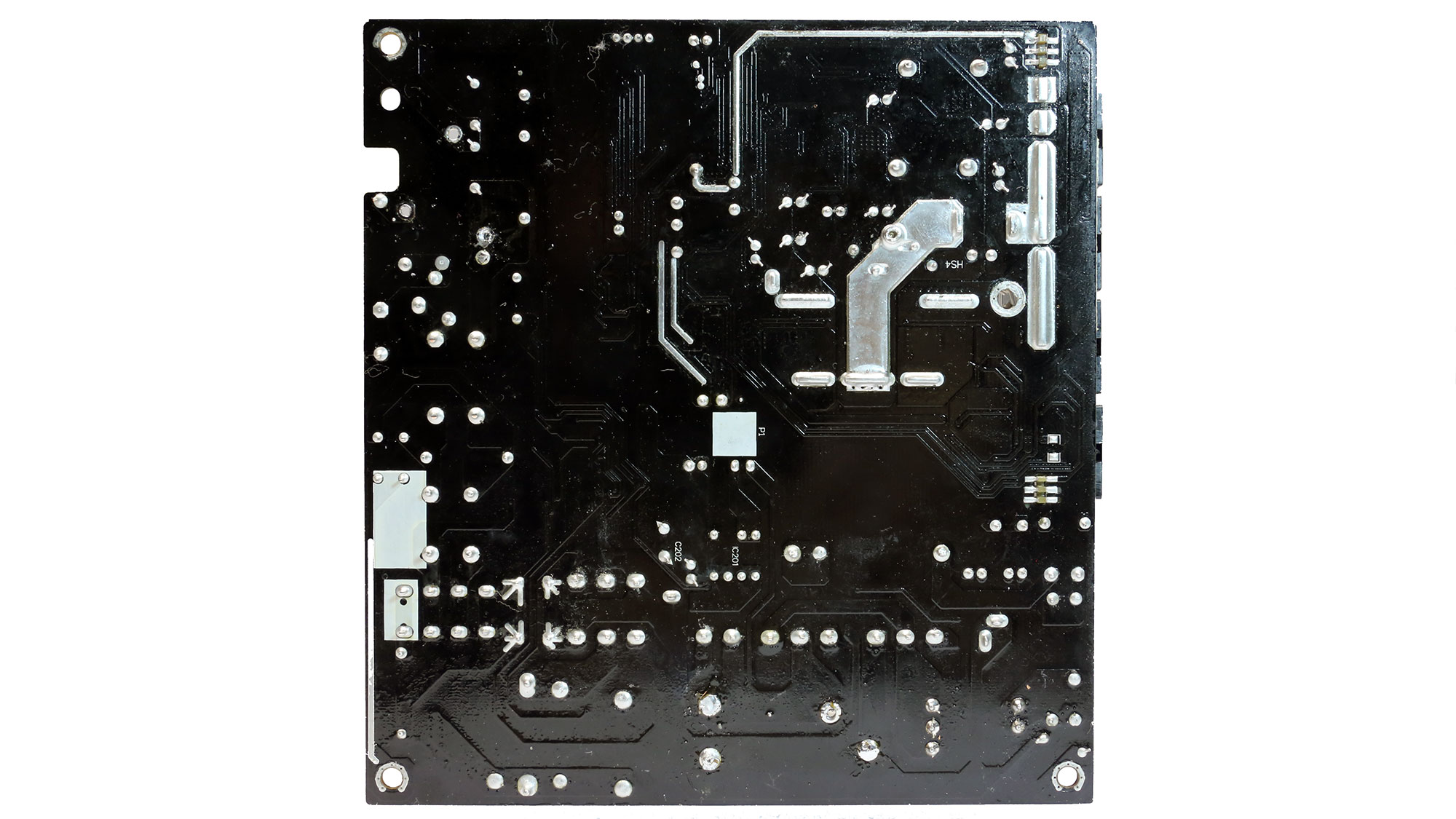
Soldering quality
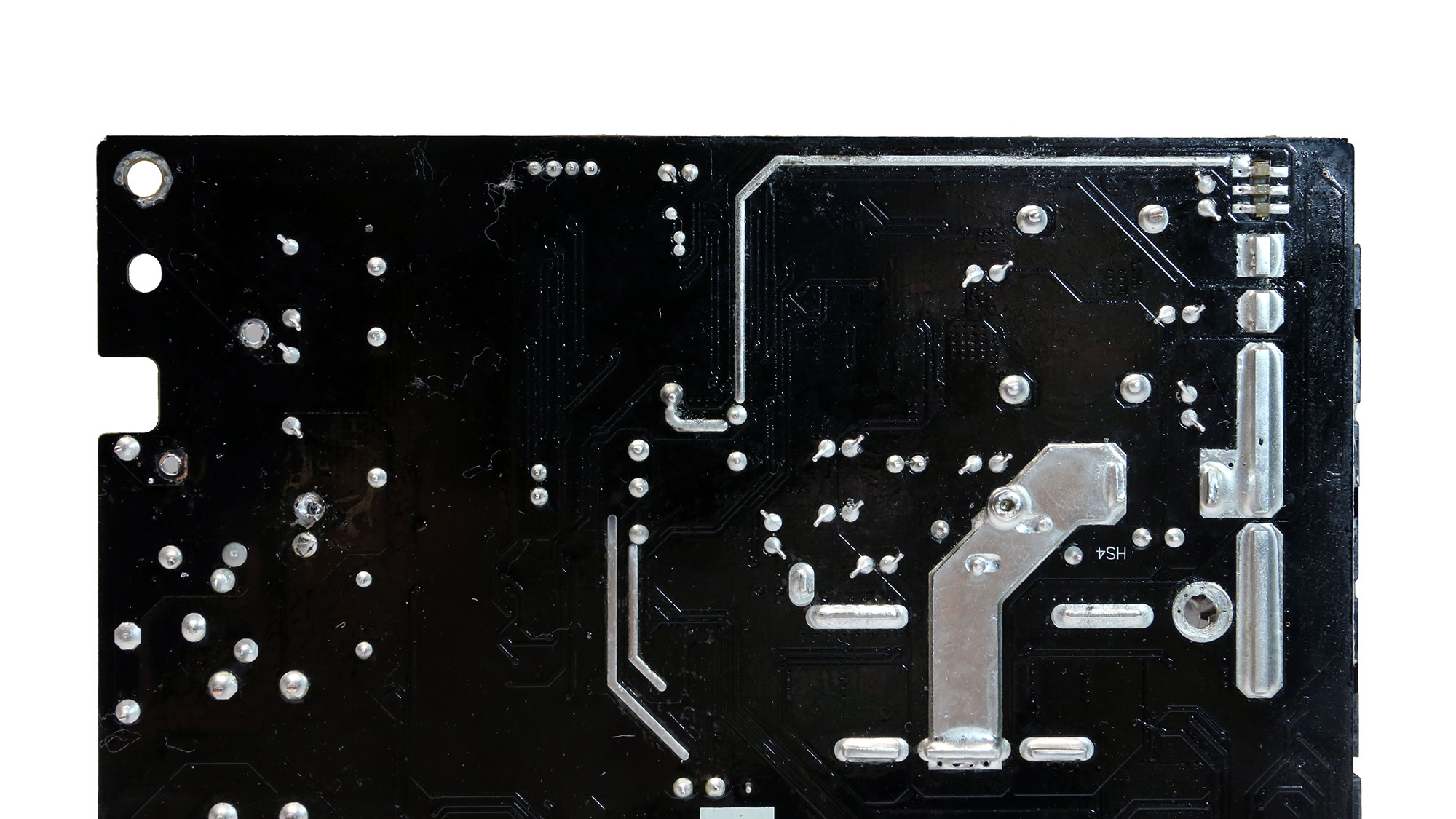
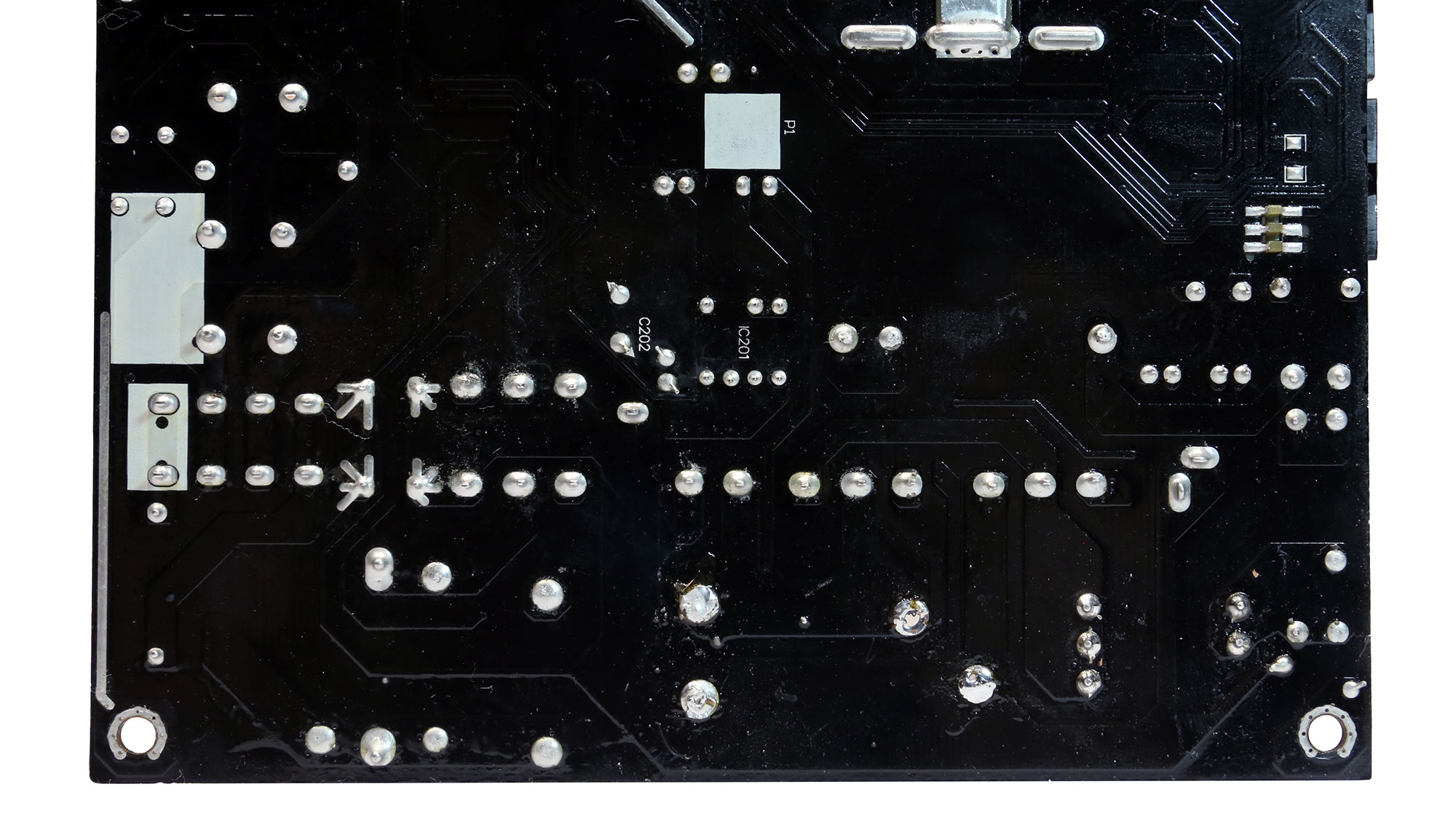
There is not much to see on the backside of the main PCB, since all components are on the top side.
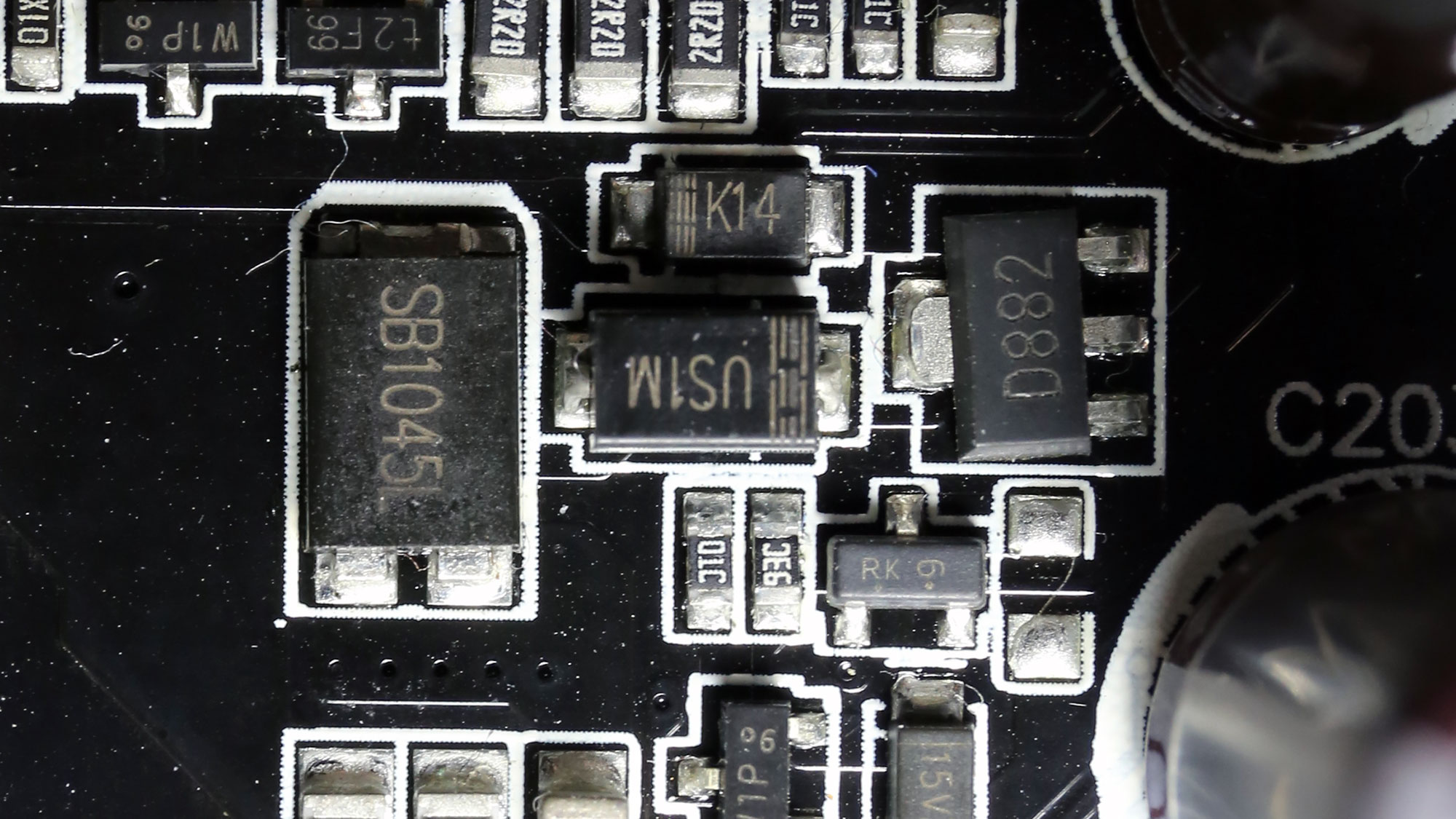
5VSB Circuit
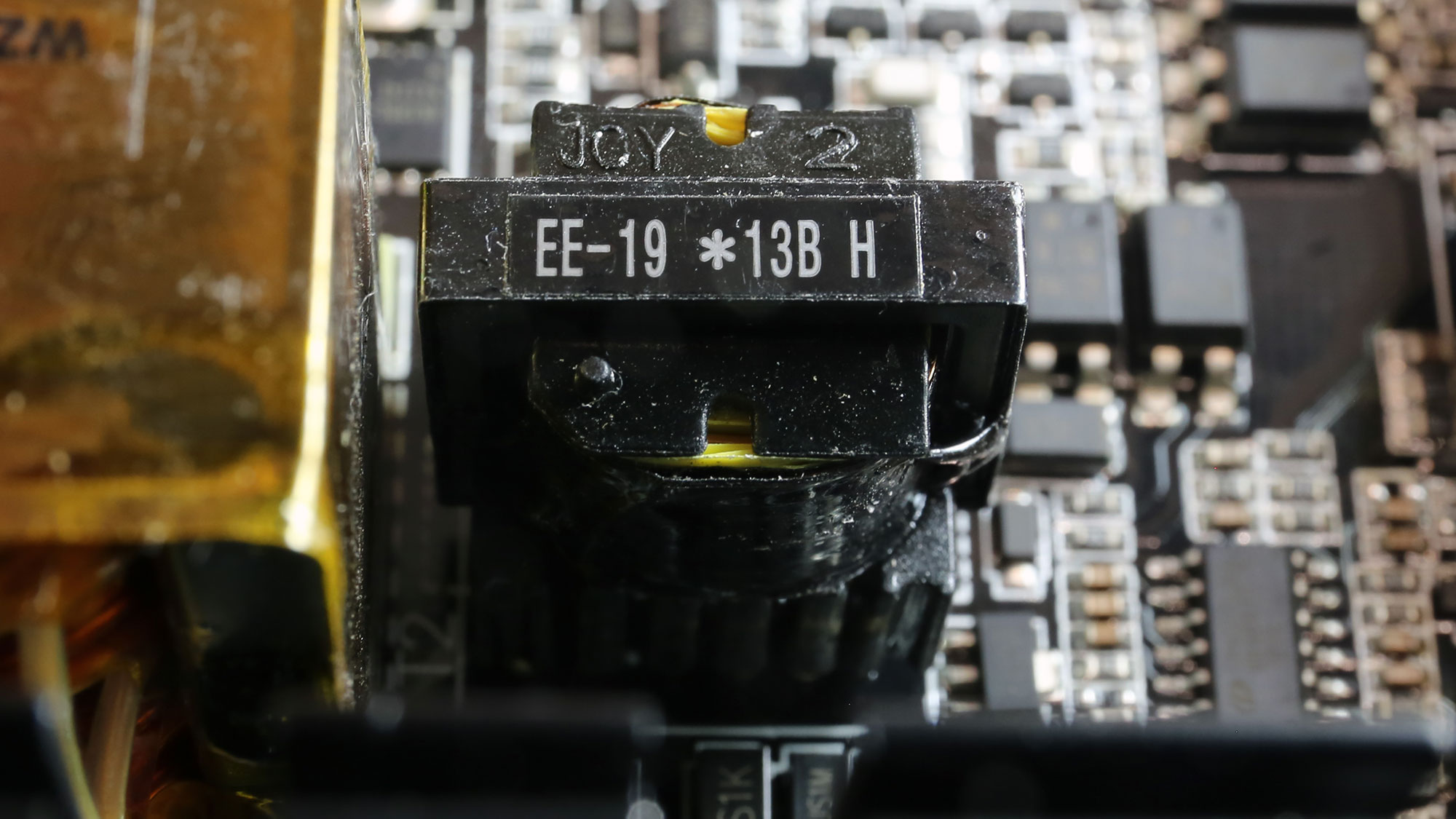
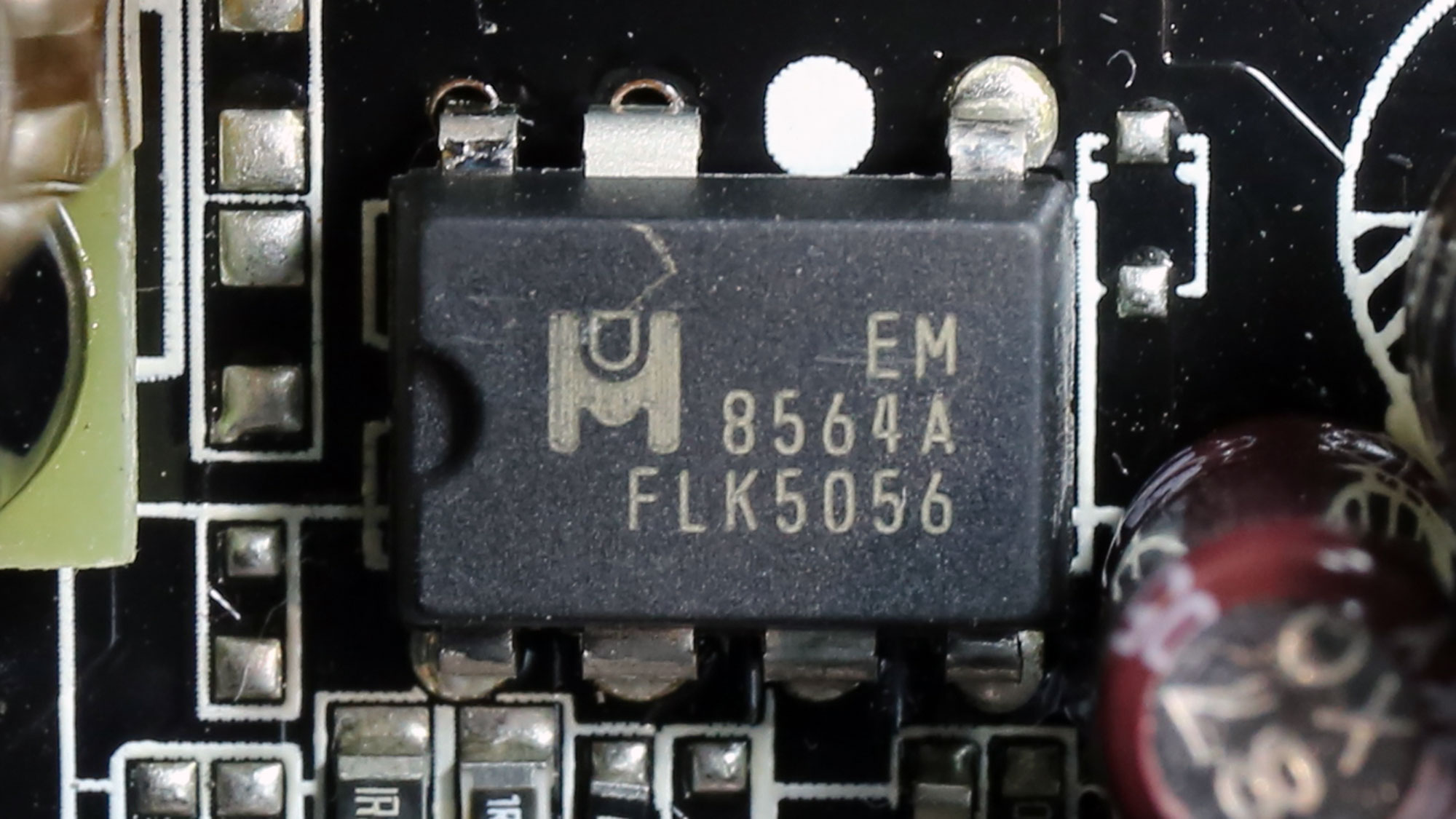
The 5VSB circuit uses an Excelliance MOS controller and on its secondary side, a Schottky barrier diode (SBR) regulated the rail.
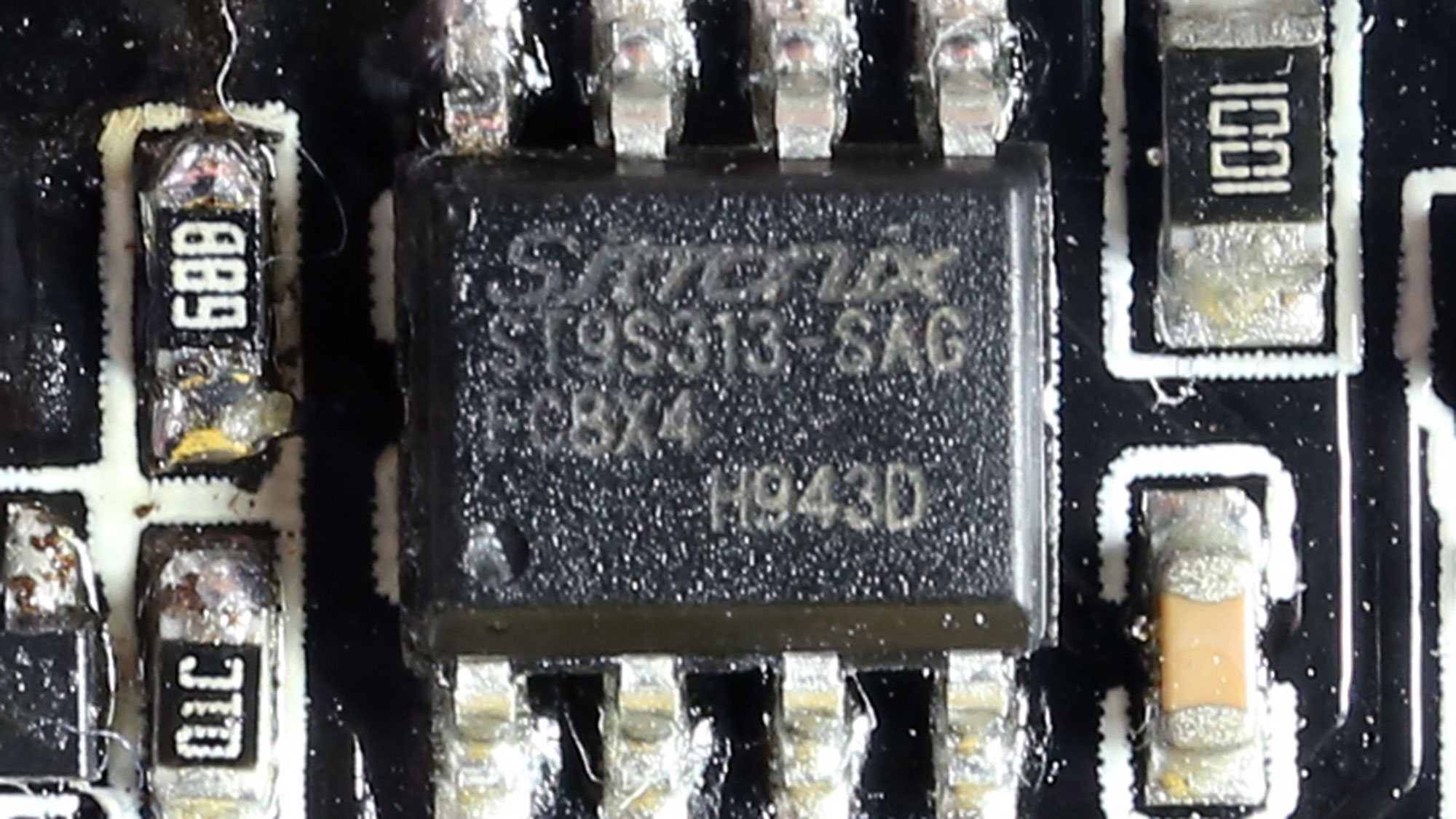
The supervisor IC is a Sitronix ST9S313-DAG, supporting only the fundamental protection features. All the rest are provided through external circuits that communicate with the IC mentioned above.
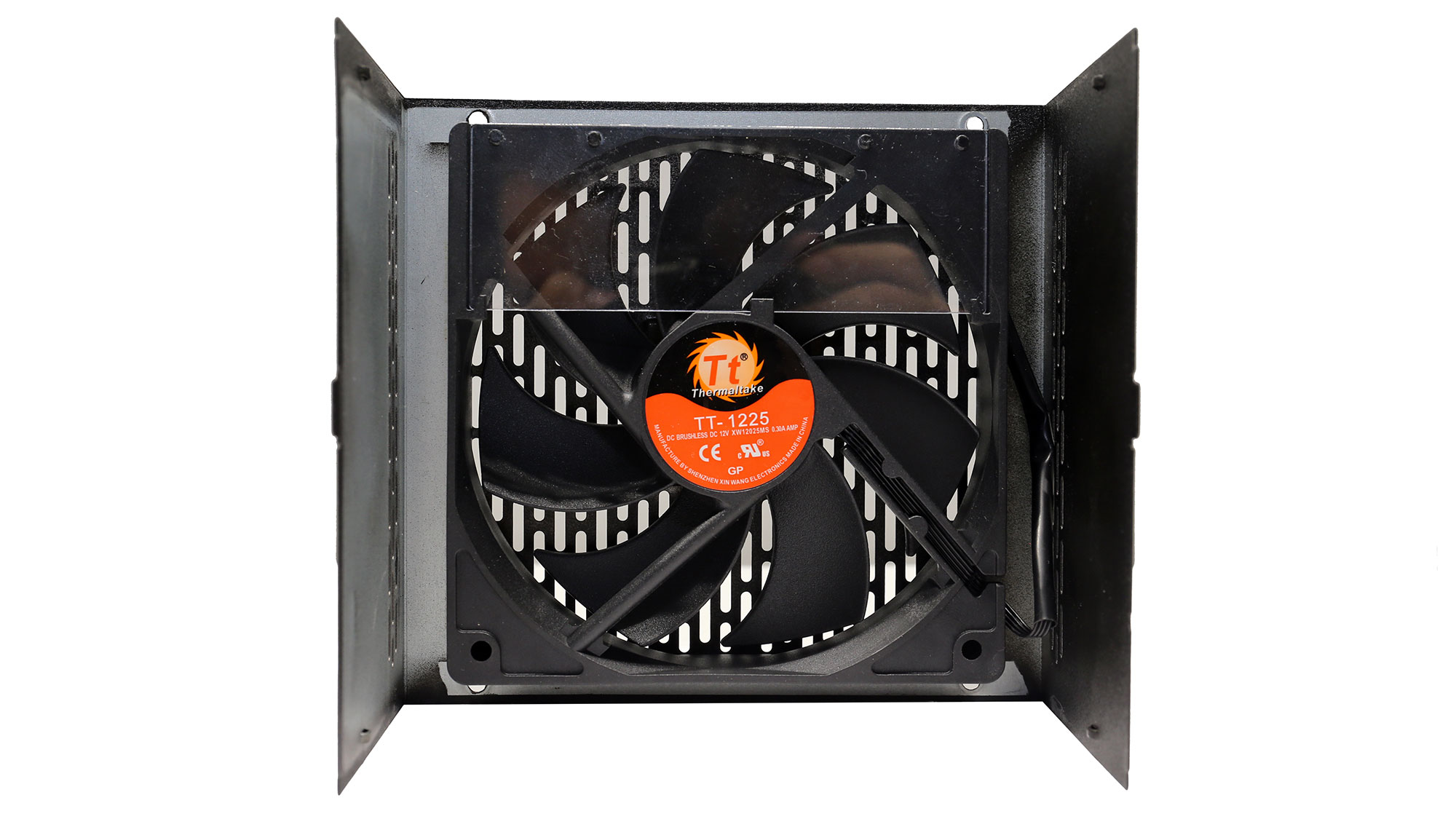
Cooling fan
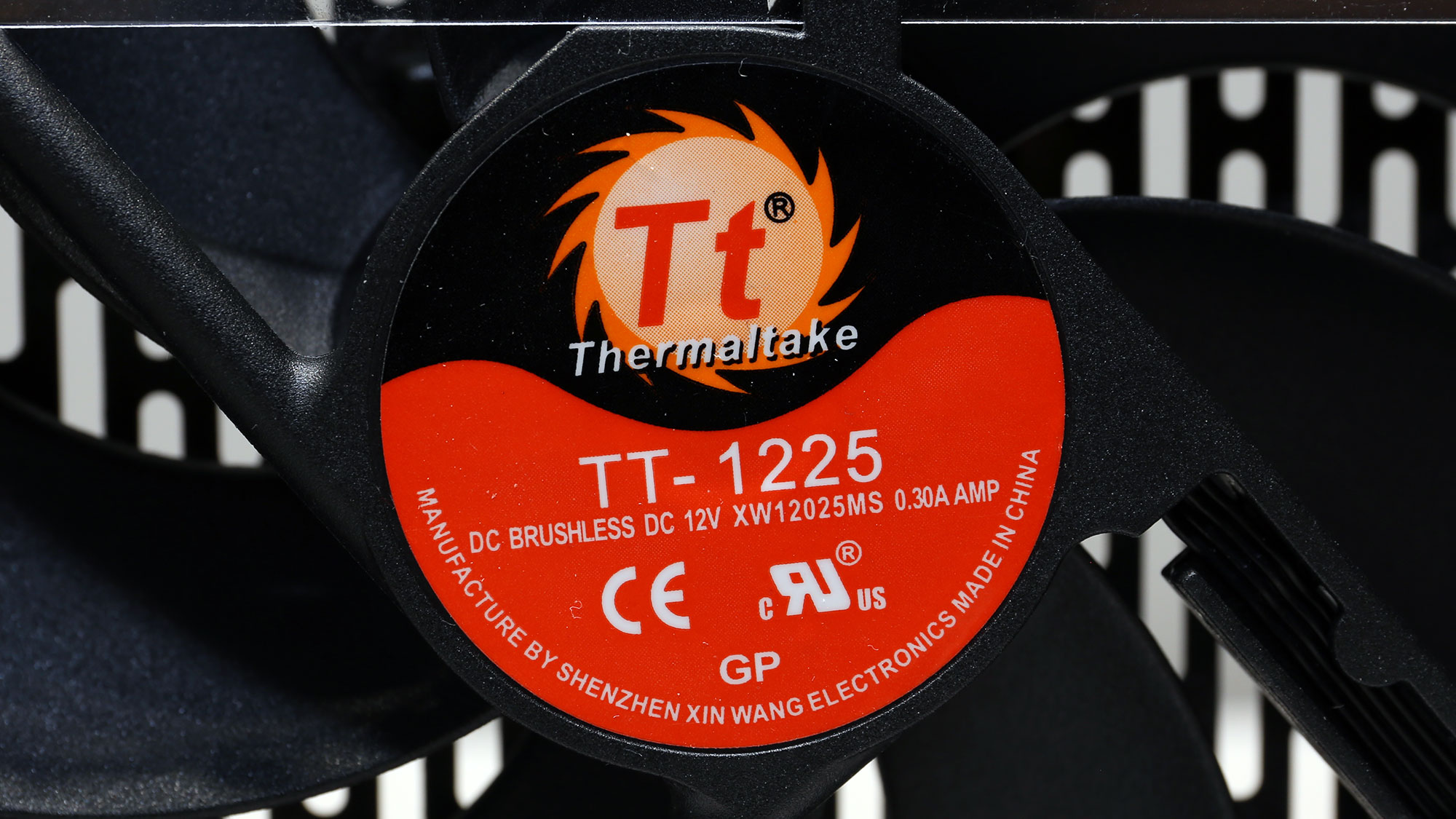
A smaller fan had to be used because of the PSU's compact dimensions. It uses a hydraulic bearing so it will have a long life, as long as you don't expose it to higher than 40 degrees Celsius operating temperatures for prolonged periods.
MORE: Best Power Supplies
MORE: How We Test Power Supplies
MORE: All Power Supply Content
Current page: Specifications and Part Analysis
Next Page Load Regulation, Hold-Up Time, Inrush & Leakage Current, Efficiency and Noise
Aris Mpitziopoulos is a contributing editor at Tom's Hardware, covering PSUs.
-
bdcrlsn I know they're not actually made by Thermaltake, but I've had a Toughpower 650-watt for 7 years and had no issues whatsoever. They're good choices these days in a saturated market.Reply -
Braindead154 I bought two of these power supplies to use in my new rig. BOTH of them had a high pitched whine when my computer was off or sleeping (MSI MEG x570 Unify). As much as I appreciated the long warranty and build quality, I prefer not to have a dog whistle in my PC case. They were returned.Reply